|

HOME |
ABOUT | INDEX |
NEWS |
FACEBOOK |
CONTACT
FASHION
Clothing |
Apparel | Couture | Design | Merchandise
Is there a
dress code for the gay community?
How is
queer fashion different than fashion in general? Is
there a difference at all? Is queer fashion about the
clothes, or about the person wearing them? Is there a
queer way to dress? or a recognizable queer aesthetic?
Do queer designers make inherently queer clothes? Is
rainbow the new black?
What is
meant by queer fashion? In the media and at various public events, we are exposed to edgy clothing
styles by such celebrities as RuPaul, Billy Porter, Lady Gaga,
Harry Styles, Cara Delevingne, Chappell Roan, Troye Sivan, Ruby Rose, Todrick Hall, Janelle Monae, and others. Are these outfits exclusively
queer?
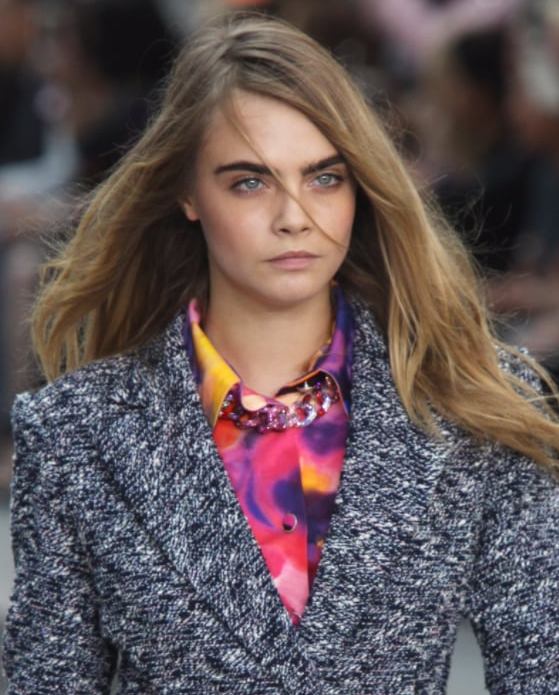
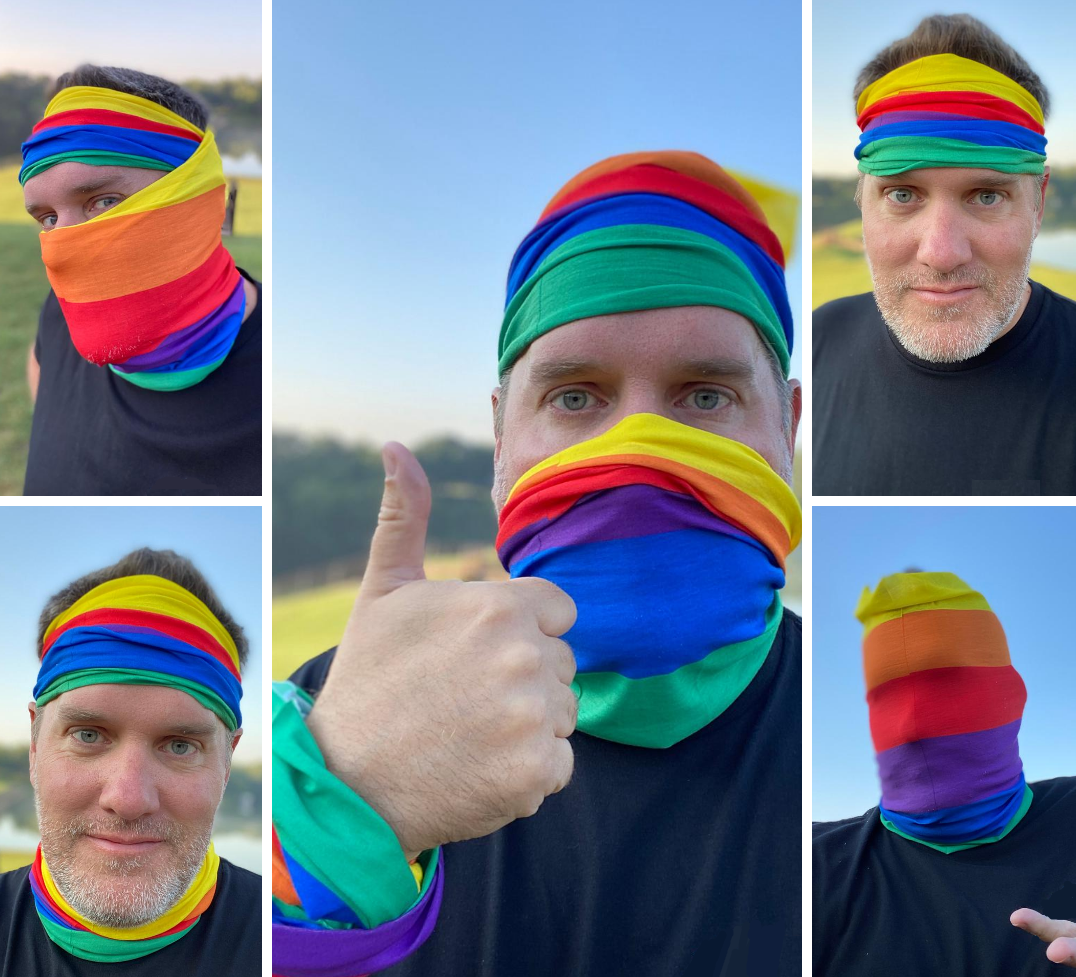

Rainbow Scarf
The Best Queer Looks From the Met Gala
2025
Esty: LGBTQ Enamel Pins
Eleganza: Queerest Fashion Fits
Skirts Aren't Just for Women
Alex Consani Becomes First Transgender Model of the Year
at UK Fashion Awards
Harry Styles Invests in Queer British Fashion Label S.S.
Daley
Sarah Paulson Outfits That Make Us Swoon
How Knoxx Is Redefining Streetwear On The
Hype and With Her Dvmn Pigeon Line
Pride Beyond the Binary: Embracing Fluidity in Gender
Expression in Fashion
Best, Most Iconic Met Gala Looks by LGBTQ
Celebs Over the Years
Oscar Guardiola Designs
Emma D’Arcy on Fashion and Non-Binary Identity: Clothes
are Armour for Me
Fashion Brands With Pride
Collections
Billie Eilish Style Moments
Fashion, by definition, simply denotes the clothing
styles and trends accepted by the majority of a culture
at any given time. That said, style acceptation and
expression can be different among smaller niche groups,
whether it’s based on geographical location, age groups
or other demographic segments. From a purely marketing
perspective, queer fashion simply denotes fashion styles
accepted and worn by the LGBTQ community at large. And
certainly, within that community are smaller “fashion
tribes” that subscribe to certain looks, or approaches
to dress.
In terms of queer fashion, certain styles have emerged
that have meaning beyond their functionality, or trends
in general. Perhaps the most infamous is the pink
triangle. Originally used by Nazis to identify queer
people for the death camps, the pink triangle has now
been adopted by queer people to represent queer
identity. Additionally, the color pink has continued to
be associated with gay culture, as well as lavender.
After all, the color purple is the merging of blue and
pink (typically associated with male and female), to
suggest a more fluid gender and sexual identity. Other
historical examples include suede shoes, shoelaces
(rather than buckles), red neck ties and bleached hair.
More recently, the idea of a queer haircut has emerged,
especially for queer women.
Shop HRC
Queer Fashion Takes Center Stage at
DapperQ’s New York Fashion Week Extravaganza
Lil Nas X, Billie Eilish, Rihanna and
More: Favorite Met Gala Fashion Moments
Ashley Biden Wears Tuxedo
on Inauguration Night
History of Lesbian Fashion
100 Years of Queer Fashion
Gen Z Embraces Gender Fluid Fashion
GLAAD: Queer Stars at the Met Gala: What
They Wore and Why
New Face of Beauty: LGBTQ Inclusivity in
Beauty Schools
The No-Longer Hidden History of Lesbian Fashion Trends
Watch: Gay Pride
Apparel
Lesbian Models
Pride Stance
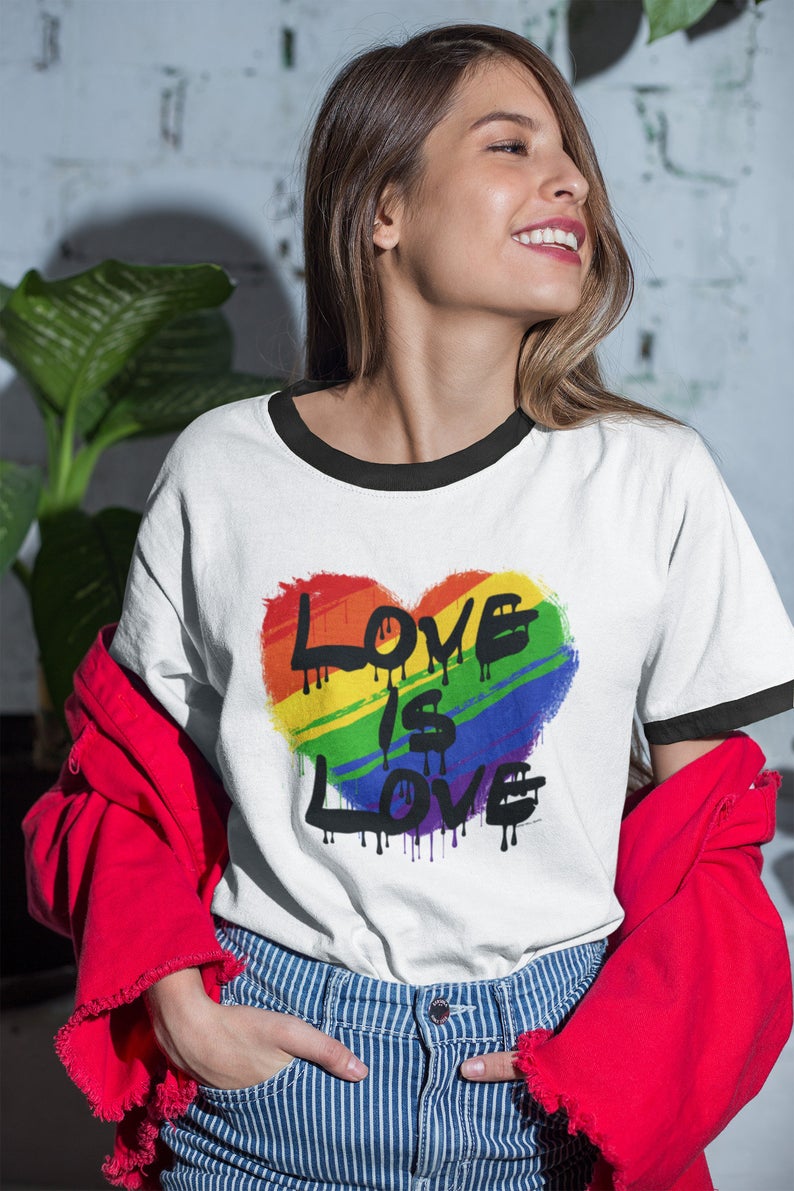
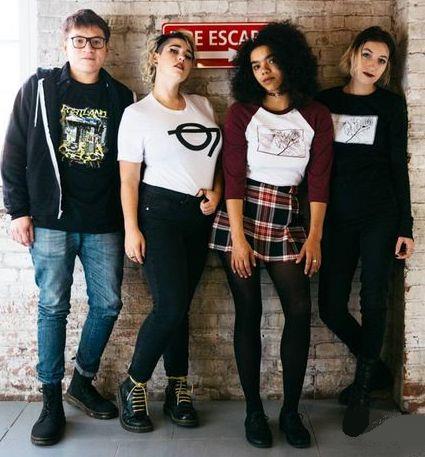
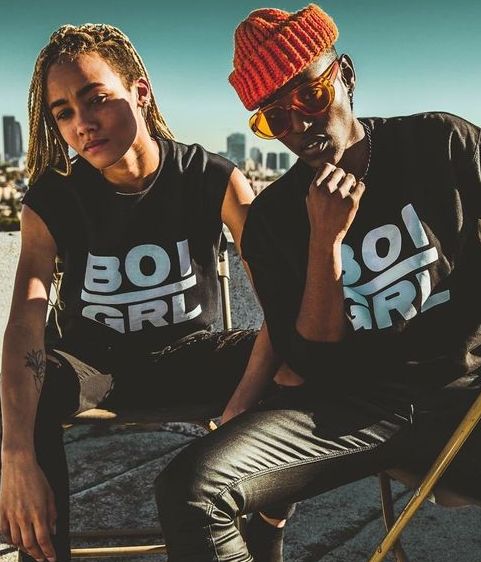
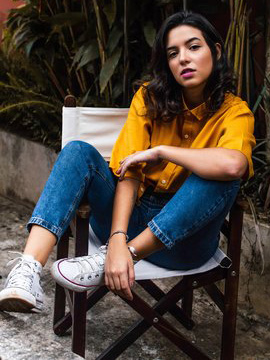
New Era of Power Lesbian Fashion is Here
Rainbow Outfit
Eleganza: Queerest Fashion Fits
Take a Deep Dive into Tom Daley’s Wildest Fashion Fits
Meet the Hot Boys of Red White
and Royal Blue Movie
Equality Florida Shop
Embracing Fluidity in Gender
Expression in Fashion
Macy’s and Trevor Project: Styles of Pride 2023
LGBTQ Fashion at 2023 Met Gala
GQ Fashion: Meet the Hot Boys of Steamy Red, White
and Royal Blue Movie
Kind Cotton
Adidas’ New Trans-Inclusive Swimwear
Celebrity Men Wearing Skirts
The
Pride Store
Because queer people are typically forced to “come out”
in a heteronormative society, part of this “coming out”
process involves externalizing identity and eschewing
clothing styles that previously felt constrictive. In a
sense, queer people are subverting and/or rejecting the
meaning of clothes given by a culture or community and
investing clothes with new meaning. Subversion typically
operates within accepted gender binaries. Examples might
include a cis-female wearing a man’s suit, or a cis-male
wearing makeup. Rejection predictably operates outside
accepted gender binaries. Examples might include cis-males
who keep a beard and wear makeup, or cis-females who
wear a men’s suit and pair it with stiletto heels. These
subversions and rejections can be evaluated in terms of
societal norms on a whole, but can also be considered
within the queer community itself. Certain styles of
clothing, including butch or femme, denote the “tribe” a
person considers themselves to be a part of, providing
symbolic queer meaning that doesn’t exist in the greater
fashion community.
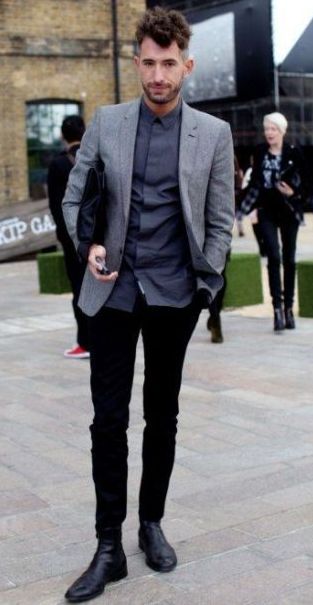
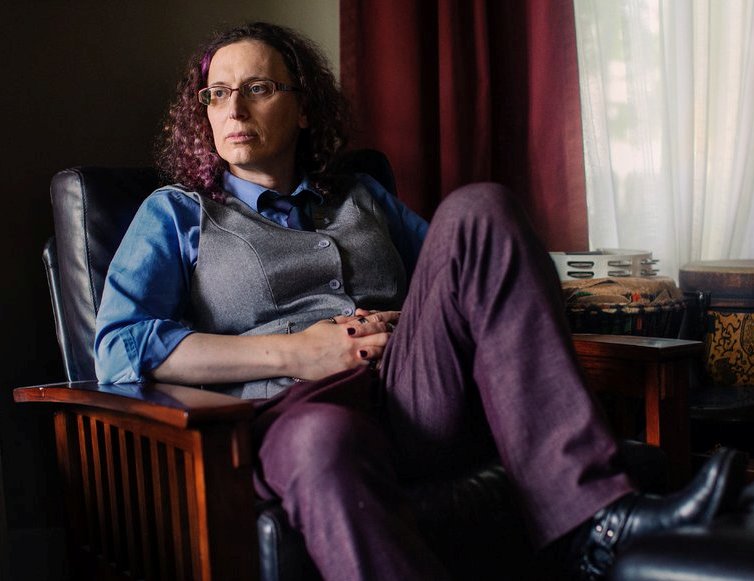
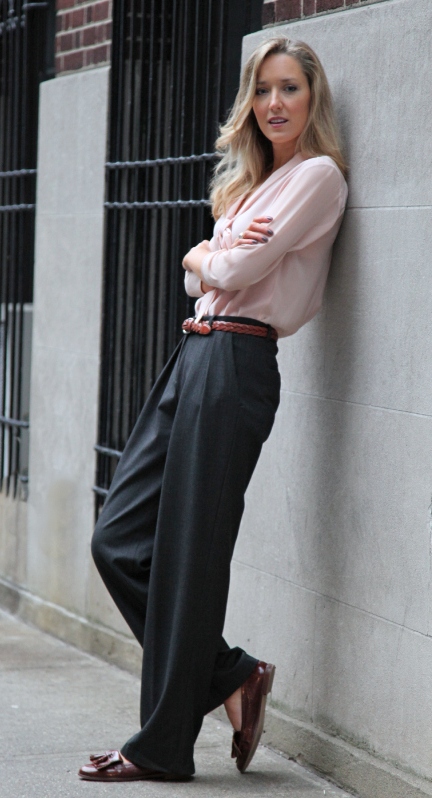
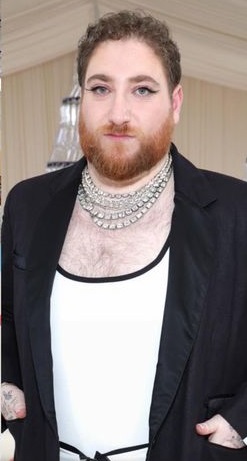
Clearly, queer fashion operates as a subset of the
larger fashion system. While queer style overlays with
fashion trends in general, the queer community has
historically adapted these trends to their own needs.
While not as obvious, queer clothing can also be
utilitarian, providing solutions to problems experienced
primarily by queer people. And finally, clothes are
given meaning by society in general, often with an
intrinsic moral code built in. Queer people often must
subvert or reject these meanings and find their own,
often allowing for greater visibility, within subsets of
the queer community.
[Source: Joshua Williams, Queer Cut, Nov 2018]
Rainbow Scarf
The Best Queer Looks From the Met Gala
2025
Billie Eilish Style Moments
Skirts Aren't Just for Women
Rainbow Trend
New Era of Power Lesbian Fashion is Here
Equality Florida Shop
Alex Consani Becomes First Transgender Model of the Year
at UK Fashion Awards
Queer Celebs Who Prove Suits Aren't Just for Men
Lesbian Models
Harry Styles Invests in Queer British Fashion Label S.S
Daley
Take a Deep Dive into Tom Daley’s Wildest Fashion Fits
Oscar Guardiola Designs
Sarah Paulson Outfits That Make Us Swoon
I Support LGBTQ: Handmade Rainbow Scarf
Pride Supplies
Makeunder:
Jojo Siwa's
Clean Girl Look
JoJo Siwa
is Nearly
Unrecognizable...
We have gotten
used to seeing
Jojo Siwa in
dazzling,
sparkly,
over-the-top,
ultra flamboyant
outfits.
Recently,
however, she
opted for a more
low-key fashion
look. Is
JoJo Siwa
entering a new
style era?
Siwa, 21,
completely
transformed for
the Billboard
Women in Music
Awards event in
March 2025. She
was decidedly
buttoned-up in a
Gucci tailored
navy suit
featuring a
blazer and
straight pants,
and braless.


JoJo Siwa Is
Nearly
Unrecognizable
in Clean Girl
Makeunder
In true JoJo
Siwa style, no
outfit is
complete without
a touch of
sparkle. She
dazzled in a
full Gucci
jewelry suite,
complete with a
diamond brooch
and a
coordinating
necklace and
stud earrings,
all bearing the
Italian house’s
logo. She tied
her look
together with
Christian
Louboutin
sneakers covered
in rhinestone
crystal
embellishments
plus a snakeskin
trim.
The Dance Moms
alum also took a
restrained
approach to her
usual
more-is-more
glam, opting for
a touch of
blush, mascara
and teal
eyeliner for
good measure.
Her bronde was
styled in two
French braids.
It worked in her
favor, as
celebrity
friends and fans
couldn’t get
enough of Siwa’s
“clean girl”
look, a trend
that has swept
TikTok, which
emphasizes a
fresh and
minimalistic
aesthetic, and
now it appears
to be
influencing Siwa
as well.
Dance Moms
costar Jill
Vertes and her
former teacher
Abby Lee Miller
complimented her
new look, saying
that she looked
"beautiful."
James Charles
praised her,
commenting that
she looked “so
pretty!” while a
fan complimented
her, “You’re
gorgeous JoJo!
This look brings
out so many of
your natural
features! Very
well put
together!”



JoJo Siwa Is
Nearly
Unrecognizable
in Clean Girl
Makeunder
Siwa’s makeunder
comes mere days
after she had a
bright and bold
moment at the
GLAAD Media
Awards. For the
soirée, she
commanded
attention in an
oversized
leather jacket
adorned with
colorful
crystals and a
rainbow collar.
The “Karma”
singer teamed
the look with
long denim
shorts that
cascaded past
her knees and
platform
bedazzled
sneakers.
At the event,
she debuted a
mohawk,
featuring short
wispy, blonde
bangs. She added
even more pizazz
to her look with
one side of her
head dyed
rainbow, and the
other side
featuring teal,
pink and coral
stripes that
were decorated
with even more
rhinestones. She
completed her
glam with
colorful
eyebrows and
sparkly
eyeshadow.
Needless to say,
we can’t wait to
see what look
Siwa rocks next.
[Source: Grace
Riley, Us
Magazine, March
2025]
Rainbow Scarf
The Best Queer
Looks From the
Met Gala 2025
Queer Celebs We Look to For Style Inspiration
How to Shop for Clothes When You're
Gender-Nonconforming
Queer Fashion
2021: News From Gender Free Fashion
Qwear: Favorite
Black Queer Fashion Moments of the Year
The
Pride Store
Tim Gunn: Future of
Fashion is Non-Binary
Hayley Kiyoko is a Style Icon
Esty: LGBTQ Enamel Pins
Madonna’s Son Wears Dress to Boxing Match
Trans Models Making an Impact on the Fashion Industry
Non-Judgy Gender Neutral
Fashion Brands
Queer Designers You Should Know
Startters
Alex Consani
Makes History as
First Out Trans
Woman to Win
Model of the
Year
Alex
Consani makes
trans and
fashion
history...
The 21-year-old
San Francisco
native won the
Model of the
Year award at
the British
Fashion
Council's annual
Fashion Awards
in Dec 2024,
becoming the
first out
transgender
woman to receive
the honor —
which she
proudly
celebrated in
her acceptance
speech.
“I'm the first
trans woman to
win this award!"
Consani said.
"But I can't
accept this
award without
thanking those
who came before
me, specifically
the Black trans
women who really
fought for the
space I'm in
today –
Dominique
Jackson, Connie
Fleming, Aaron
Rose Phillips,
and countless
more who fought
for the space
that allowed me
to flourish
today."



Alex Consani
Becomes First
Transgender
Model of the
Year at UK
Fashion Awards
Making Herstory!
Alex Consani is
First
Transgender
Woman to Win
Model of the
Year
Alex Consani
Makes History as
First Out Trans
Woman to Win
Model of the
Year
The Model of the
Year Award is
one of the
biggest
modelling awards
in the world,
which recognizes
"the global
impact of a
model who over
the last 12
months has
dominated the
industry" and
has "an
influence that
transcends the
catwalk,"
including by
"outstanding
contribution to
the industry,
garnering
numerous
editorial and
advertising
campaigns
throughout the
year." Past
winners include
Alva Claire,
Amelia Gray,
Anok Yai, Liu
Wen, Mona
Tougaard, and
last year's
recipient,
Paloma Elsesser.
Consani has made
history several
times before,
including by
becoming the
youngest signed
trans model
through her IMG
contract as well
as one of the
first trans
models to walk a
Victoria's
Secret Fashion
Show. She was
one of the may
"Hot Internet
Girls" featured
in Charli xcx's
music video for
"360," alongside
Emma
Chamberlain,
Julia Fox, Hari
Nef, and Rachel
Sennott.
Consani
continued her
acceptance
speech to thank
her parents for
their support,
and encouraged
the parents of
other trans
youth to support
their children
as well.
“Now, more than
ever, it’s an
important
conversation
that should be
had about how to
truly support
and uplift one
another within
this industry,
especially those
who have been
made to feel
insignificant,"
Consani said.
"Because change
is more than
possible — it’s
needed.”
[Source: Ryan
Adamczeski,
Advocate
Magazine, Dec
2024]
The Best Queer
Looks From the
Met Gala 2025
Shop HRC
New Era of Power Lesbian Fashion is Here
Esty: LGBTQ Enamel Pins
Eleganza: Queerest Fashion Fits
Queer Fashion Takes Center Stage at
DapperQ’s New York Fashion Week Extravaganza
I Support LGBTQ:
Rainbow Scarves and Merch
Men Who Wore Skirts and Dresses on the Red Carpet
Vivienne Westwood’s Legacy of LGBTQ Activism
Gen Z Embraces Gender Fluid Fashion
Lil Nas X Talks Wearing Skirts and
Collaborating With Coach
Ashley Biden Wears Tuxedo
on Inauguration Night
List: LGBTQ Fashion Designers
Lesbian Models
I Support LGBTQ:
Rainbow Scarves and Merch
Gen Z Embraces
Gender Fluid Fashion
The fashion industry may be increasingly embracing
gender-fluid fashion, but perhaps not fast enough for
consumers, especially Gen Z. A report by payments
specialist Klarna has looked into the rise of
gender-fluid fashion and how attitudes towards it vary
across generations.
It found that Gen Z consumers are the biggest adopters
of gender-fluid fashion, with 58% of shoppers in this
age group having purchased a fashion item outside of
their gender identity. This is followed by 40% of
Millennials, only 22% of Gen Xs and just 11% of Baby
Boomers.
Some 21% of consumers said they wear gender-fluid
fashion “as a social statement” and 16% “to align with
their gender expression”.
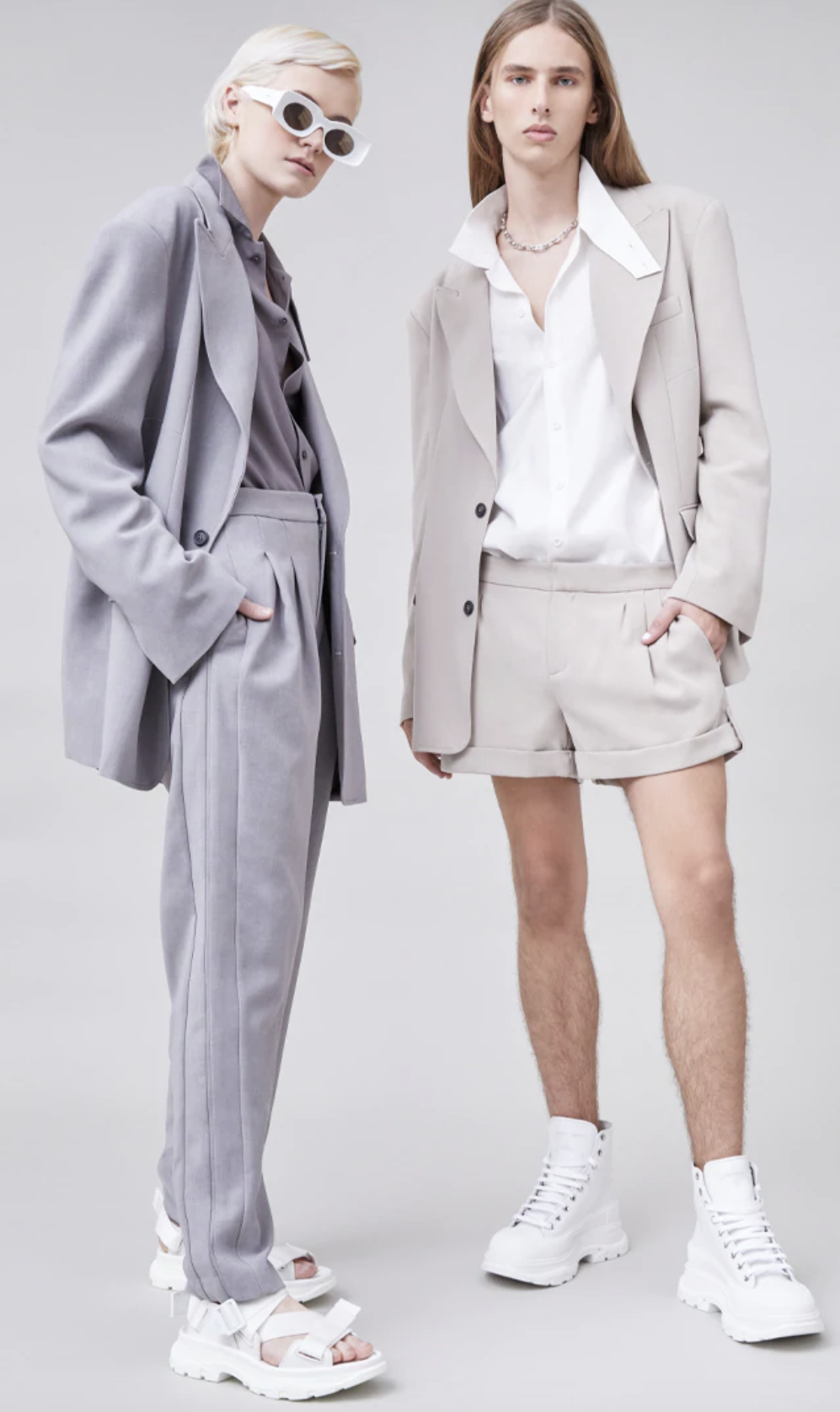
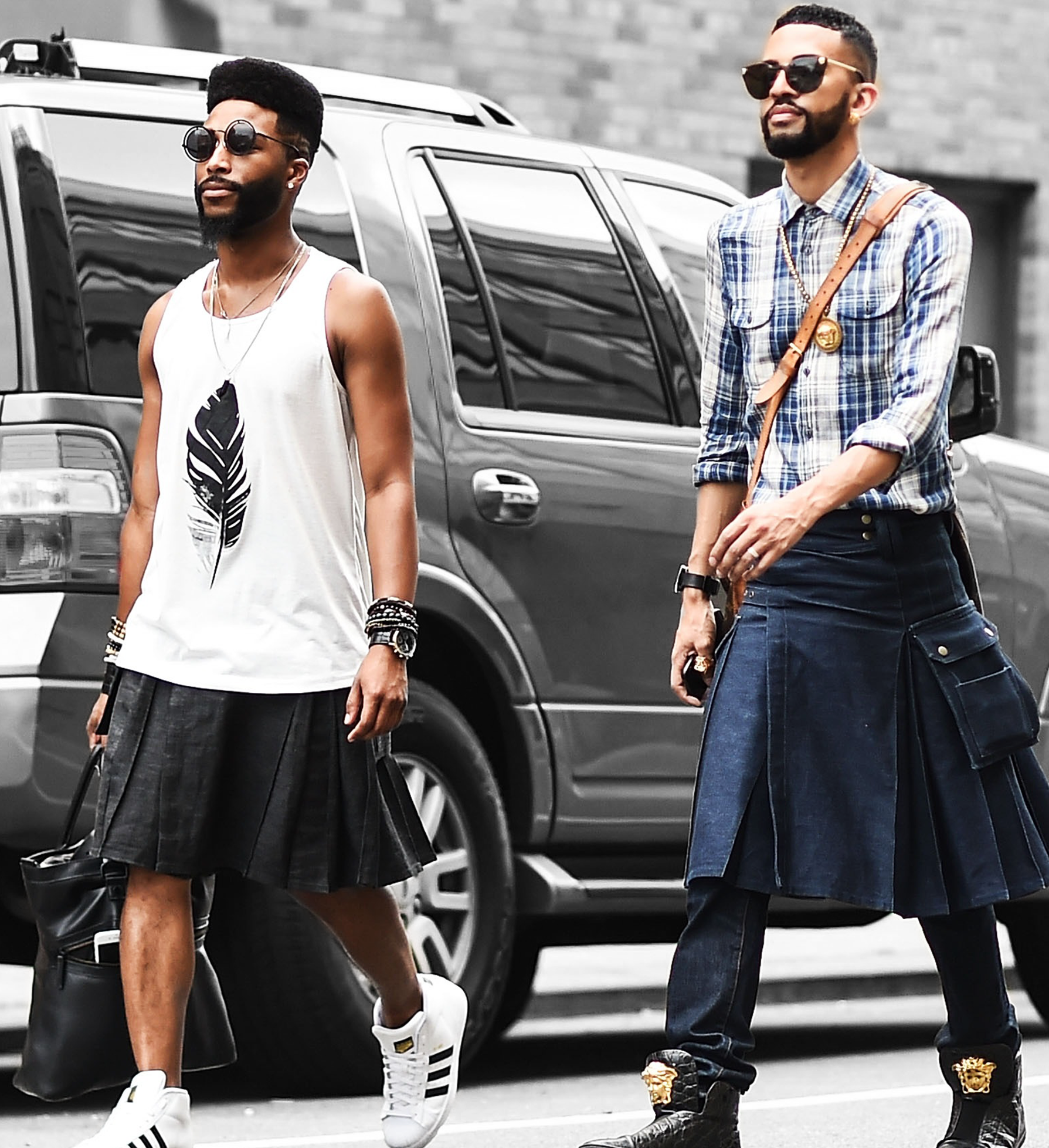
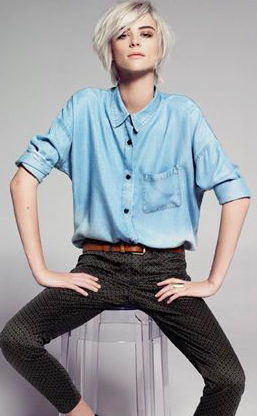
LGBTQ-Owned Shops That Will End Your
Addiction to Big Online Retail
Black LGBTQ Fashion Designers
Lesbian Models
The No-Longer Hidden History of Lesbian Fashion Trends
Embracing Gender Fluidity: LGBTQ Fashion Models
Timeless Flow Apparel
From Brad Pitt to Lil
Nas X: More Men Are
Turning to Skirts
ZynnStore
Queer Celebs Who Prove Suits Aren't Just for Men
Pride Beyond the Binary: Embracing Fluidity in Gender
Expression in Fashion
Forever 21 : Men's Party Collection
Queer Eye
Store
Esty: LGBTQ Enamel Pins
How Knoxx Is Redefining Streetwear On The
Hype and With Her Dvmn Pigeon Line
Emma D’Arcy on Fashion and Non-Binary Identity: Clothes
are Armour for Me
New Face of Beauty: Embracing LGBTQ
Inclusivity
Equality Florida Shop

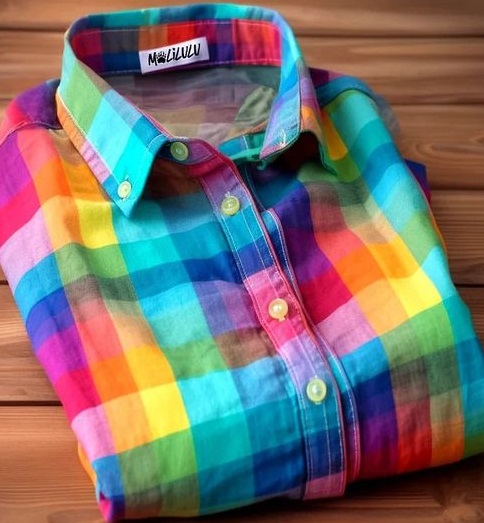
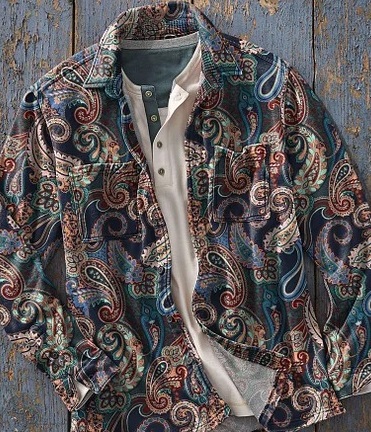
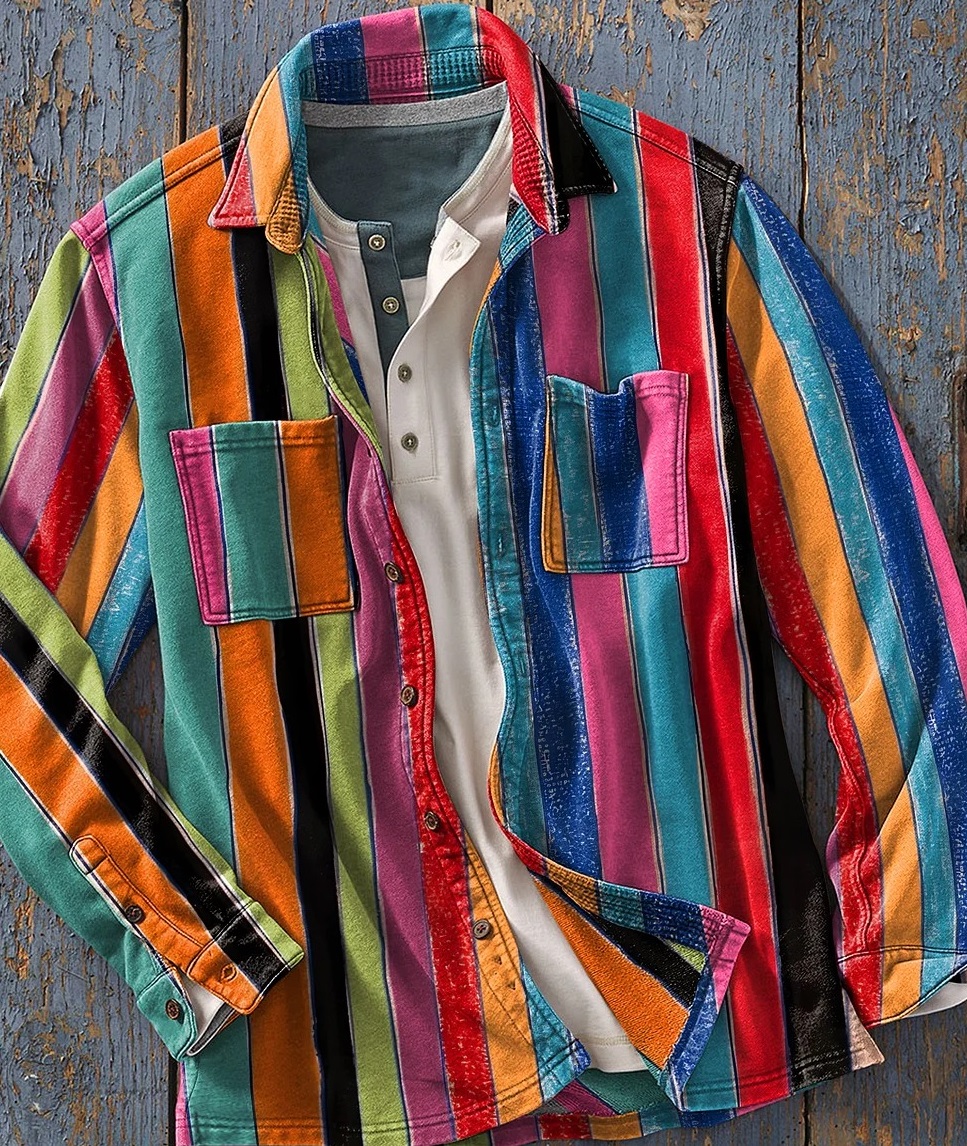
Interestingly though, across demographics, comfort is
key, ranking as the top reason why 53% of consumers
sometimes favour fashion outside of their gender
identity. This is understandably particularly high among
females surveyed (63%), while males focus on design as a
key focus (43%).
The survey also showed 79% of men and women looking to
purchase more gender-fluid clothing in the future.
Klarna merchant partner Uniqlo said of this: “As part of
the Uniqlo philosophy of LifeWear: Made for All, we
believe that clothing shouldn’t be restricted to one
gender. While we provide clothing for men and women, we
want to encourage people of all genders to wear the
clothes that make them feel good - regardless of the
label. This is why we are continuing to introduce more
clothing that can be worn by anyone. We hope that by
encouraging the wearing of our clothing by people of all
genders we will go some way to supporting the diverse
gender expressions of our customers.”
[Source: Sandra Halliday, Fashion Network, Sept 2022]
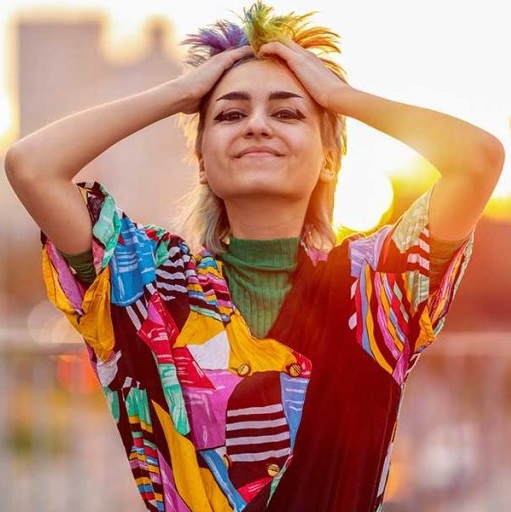
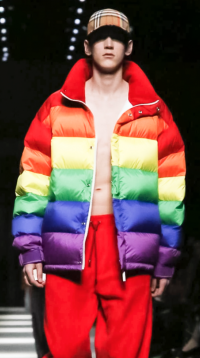
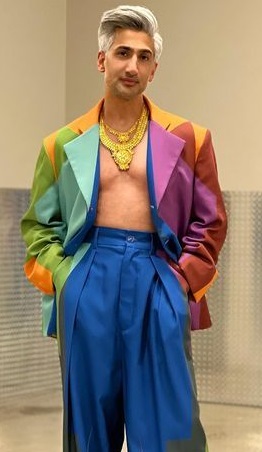
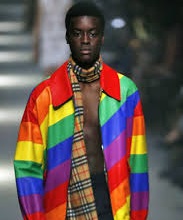
Rainbow Scarf
The Phluid
Project: Gender Free Brands
How Knoxx Is Redefining Streetwear On The
Hype and With Her Dvmn Pigeon Line
Best, Most Iconic Met Gala Looks by LGBTQ
Celebs Over the Years
Famous LGBTQ Fashion Designers and More
Lesbian Models
New Face of Beauty: LGBTQ Inclusivity in
Beauty School
Kevyn Aucoin: Iconic
Make-Up Artist
Watch: Gay Pride
Apparel
Kind Cotton Video
Rainbow Outfit
Gay Fashion Icon
André Leon Talley is Dead at Age 73
André Leon
Talley, the towering former creative director and editor
at large of Vogue magazine, has died. He was 73. Talley
was an influential fashion journalist who worked at
Women's Wear Daily and Vogue and was a regular in the
front row of fashion shows in New York and Europe. At
6-feet-6 inches tall, Talley cut an imposing figure
wherever he went, with his stature, his considerable
influence on the fashion world, and his bold looks.
In a 2013 Vanity Fair spread titled "The Eyeful Tower,"
Talley was described as "perhaps the industry's most
important link to the past." Designer Tom Ford told the
magazine Talley was "one of the last great fashion
editors who has an incredible sense of fashion history.
... He can see through everything you do to the original
reference, predict what was on your inspiration board."
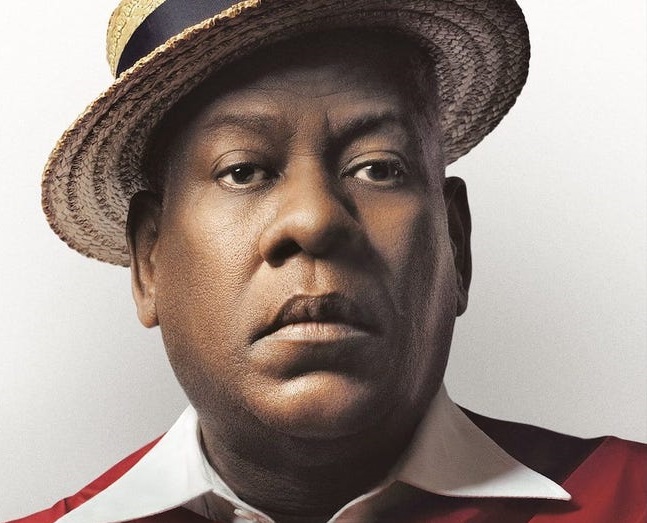
André Leon Talley, Fashion Industry Icon, Dead at 73
Fashion Icon André Leon Talley is Dead at Age 73
Influential Fashion Journalist André Leon Talley Dies at
73
Designer Diane von Furstenberg praised Talley on
Instagram, writing: "no one saw the world in a more
glamorous way than you did ... no one was grander and
more soulful than you were."
In his 2003 memoir, ALT: A Memoir, Talley focused on two
of the most important women in his life: his maternal
grandmother, Bennie Frances Davis and the late fashion
editor Diana Vreeland. "Bennie Frances Davis may
have looked like a typical, African American domestic
worker to many of the people who saw her on an ordinary
day, but I, who could see her soul, could also see her
secret: that even while she wore a hair net and work
clothes to scrub toilets and floors, she wore an
invisible diadem," he wrote.
His relationship with Vogue started at Duke University,
where his grandmother cleaned dorms; Talley would walk
to campus in his youth to read the magazine.
Talley was also a familiar figure to TV audiences,
serving as a judge on America's Top Model and appearing
on Sex and the City and Empire.
Raised in Durham, NC, Talley worked assorted jobs before
arriving in New York in the 1970s, soon meeting Vreeland
striking up a friendship that lasted until her death in
1989.
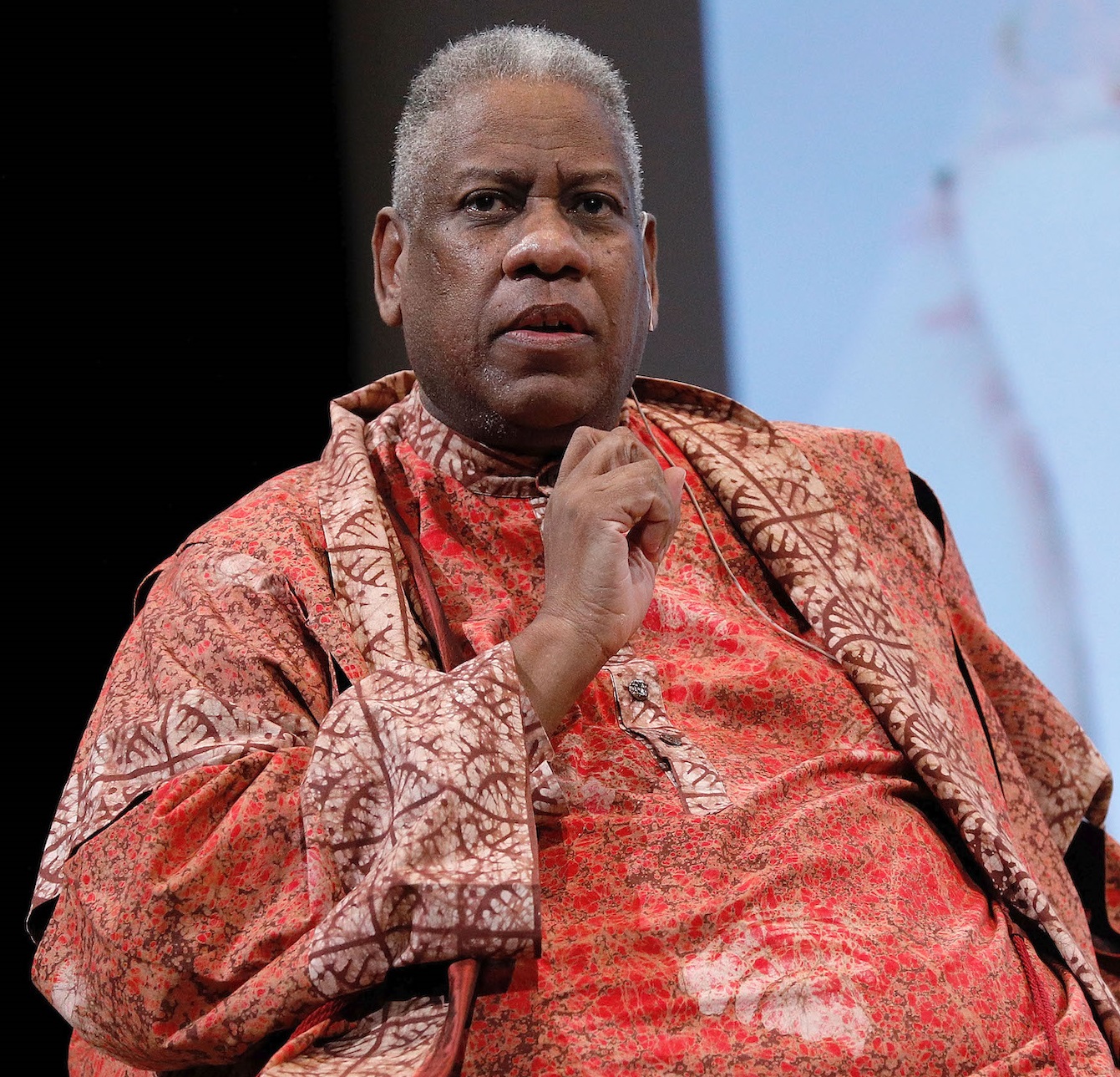
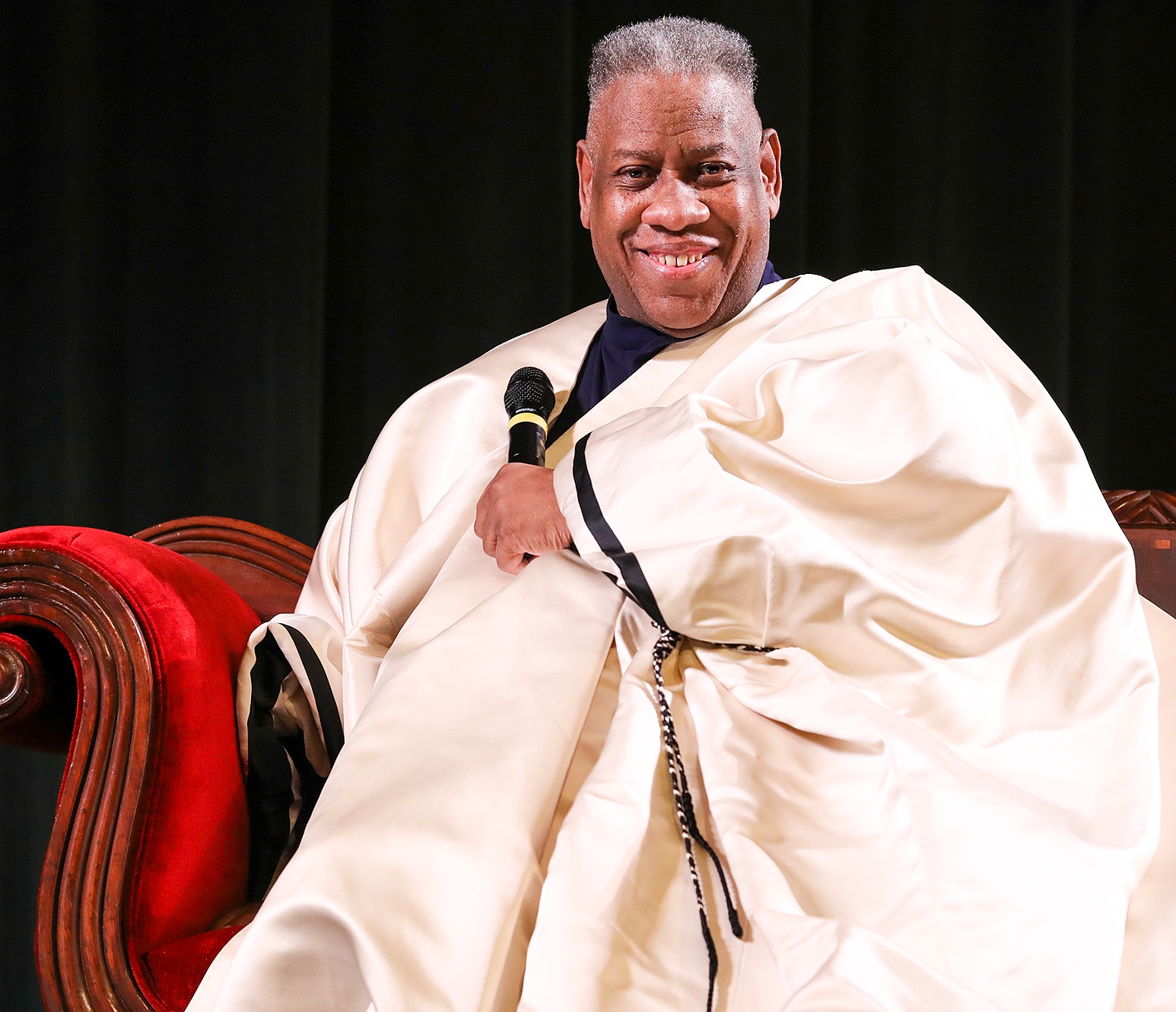
Talley worked as a park ranger in Washington, DC, and
Maryland, where he told visitors about slaves who built
Fort Washington and dressed up like a Civil War soldier,
he told The Associated Press in 2003.
After stints with Interview magazine and Women's Wear
Daily, Talley was hired at Vogue in 1983 by Editor in
Chief Anna Wintour and was appointed its creative
director in 1988. Talley released another memoir in
2020, The Chiffon Trenches, that included gossipy
behind-the-scenes tales about Wintour and other fashion
figures like the late designer Karl Lagerfeld.
Of all the elements of a person's apparel, Talley
considered shoes to be most important. "You can tell
everything about a person by what he puts on his feet,"
Talley told the AP. "If it's a man and you can see
the reflection of his face on the top of his black
shoes, it means they've been polished to perfection. ...
If it's a woman and she's wearing shoes that hurt ...
well, shoes that hurt are very fashionable!"
[Source: Associated Press, January 2022]
Shop HRC
New Era of Power Lesbian Fashion is Here
Pride Stance
Esty: LGBTQ Enamel Pins
Alex Consani Becomes First Transgender Model of the Year
at UK Fashion Awards
Eleganza: Queerest Fashion Fits
Skirts Aren't Just for Women
The No-Longer Hidden History of Lesbian Fashion Trends
Men Who Didn't Wear a Boring Black Tux to
the 2022 Emmys
Women Who Rocked Something Other Than a Dress at the
Emmys
Men Who Didn't Wear Boring Black Tuxes to the Venice
Film Festival
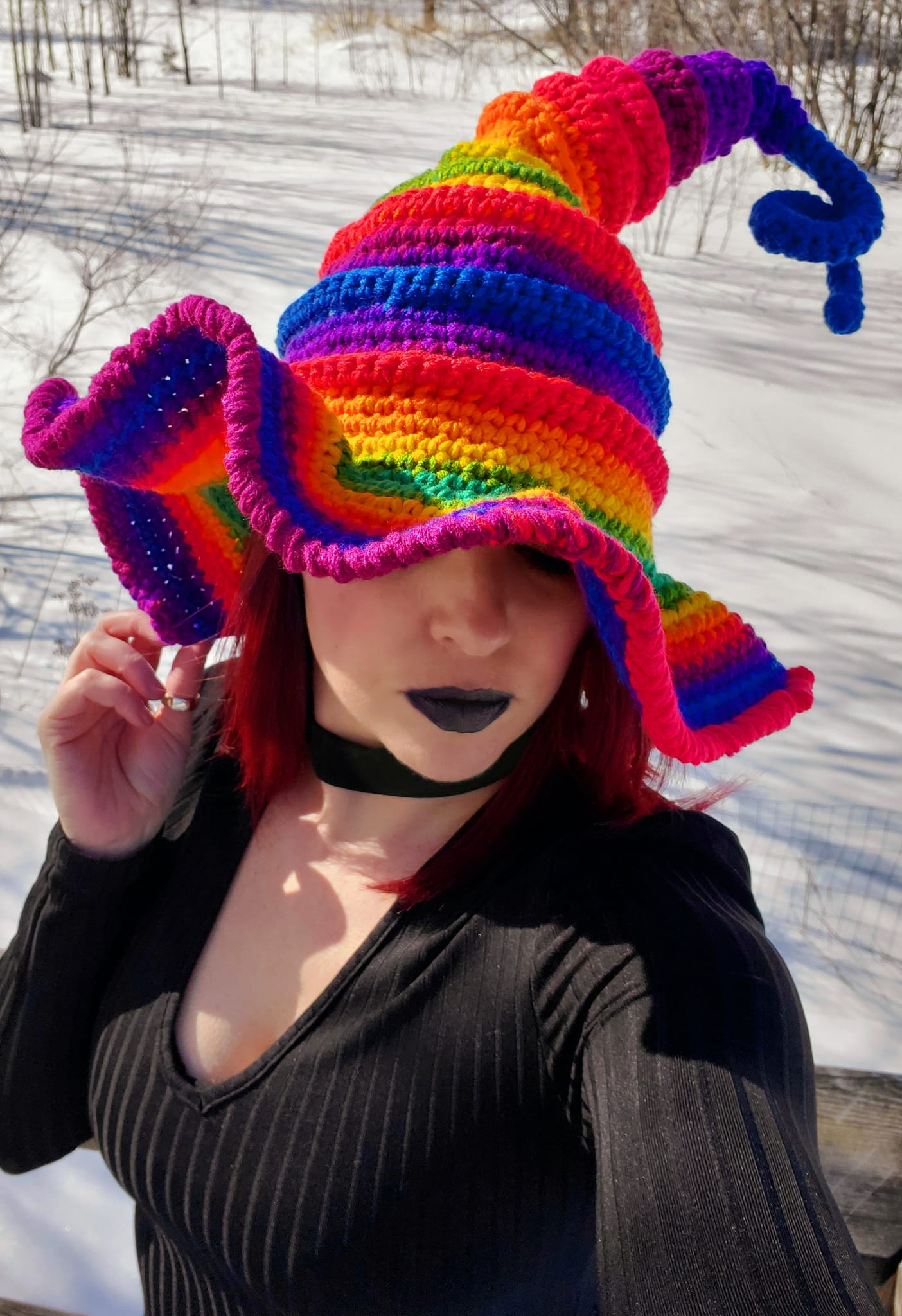
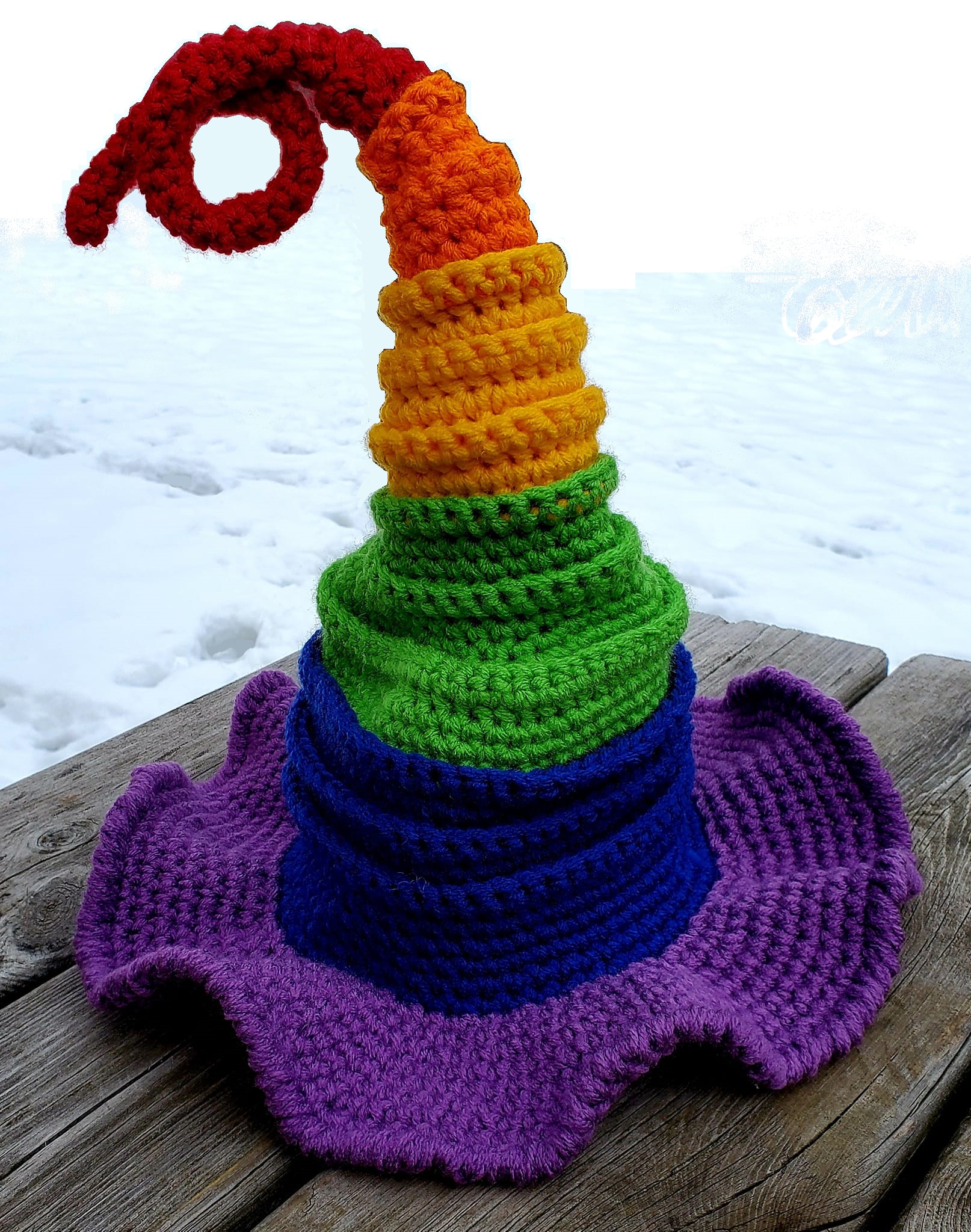
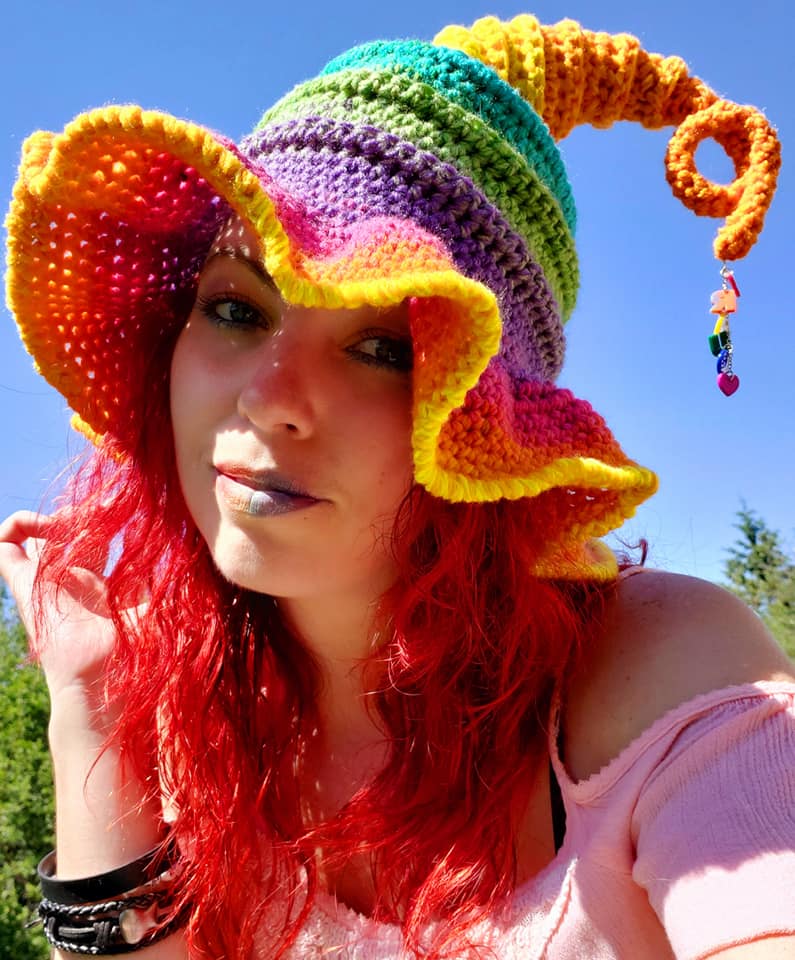
Queer Eye’s Tan
France Predicts 2022’s Top Fashion Trends
We can always count on Queer Eye’s Fab Five to tell us
what’s in and what’s out in terms of fashion and beauty
trends. That’s why we were so excited to see Tan France
share his list of top 2022 trends, and he’s predicting
these fashion crazes will be everywhere in the next few
months.
Low-Rise Jeans...
Love them or hate them, low-rise jeans are set to make a
huge comeback in 2022. Irina Shayk and Dua Lipa are only
some of the stars who already embraced this trend, and
France is hoping it will stay back in the early 2000s
because he’s not a huge fan.
Miniskirt Suits...
Everyone from Oscar de la Renta and Miu Miu to Alberta
Ferretti and Chanel gave miniskirt suits their seal of
approval at their recent runway shows, and France
predicts they’ll be all the rage in 2022.
Textured Clothes...
From 90s crinkle tops to shaggy and faux furry jackets,
outfits that beg to be touched are showing up everywhere
these days, and France is 100% here for this trend.
Sheer Outfits...
Sheer outfits have been around for a while and they’re
not going anywhere. France recommends layering sheer
clothes over a cami or tank and wearing them under a
blazer if this trend feels too daring for you, but you
still want to try it.
[Source: Beautiful Trends Today, January 2022]
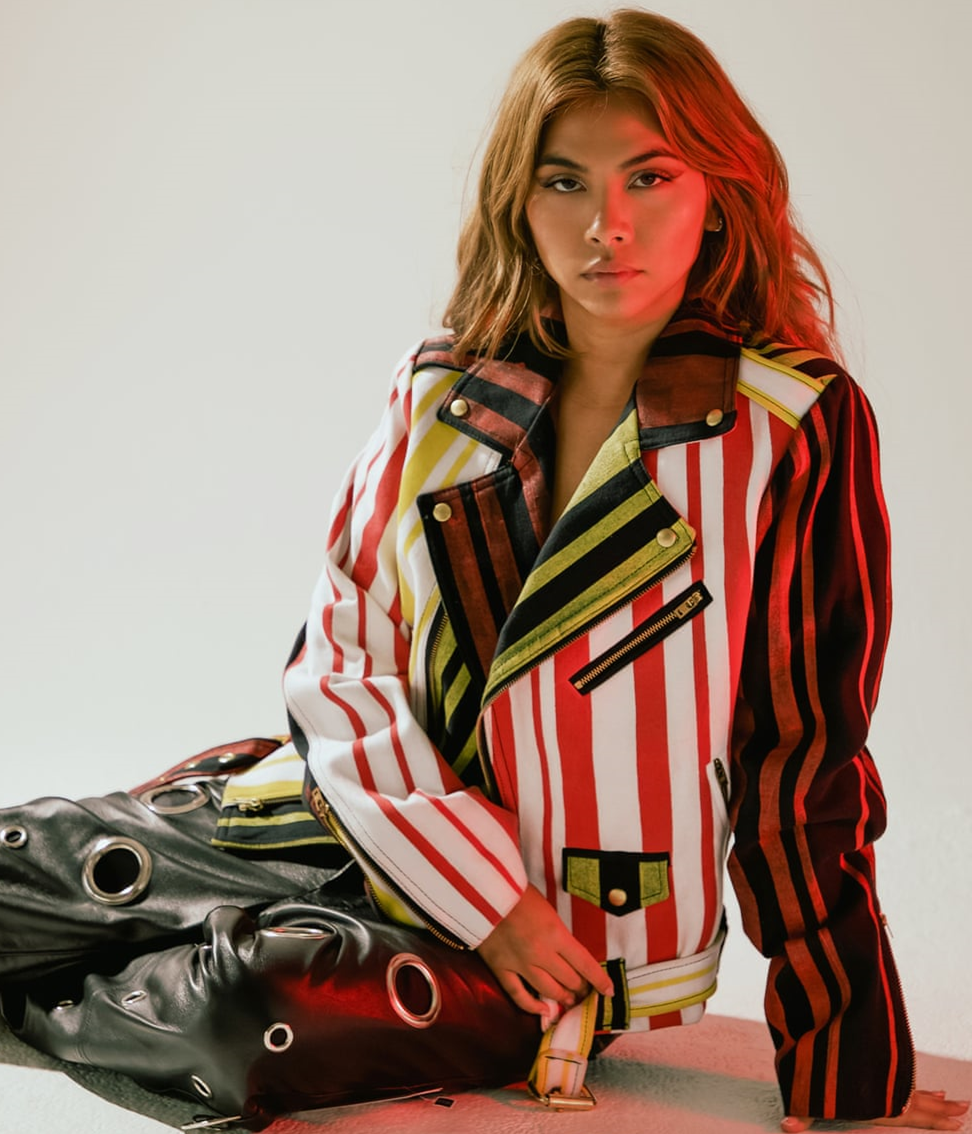
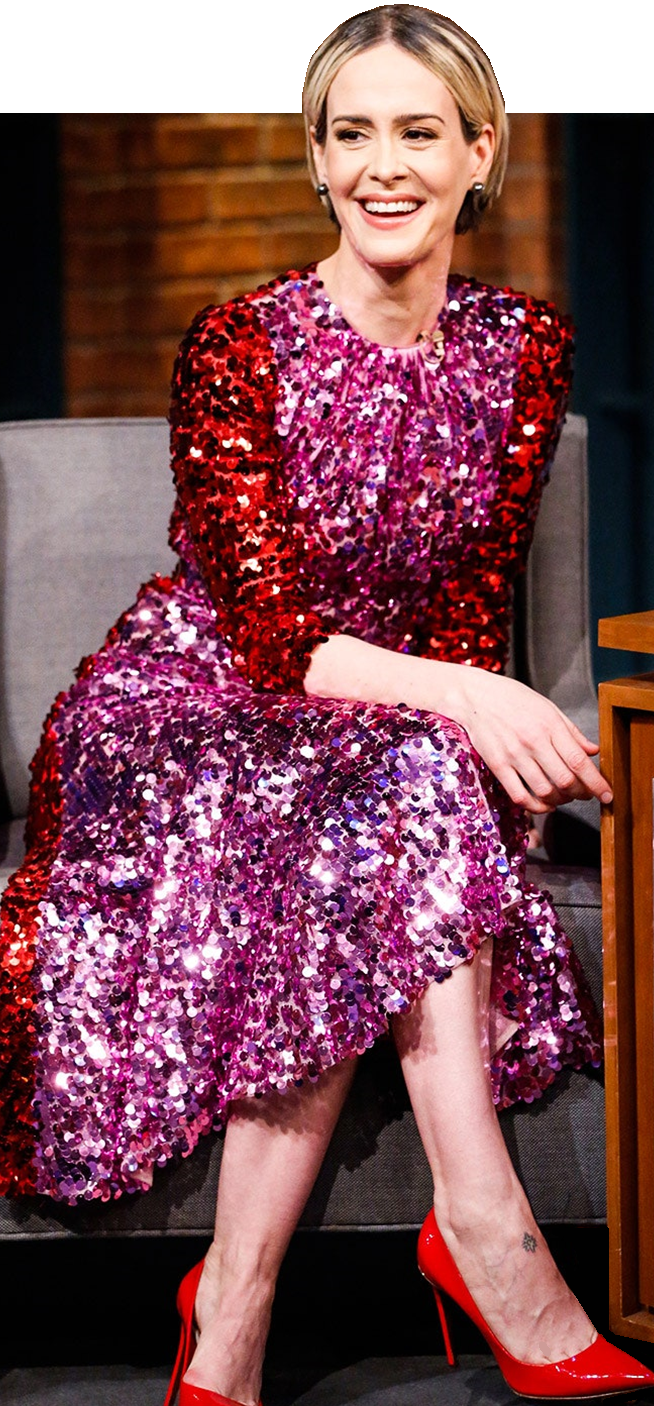
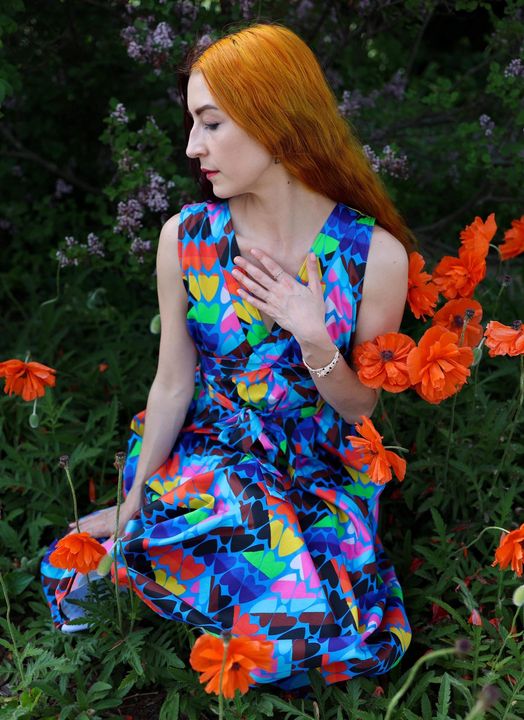
Shop HRC
Billie Eilish Style Moments
Startters
Rainbow Trend
GQ Fashion: Meet the Hot Boys of Steamy Red, White
and Royal Blue Movie
Take a Deep Dive into Tom Daley’s Wildest Fashion Fits
HRC Fashion: Equality
Merchandise
How to Queer Any Outfit
The
Pride Store
Pride Beyond the Binary: Embracing Fluidity in Gender
Expression in Fashion
Queer-Owned Merchandise Shops
Watch: Gay Pride
Apparel
Pride Stance
Queer Fashion Takes Center Stage at
DapperQ’s New York Fashion Week Extravaganza
Rainbow Outfit
Esty: LGBTQ Enamel Pins
Lidia Talavera:
High Heels for Men and Women
Emma D’Arcy on Fashion and Non-Binary Identity: Clothes
are Armour for Me
How to Dress Like a Gay Man
Proud Me
Queer Cut: Explanation of Queer Fashion
New Face of Beauty: Embracing LGBTQ
Inclusivity
Info: Art and Design
Loeuir
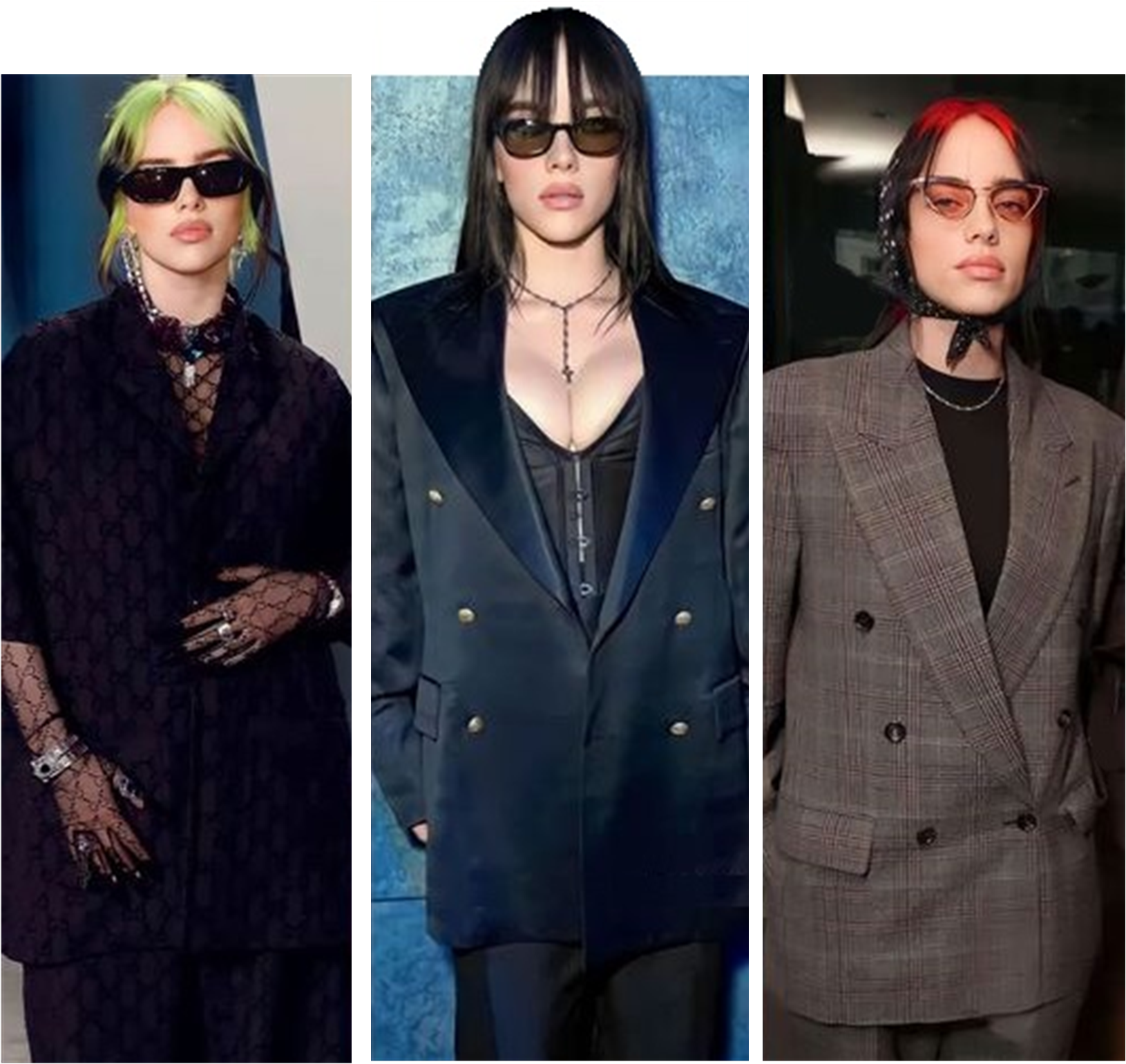
Queer Celebs Who Prove Suits Aren't Just for Men
New Face of Beauty: LGBTQ
Inclusivity in Beauty School
Qwear: LGBTQ
Voices in Fashion
Kind Cotton
Sarah Paulson Outfits That Make
Us Swoon
New Face of Beauty: Embracing
LGBTQ Inclusivity
Pride Supplies
Video Tutorial: Miz Cracker's Drag Transformation
Qwear: LGBTQ Voices in
Fashion
Rainbow Trend
Equality Florida Shop
Advocate: How Queer Fashion is Changing the World
The No-Longer Hidden History of Lesbian Fashion Trends
Kevyn Aucoin: Iconic
Make-Up Artist
ZynnStore
Embrace Your
Inner Rainbow
The Rainbow Fashion Trend
When it
comes to color, the fashion set is known to embrace the
mantra, "black is the new black." So consider it a rare
moment of optimism that designers are embracing the
colors of the rainbow—all together, all at once. From
'70s-inspired tees to technicolor skirts and
statement-making striped dresses, it's a full-on
spectrum of color this spring.
As you
give your closet a revamp for the warm weather ahead,
there's no better way to brighten up your look than with
the help of the rainbow. Why pick one favorite color
when you can have the whole rainbow? Bold and bright
rainbow-hued pieces have ruled the runways in the form
of show-stopping dresses, t-shirts, and accessories.
[Source: Lauren Alexis Fisher, Harper's Bazaar, March
2018]




Rainbow Trend
Rainbow Fashion Offers Joy in a Joyless Time
The Rainbow
Closet
Harper's Bazaar: Rainbow Fashion Trend
Rainbow Bright: How the Symbol of Optimism and Joy
Spread Across our Clothes, Homes and Lives
Rainbow Scarf
Unleashing Your Inner Rainbow
Are you
tired of wearing the same old boring outfits day in and
day out? Ready to unleash your inner rainbow and add
some color to your wardrobe?
It's no secret that wearing bright and bold hues can
instantly lift your mood and boost your confidence.
Plus, it's a surefire way to stand out in a sea of
neutral tones.
If you're not ready to go full-on rainbow, start with a
pop of color in your accessories. A bright tank, a bold
pair of shoes, or a colorful bag can instantly elevate
your outfit and get you started on your rainbow
wardrobe.
Don't be afraid to mix different colors together.
Experiment with complementary hues or try color blocking
for a bold statement.
Prints and patterns are a great way to add color to your
outfit without feeling too overwhelming. Think floral
dresses, striped tops, or our personal favorite, checker
print!
The key to colorful fashion is to have fun with it!
Don't take it too seriously and don't worry about what
others might think. Dress for yourself and let your
personality shine through!
Colorful fashion is all about embracing your unique
style and adding some fun to your wardrobe. So go ahead
and unleash your inner rainbow.
[Source: Kalianna, Rainbow Closet, May 2023]





Rainbow Trend
Rainbow Fashion Offers Joy in a Joyless Time
The Rainbow
Closet
Harper's Bazaar: Rainbow Fashion Trend
Rainbow Bright: How the Symbol of Optimism and Joy
Spread Across our Clothes, Homes and Lives
Rainbow Scarf
Rainbow Fashion
The
history of rainbows in fashion is rich, from the iconic
rainbow platform sandals that Salvatore Ferragamo made
for Judy Garland in the 1930s to sequined mini-dresses
from the swinging ’60s to the dramatic, brilliantly
colored gowns Alexander McQueen sent down aughts runways
— the most spectacular of which featured wing-like
feathers rising around the collar. At the 2018 Met Gala,
Lena Waithe stole the show in a Carolina Herrera cape
that vibrantly and unequivocally referenced the LGBTQ
pride flag, the rainbow’s most prominent cultural
association.
Still, there’s been a noticeable uptick in the
prevalence of rainbows in fashion lately. Nordstrom
fashion director Elizabeth Kanfer says “bright, upbeat”
colors, including rainbow spectrums, have been trending
in clothing for several years now, while rainbow jewelry
has been rising steadily over the last two. The
popularity of rainbows in fashion and accessories seems
to hinge upon the color scheme’s exuberance and
joyfulness. It’s a reaction against the post-Recession
dominance of minimalism, and, one might argue, a salve
for the anxiety of modern life.
[Source: Eliza Brooke, Vox, March 2019]
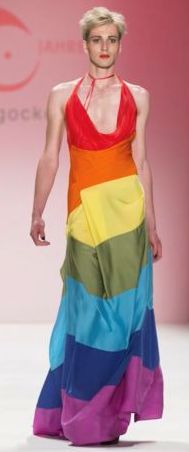
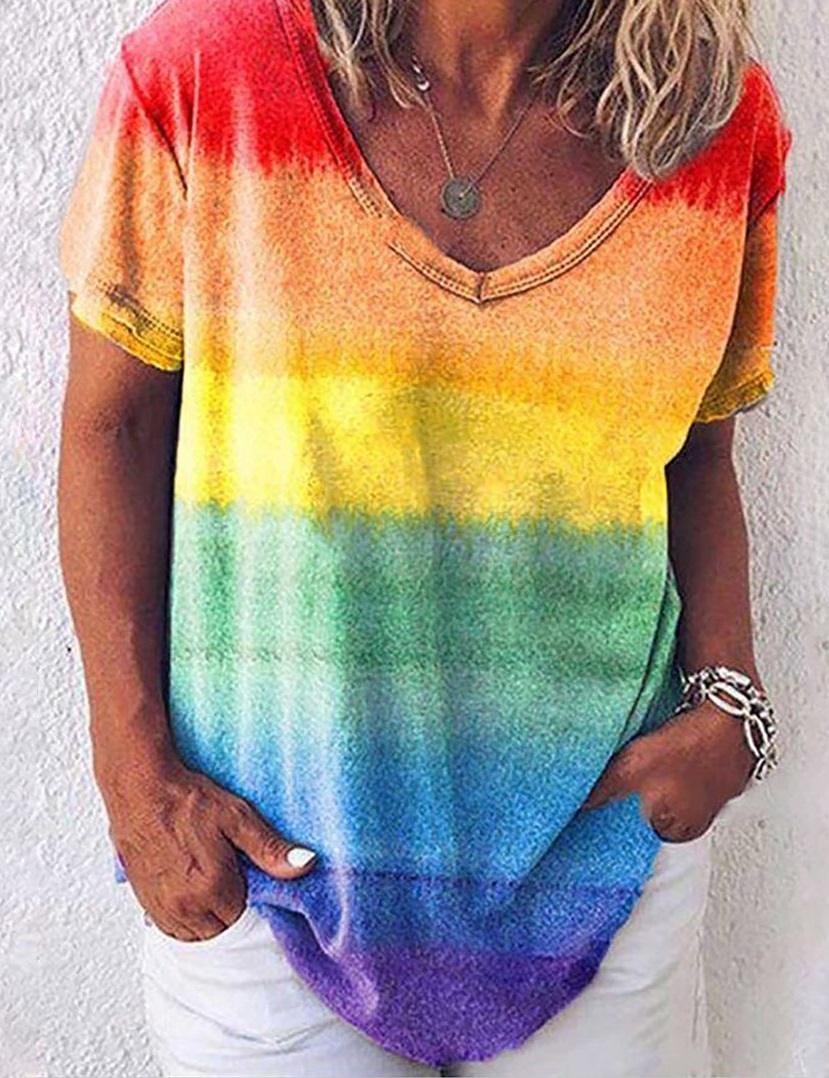
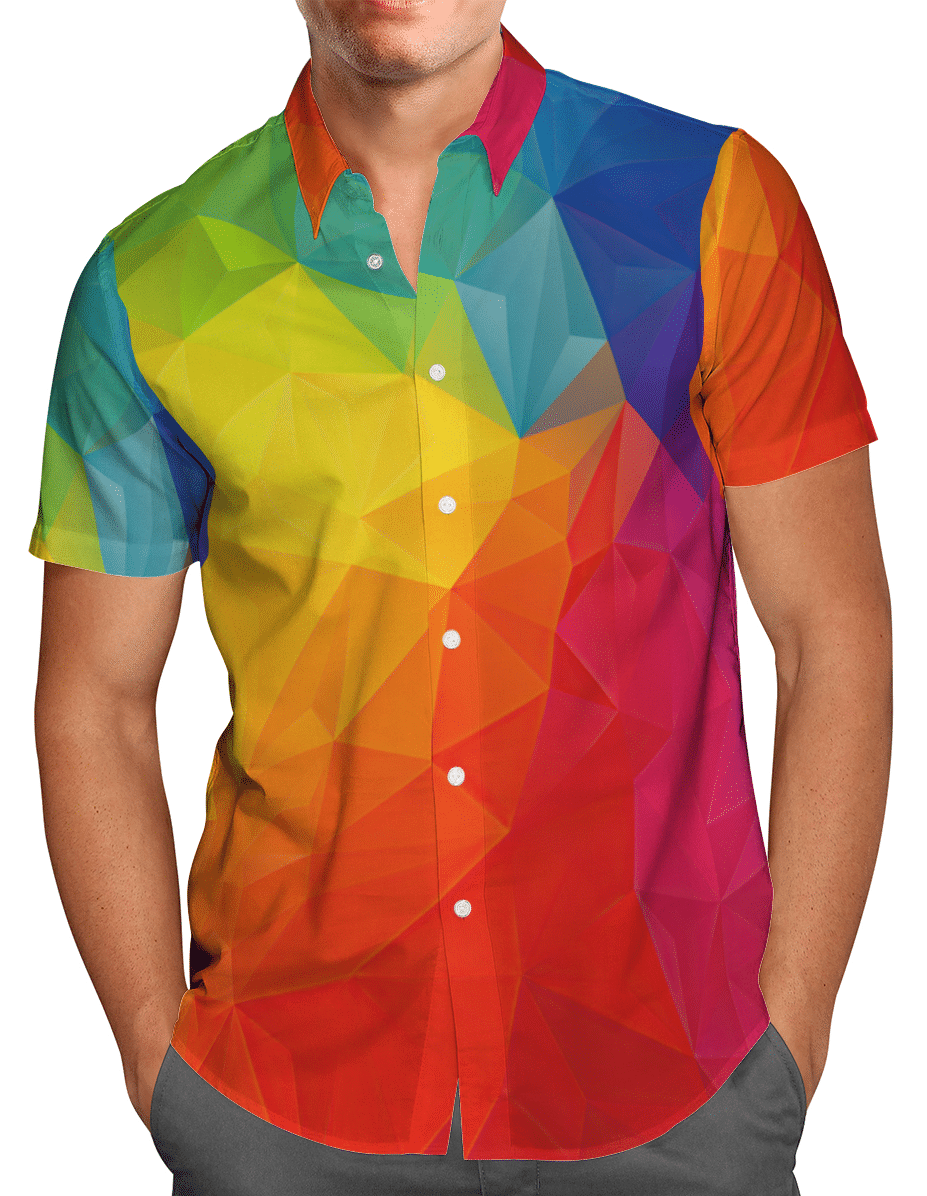 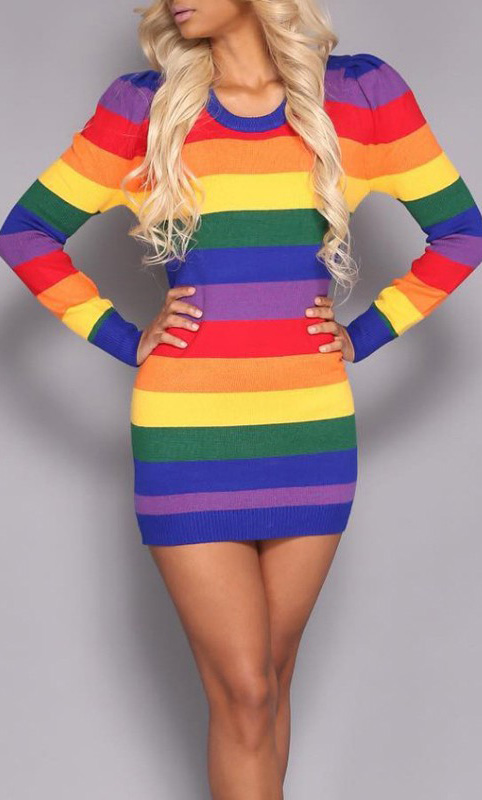

Rainbow Trend
Rainbow Fashion Offers Joy in a Joyless Time
The Rainbow
Closet
Harper's Bazaar: Rainbow Fashion Trend
Rainbow Bright: How the Symbol of Optimism and Joy
Spread Across our Clothes, Homes and Lives
The
Art of Colorful Dressing...
Mastering the Rainbow Trend
Looking to up your fashion game? Look no further than
the rainbow trend (or should we say lifestyle)! Colorful
dressing is all the rage.
First things first, let's talk about the basics. To pull
off the rainbow trend, you need to start with a strong
foundation. This means investing in colorful basics like
t-shirts, sweaters, and pants you can wear again and
again. Build a rainbow-inspired wardrobe with a mix of
bright and pastel shades, and you'll be ready to start
your rainbow journey.
Once you have your colorful basics down, it's time to
start mixing and matching. Don't be afraid to experiment
with different color combinations - there are no rules
when it comes to rainbow dressing! Some of our favorite
color combinations include pink and orange, blue and
green, and yellow and purple. Basically any combo that
makes you say "WOW...I look good."
Another key element of colorful dressing is
accessorizing. You can take any outfit to the next level
with the right accessories. Think colorful statement
earrings, bold necklaces, and playful hair accessories.
And don't forget about your shoes - a pair of bright
sneakers or heels can add just the right pop of color to
any look.
But perhaps the most important element of mastering the
rainbow trend is confidence. You have to own your look
and wear it with pride. Remember, fashion is all about
expressing yourself and having fun with your style. So
don't be afraid to be bold and try something new - you
might just be surprised at how much you love it! Embrace
your inner rainbow!
[Source: Kalianna, Rainbow Closet, May 2023]
Lesbian Models
Influential Fashion Journalist André Leon Talley Dies at
73
Hayley Kiyoko is a Style Icon
Ultimate Fashion Needed For A Stylish
Queer Vacation
How to Shop for Clothes When You're
Gender-Nonconforming
Sarah Carson: Founder of Leota
Target Collaborates with TomboyX to Sell Binders
Harry Styles Invests in Queer British Fashion Label S.S
Daley
Pride Beyond the Binary: Embracing Fluidity in Gender
Expression in Fashion
HRC Fashion: Equality
Merchandise
Rainbow Outfit
Ashley Biden
Wears a Tuxedo on Inauguration Night
Ashley Biden rocked a tuxedo on inauguration night, and
people on social media couldn't get over her bold, chic look.
Inauguration Day was full of wonderful style moments,
from Michelle Obama’s statement belt to Jill Biden’s
ivory coat embroidered with US state flowers. But if
there’s one inauguration look that’s really breaking the
internet, it’s Ashley Biden’s unisex tuxedo.
The 39-year-old daughter of Joe and Jill Biden rocked a
sleek tux on inauguration night, and onlookers were
rightfully obsessed with the chic, unexpected look.
Biden’s tuxedo is by Ralph Lauren, according to Harper’s
Bazaar, and features a cropped cigarette pant and an
open bow tie. The president’s daughter paired the
effortlessly cool look with black stilettos and a high
ponytail. By choosing Ralph Lauren, she subtly
coordinated with her dad, who also wore a Ralph Lauren
suit and overcoat on Inauguration Day.
While she may have had one of the breakout style moments
of the inauguration, Biden generally keeps a low
profile, rarely discussing her family in public. Biden
confirmed that while she will not have a job within her
dad’s administration, she will use her platform as first
daughter to advocate for causes close to her heart,
including social justice, mental health, education, and
community development and revitalization.
[Source: Lindsay Lowe, Today, Jan 2021]
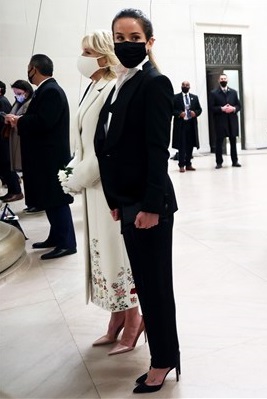
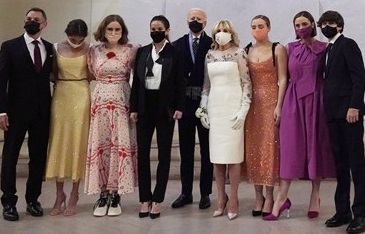
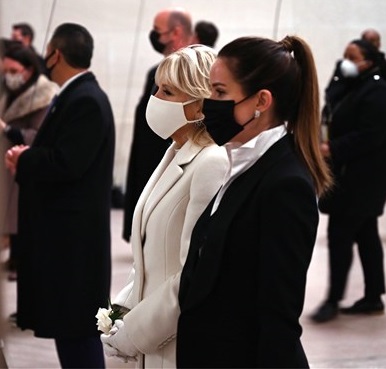
Startters
Eleganza: Queerest Fashion Fits
Harry Styles Invests in Queer British Fashion Label S.S
Daley
Qwear: LGBTQ Voices in
Fashion
Advocate: How Queer Fashion is Changing the World
Kevyn Aucoin: Iconic
Make-Up Artist
Pride Supplies
Billie Eilish Style Moments
How Knoxx Is Redefining Streetwear On The
Hype and With Her Dvmn Pigeon Line
Queer Eye: Top Fashion Tips
Pride Stance
Winter Fashion Ideas: Edgy Femme
Info: Queer Flagging
Shop HRC
Celebrity Men Wearing Skirts
Ohh Clothing
I Support LGBTQ:
Rainbow Scarves and Merch
How to Shop for Clothes When You're
Gender-Nonconforming
Fashion Consultant for Trans Women
Gay Pride Apparel
Loeuir
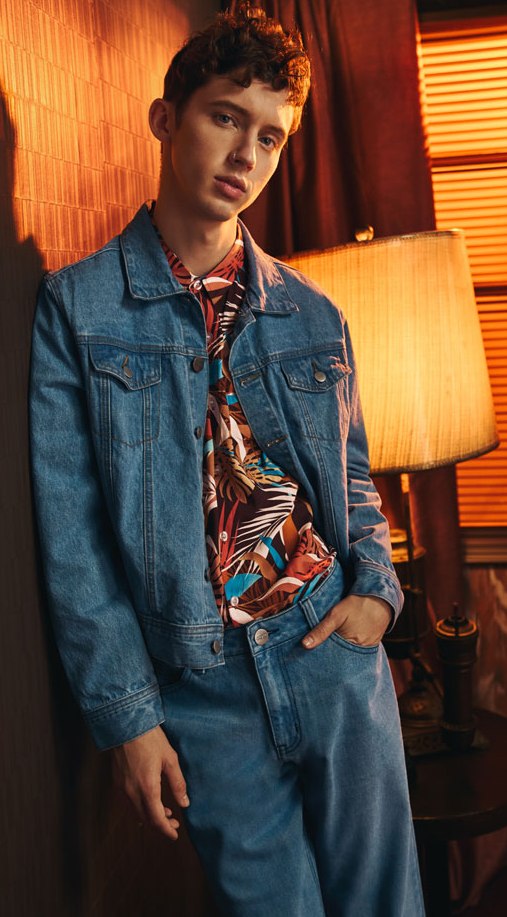
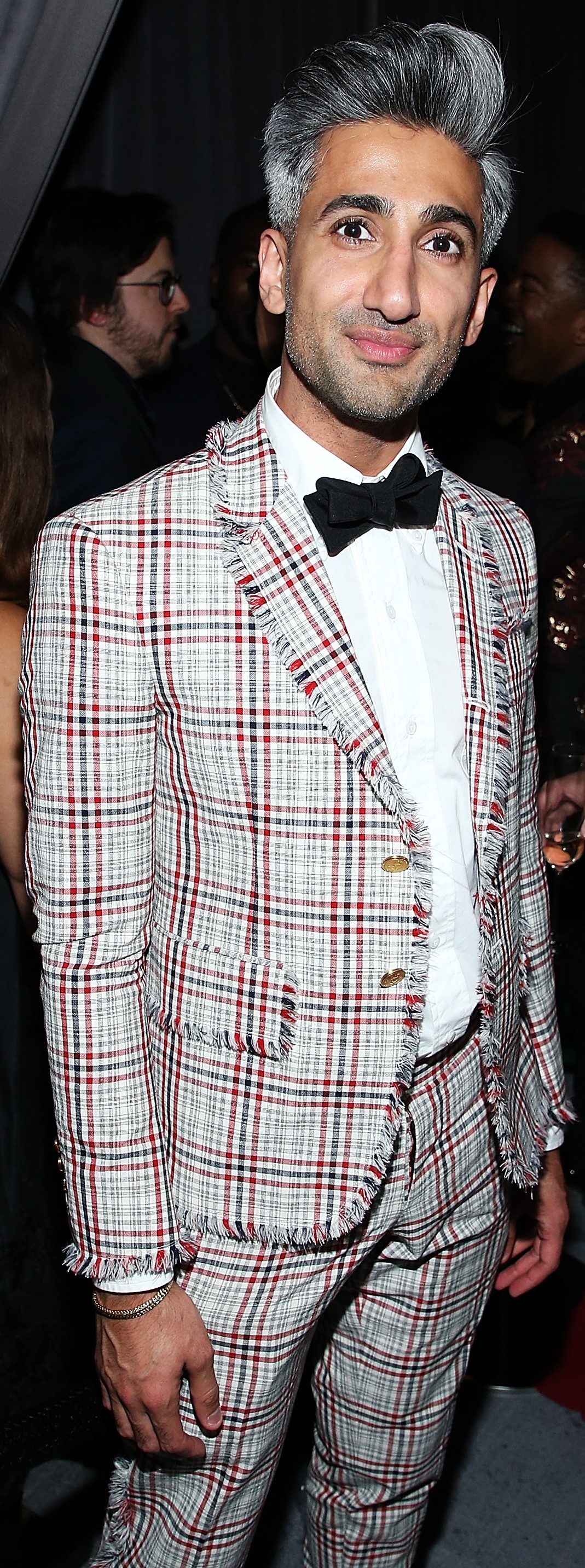
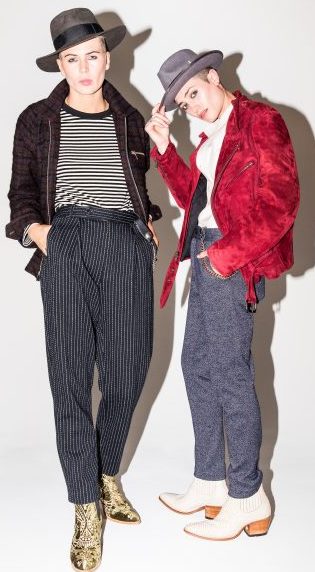
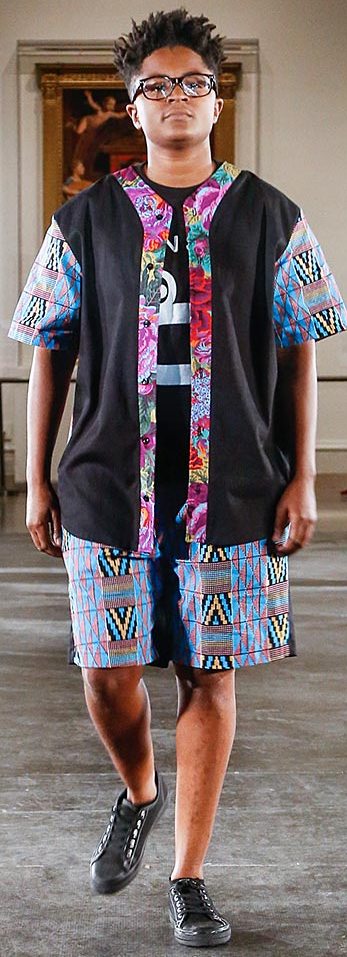

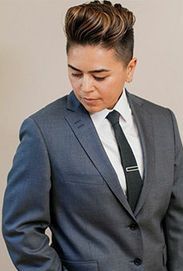
New Era of Power Lesbian Fashion is Here
Queer Eye
Store
Esty: LGBTQ Enamel Pins
Celebrity Men Wearing Skirts
Rainbow
Trend
Alex Consani Becomes First Transgender Model of
the Year at UK Fashion Awards
The
Phluid Project: Gender Free Brands
I Support LGBTQ:
Rainbow Scarves and Merch
Watch:
Gay Pride Apparel
How Knoxx Is Redefining Streetwear On The
Hype and With Her Dvmn Pigeon Line
Oscar Guardiola Designs
Rainbow
Outfit
You Can't Have Camp Without Queer
Masculine and Feminine Lookbook
Best, Most Iconic Met Gala Looks by LGBTQ
Celebs Over the Years
Queer Celebs We're Looking to for Fashion Inspo
Androgynous Fashion
History of Fashion's
Response to the AIDS Epidemic
Queer Fashion: More Than Just a Trend
Kind Cotton
Info: Gender Expression
Skirts Aren't Just for Women
Dressing Beyond the Binary
Adam's Nest

Queer-Owned
Clothing Lines
|
Kirrin Finch
Wildfang
Tomboy Toes
Dfrntpigeon
Atomic Gold
BCalla
Telfar Global
Chromat
Outplay
Tomboy X
Point5CC
Agendee
S.S. Daley

|
8
Palms
Skirtcraft
Dapper Boi
XYST Ugli
Sharp Suiting
Gypsy Sport
Brujas
Queer Supply
Flavnt Streetwear
Stuzo Clothing
Blue Stockings Boutique
Blo Fish Clothing
 |
Startters
Flannel Foxes
Gender Free World
Jacob Tobia
No
Sesso
Otherwild
Official Rebrand
Radimo LA
Baja EastCadet
Rebirth Garments
CG
Studio
FtM Detroit
Mi
Vida
 |
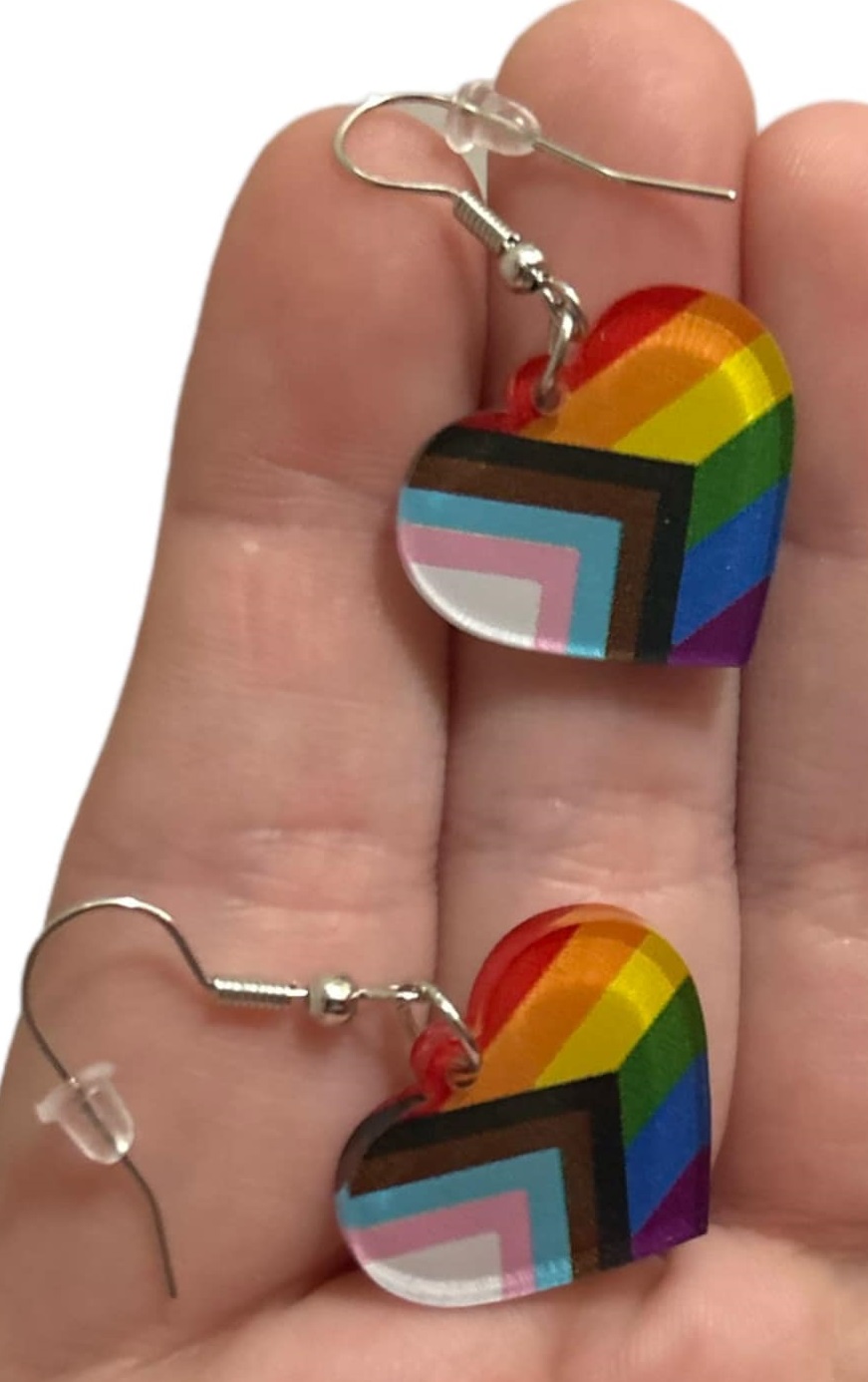
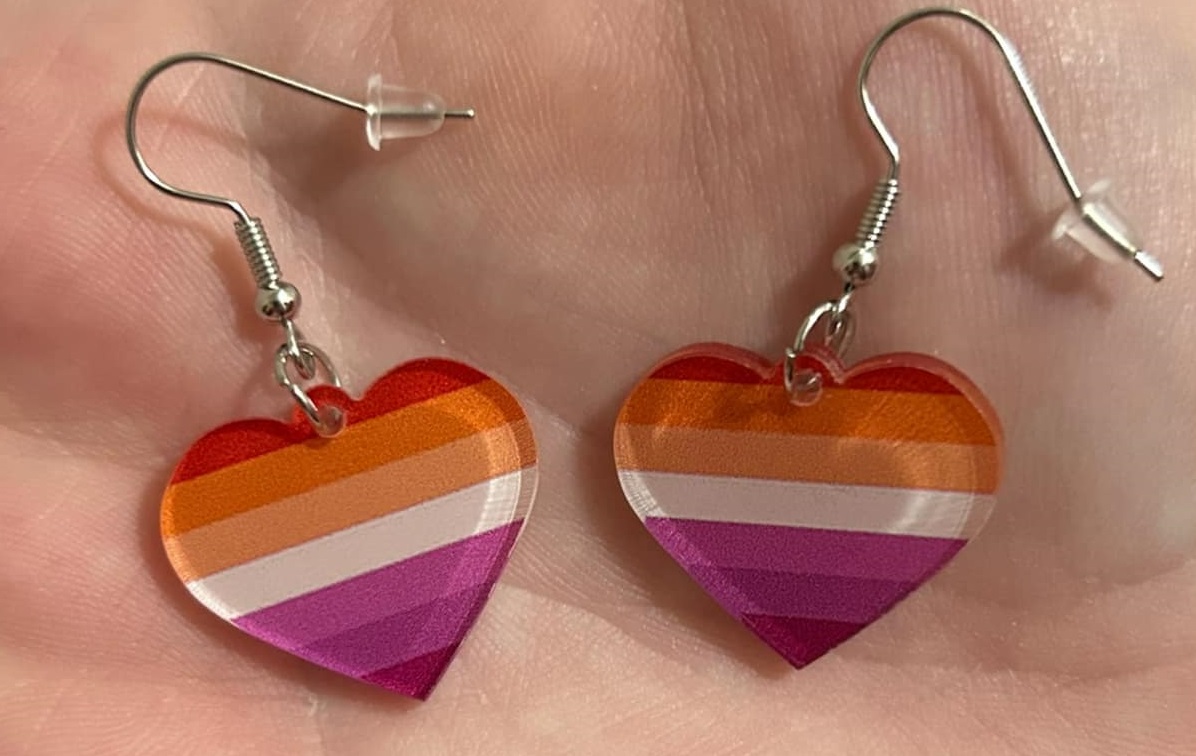
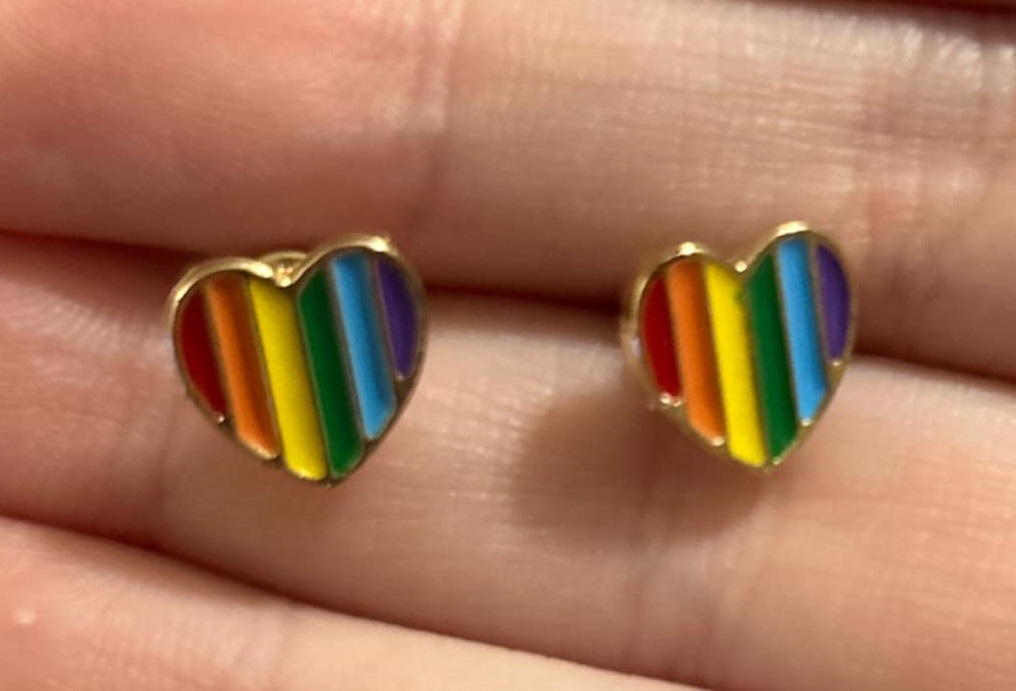

Queer Celebs Who Prove Suits Aren't Just for Men
Qwear: Favorite
Black Queer Fashion Moments of the Year
Queer Designers You Should Know
Oscar Guardiola Designs
Hayley Kiyoko is a Style Icon
GQ Magazine:
Keith Haring Blew Up the Art and Fashion World
LA Times: Fashion
Statements and Social Causes in LGBTQ Community
Valentina Sampaio:
Interview With Trans Fashion Model
Iconic Fashion Tributes to
LGBTQ Culture
Lesbian Models
Thierry Mugler, Iconic French Fashion
Designer, Dies at 73
Eleganza: Queerest Fashion Fits
Esty: LGBTQ Enamel Pins
Equality Florida Shop
Genderqueer
Fashion
Genderqueer fashion is fashion among genderqueer people
that goes beyond common style conventions that usually
associate certain colors and shapes with one of the two
binary genders. Genderqueer fashion aims to be perceived
by consumers as a fashion style that focuses on
experimenting garments based on people's different body
shapes instead of following the restrictions given by
gendered clothing categorization. Genderqueer style is
characterized by the choice to not conform to gender
norms assigned at birth. Its purpose is to redefine what
is considered feminine and masculine.
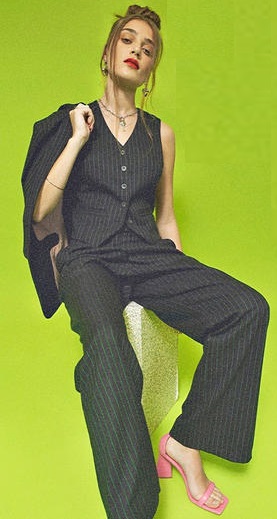
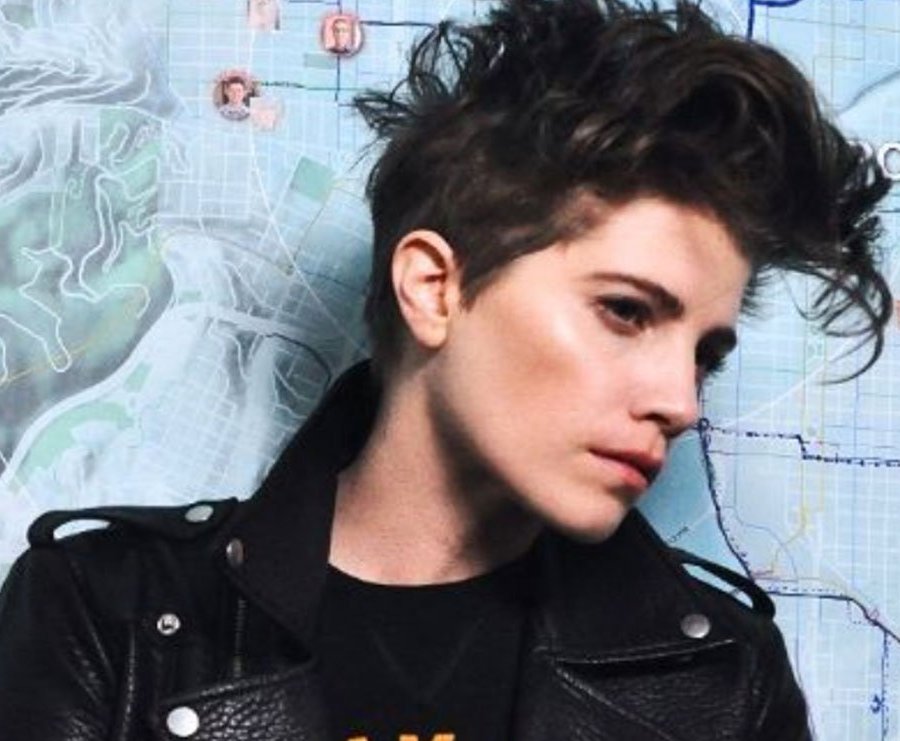
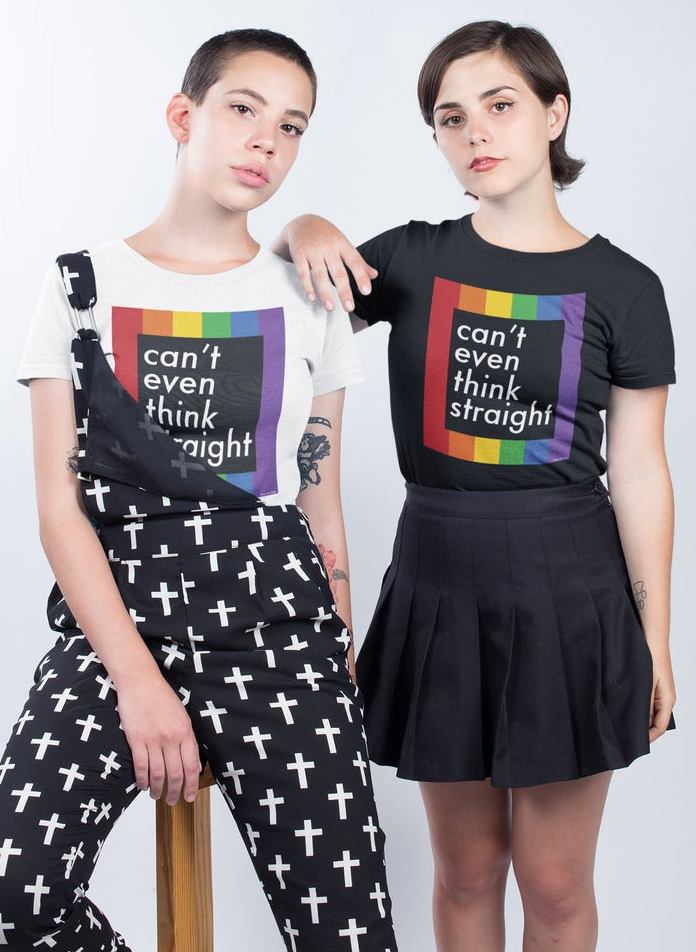


This differentiation between gender norms through
clothing became preponderant during the nineteenth
century and it mainly involved different fabrics, trims
and constructions for different genders. Those
distinctions were meant to mirror gender roles in
society as masculine clothing aimed to be practical
while female fashion was perceived as purely aesthetic.
Therefore, there is a historical dimension to the
association between fashion and gender identity.
Nonetheless, gender expression today is recognized by
the LGBTQ community as a very personal and subjective
behavior. Genderqueer style is therefore intrinsically
tied to identity, and as such, it includes a vast range
of aesthetics.
Startters
Pride Clothing and Rainbow Outfits
Alex Consani Becomes First Transgender Model of the Year
at UK Fashion Awards
History of Lesbian Fashion
The
Pride Store
I Support LGBTQ:
Rainbow Scarves and Merch
GQ Fashion: Meet the Hot Boys of Steamy Red, White
and Royal Blue Movie
Watch: Gay Pride
Apparel
Pride Stance
Queer Fashion Takes Center Stage at
DapperQ’s New York Fashion Week Extravaganza
Queer Designers You Should Know
Butch Fashion
Billie Eilish Style Moments
Sarah Paulson Outfits That Make Us Swoon
Rainbow Trend
Best, Most Iconic Met Gala Looks by LGBTQ
Celebs Over the Years
Skirts Aren't Just for Women
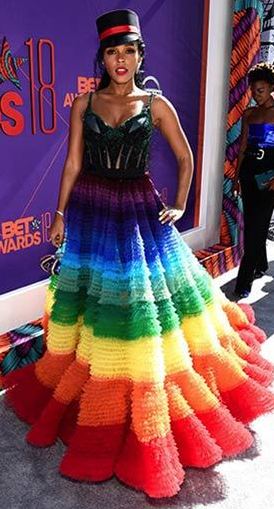
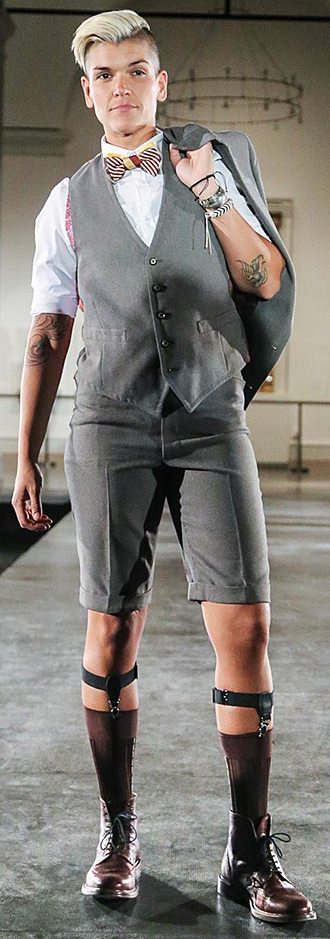
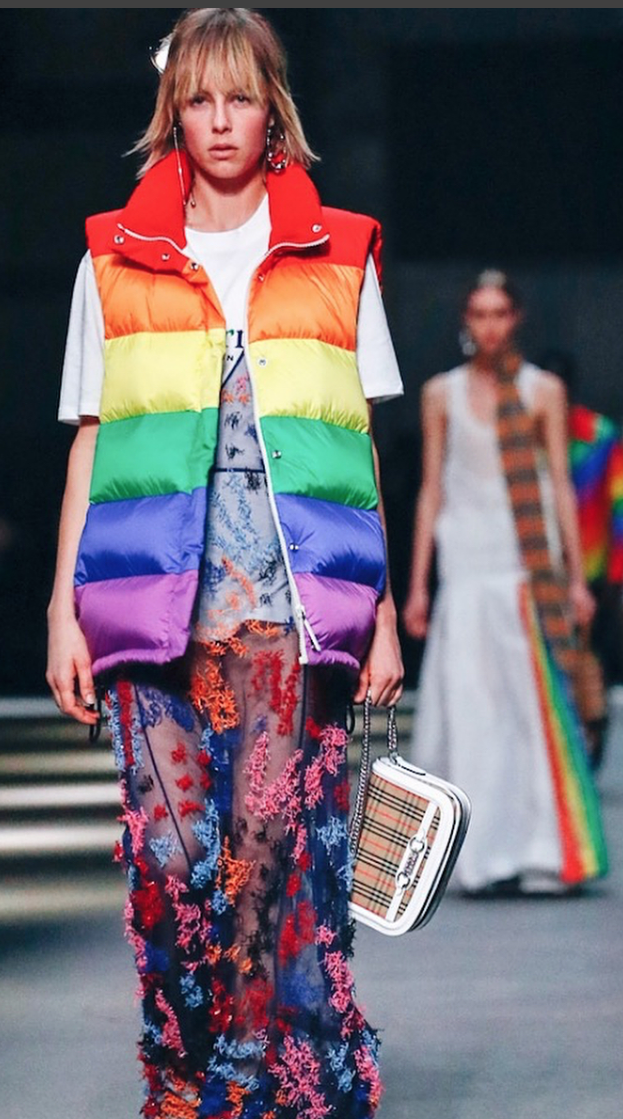
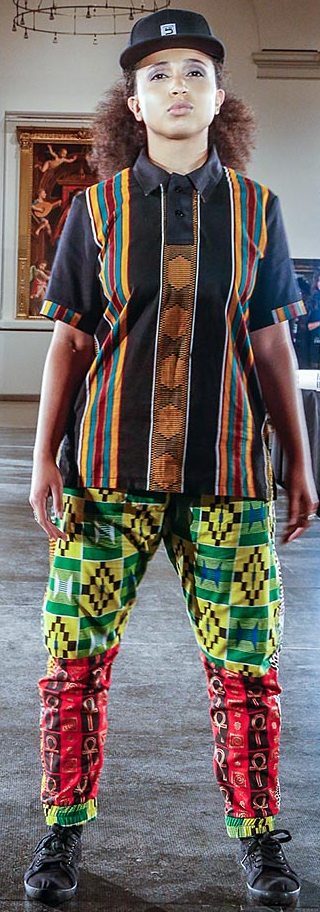

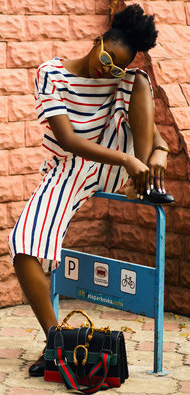
According to contemporary criticism, gender becomes
through fashion a form of body style which is a
fundamental part of self-realization and presentation as
it creates a bridge between individual identity and
society. The genderqueer fashion style tries to recode
this relation, although encountering several
restrictions in the mass production of commonly binary
goods.
There is
an additional layer of risk for humans assigned male at
birth who want to present feminine by wearing dresses
and makeup, since the act itself is likely to attract
unwanted attention. There's a material consequence to a
male presenting feminine, and there's not a material
consequence to a female presenting masculine. When a
male wears lipstick, or puts on earrings, or wears a
skirt, his entire reality shifts.
Loeuir
Rainbow Scarf
Pride Clothing and Rainbow Outfits
Pride Beyond the Binary: Embracing Fluidity in Gender
Expression in Fashion
Queer Eye Store
Shop HRC
Forever 21: Men's Neutral Collection
Butch Fashion
Esty: LGBTQ Enamel Pins
The No-Longer Hidden History of Lesbian Fashion Trends
I Support LGBTQ: Handmade Rainbow Scarf
Queer-Led Fashion Brands
Equality Florida Shop
Rainbow Trend
Fashion and Homosexuality
Eleganza: Queerest Fashion Fits
Startters
Gays Fashion
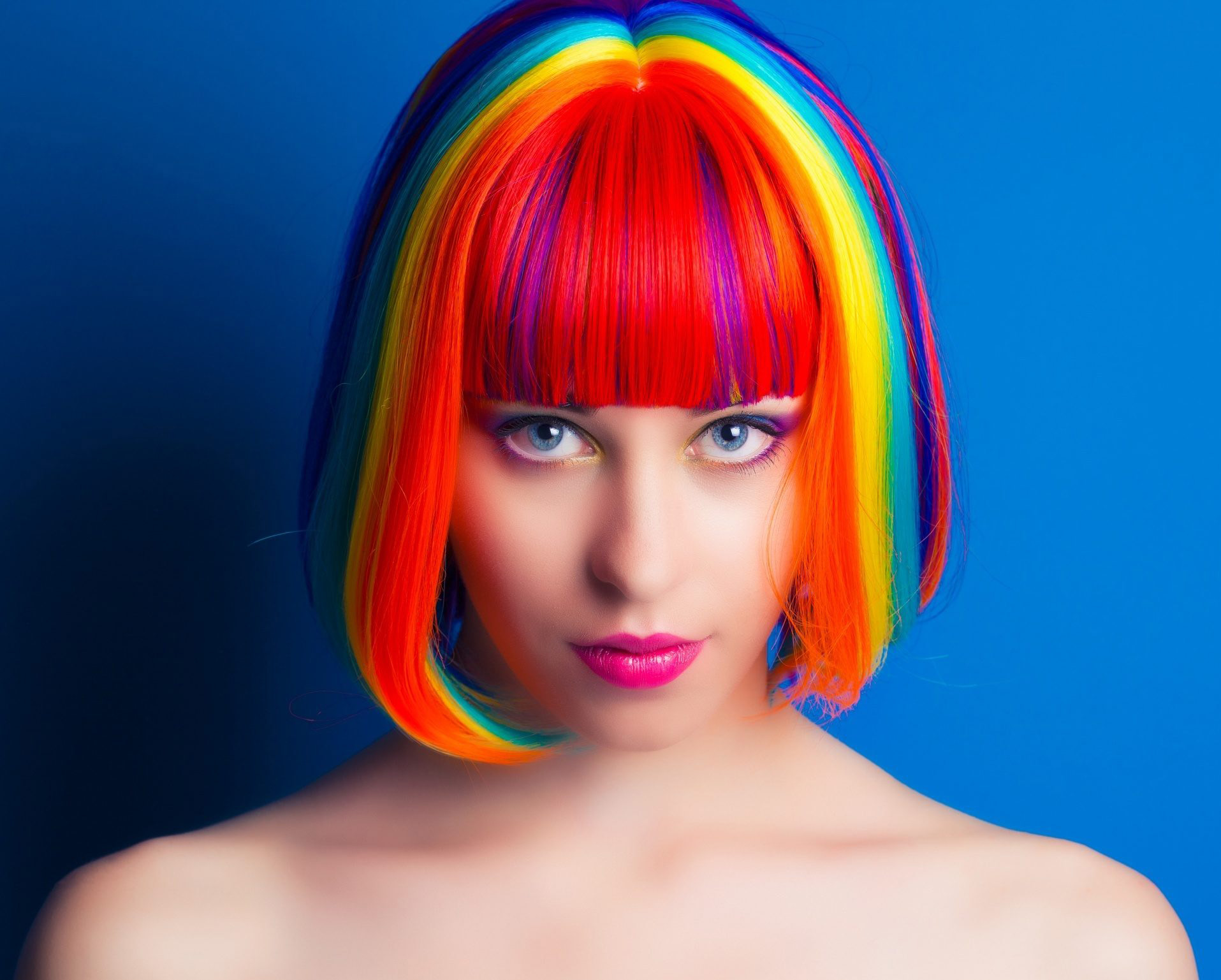
Pride Clothing and Rainbow Outfits
How Knoxx Is Redefining Streetwear On The
Hype and With Her Dvmn Pigeon Line
Black LGBTQ Fashion Designers
Lesbian Models
Queer Celebs We're Looking to for Fashion Inspo
History of Lesbian Fashion
Kind Cotton
Lidia Talavera:
High Heels for Men and Women
Passing: Trans Fashion Tips
Tips for MTF Trans
Clothing Choices
Pride Supplies
The Phluid
Project: Gender Free Brands
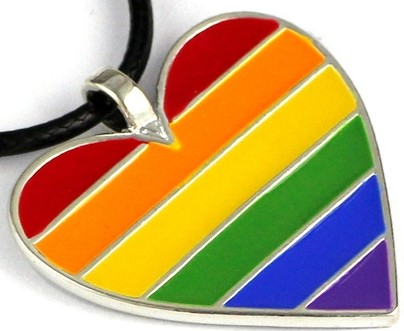 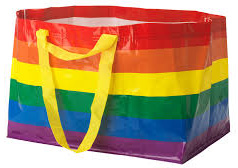
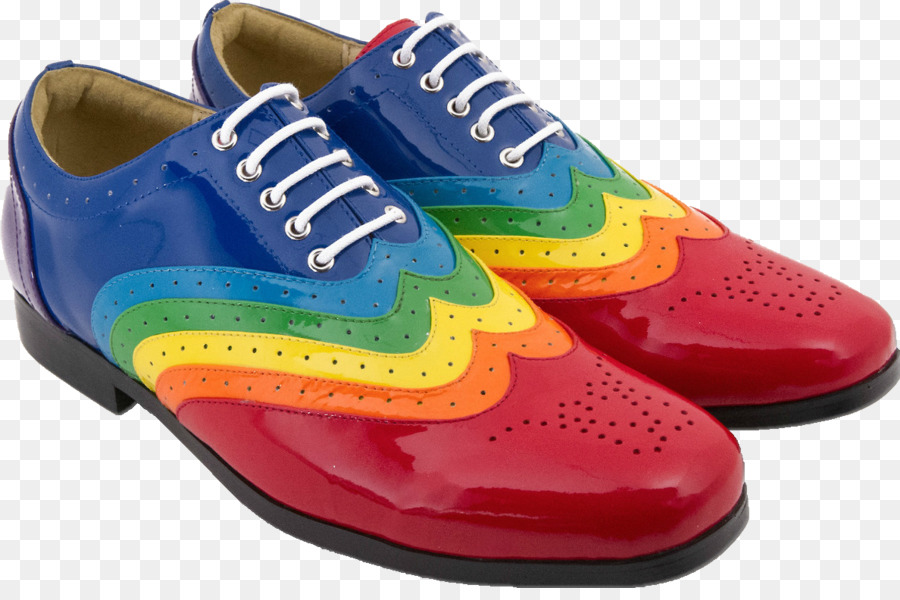 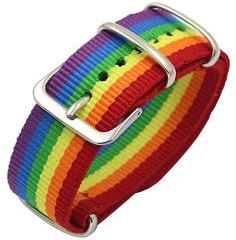
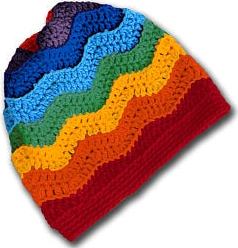 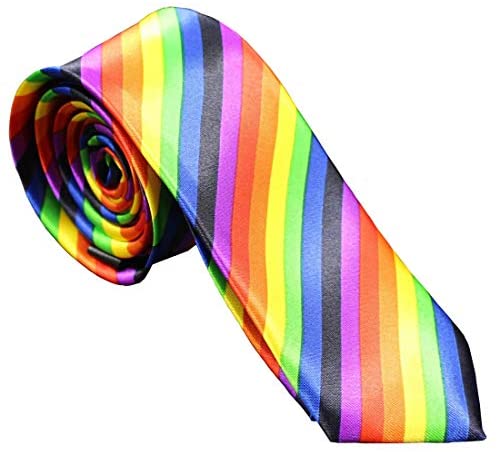
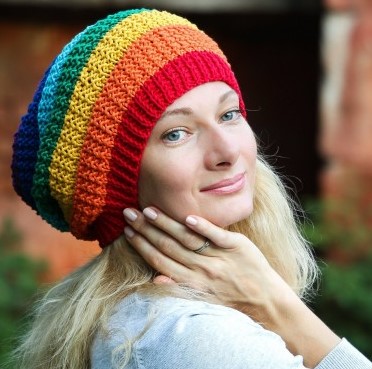
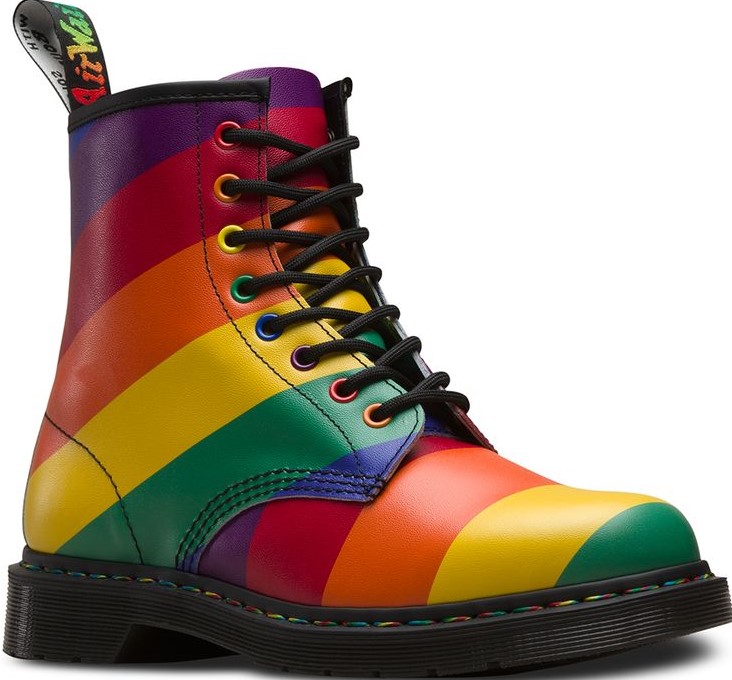
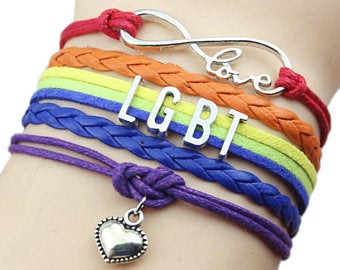
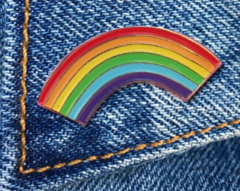
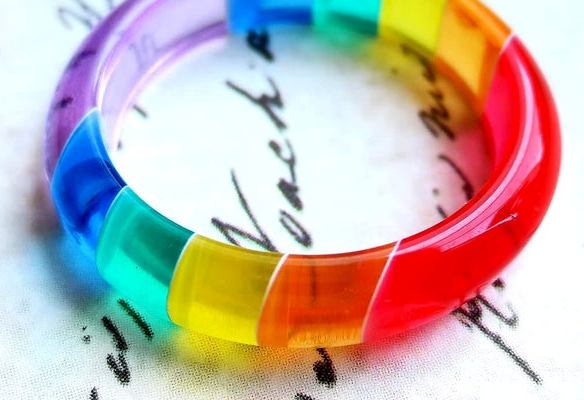
New LGBTQ
Fashion Designers
|
Rachel
Grossinger
Gogo Graham
Nicolette Mason
Adam Selman
Tyler Wallach
Leon Wu
Patrick Church
Marc
Jacobs
Brad
Goreski

|
Tom Ford
Arin Hayes
Becca McCharen
Andrew Morrison
Rio Uribe
Marco Marco
Telfar Clemens
Fran Dunaway
Naomi Gonzalez
Tom Daley
 |
Nik Kacy
Scott Studenberg
John Targon
Al Sandimirova
Jamie Kiera Ada
Rachel Berks
Pierre Davis
Kyle Brincefield
Chris Gelinas
 |
Hayley Kiyoko is a Style Icon
Rainbow Outfit
Queer Fashion Takes Center Stage at
DapperQ’s New York Fashion Week Extravaganza
Victoria's Secret Hires First Openly Trans Model
Queer Celebs We Look to For Style Inspiration
Fashion Consulting for Trans Women
Celebrity Men Wearing Skirts
Love Fruity
Ranker: Famous LGBTQ Fashion Models
Alyssa Edwards' Drag Makeup Guide
Info: Quenderqueer
Best, Most Iconic Met Gala Looks by LGBTQ
Celebs Over the Years
Qwear: LGBTQ Voices in
Fashion
TomboyX Launches Trans Pride Collection
The
Pride Store
Tom Ford: Vogue Interview
100 Years of Queer Fashion
Bunny Style
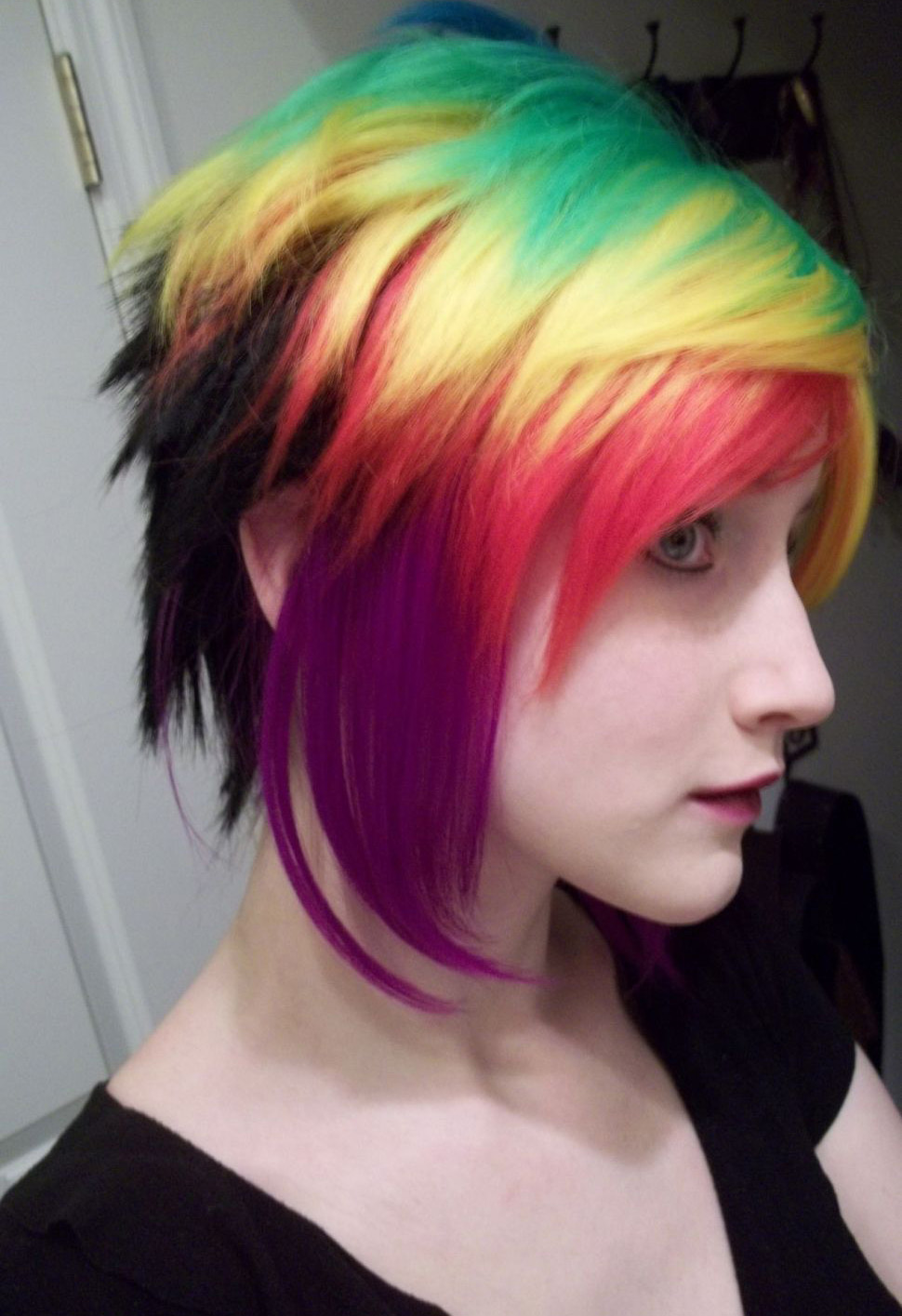

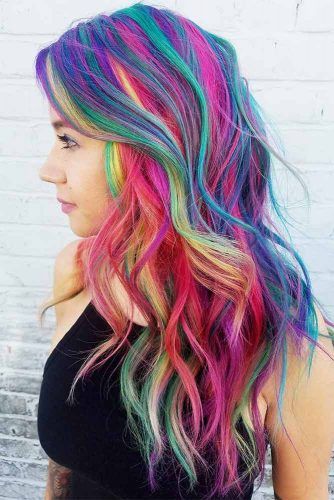
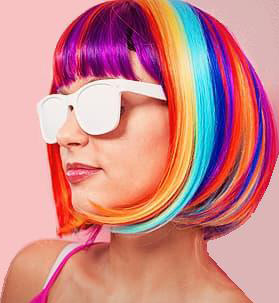
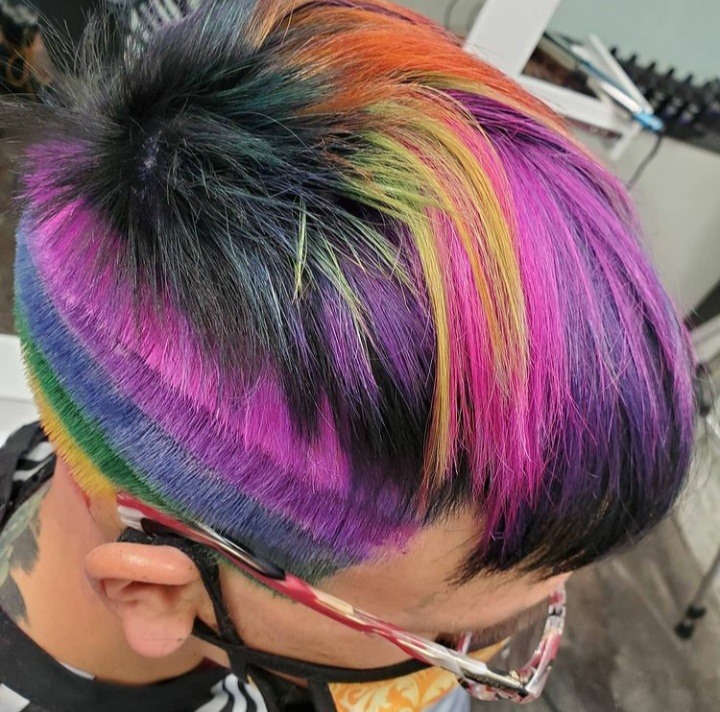
Ariel Nicholson Makes History
as First Transgender Model on Vogue Cover
Vogue’s September 2021 issue is making history. The US
magazine chose eight models for the cover of the most
anticipated issue of the year — including Ariel
Nicholson, the glossy’s first openly transgender cover
star.
The 20-year-old model posed alongside Anok Yai, Bella
Hadid, Precious Lee, Kaia Gerber, Yumi Nu, Lourdes
“Lola” Leon and Sherry Shi. Shot in Vogue’s World Trade
Center office, the diverse array of models were selected
to represent “Generation America” on the historic cover,
ahead of September’s America-themed Met Gala.
Shop HRC
Rainbow Scarf
The No-Longer Hidden History of
Lesbian Fashion Trends
Autostraddle: Queer Fashion Articles
Proud Me
Eleganza: Queerest Fashion Fits
Queer Celebs We Look to For Style Inspiration
Genderqueer Look: Dispelling Beauty Myths
Equality Florida Shop
100 Years of Queer Fashion
How to Shop for Clothes When You're
Gender-Nonconforming
Pride Stance
Esty: LGBTQ Enamel Pins
Skirts Aren't Just for Women
Emma
D’Arcy on Fashion and Non-Binary Identity: Clothes are
Armour for Me
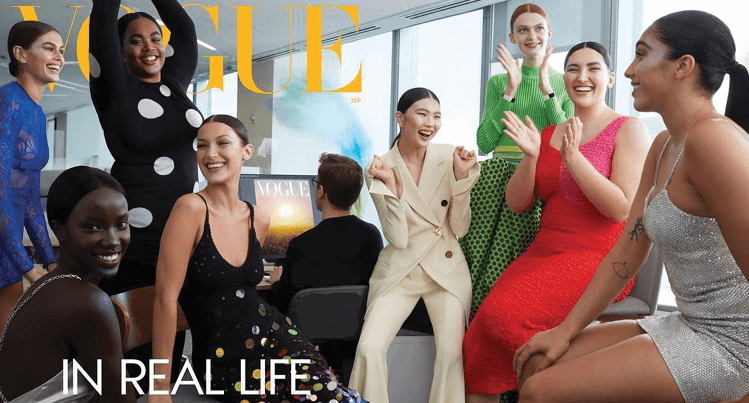

Ariel Nicholson cheers along with the other catwalkers
in the cover shot, wearing a bright green Christopher
John Rogers sweater and matching polka-dot skirt by the
same designer. And for her solo shot inside the mag,
Nicholson sports a white floor-length Rick Owens gown
covered in sequins, posing against one of Vogue’s
floor-to-ceiling windows with the Oculus visible below
and real Vogue staffers working around her.
“I’ve been put in this box, ‘trans model’,” Nicholson
told Vogue. “Which is what I am — but that’s not all
that I am.” She continues, “Obviously it’s a big deal
being the first trans woman on the cover of Vogue. But
it’s also hard to say exactly what kind of big deal it
is when the effects are so intangible.”
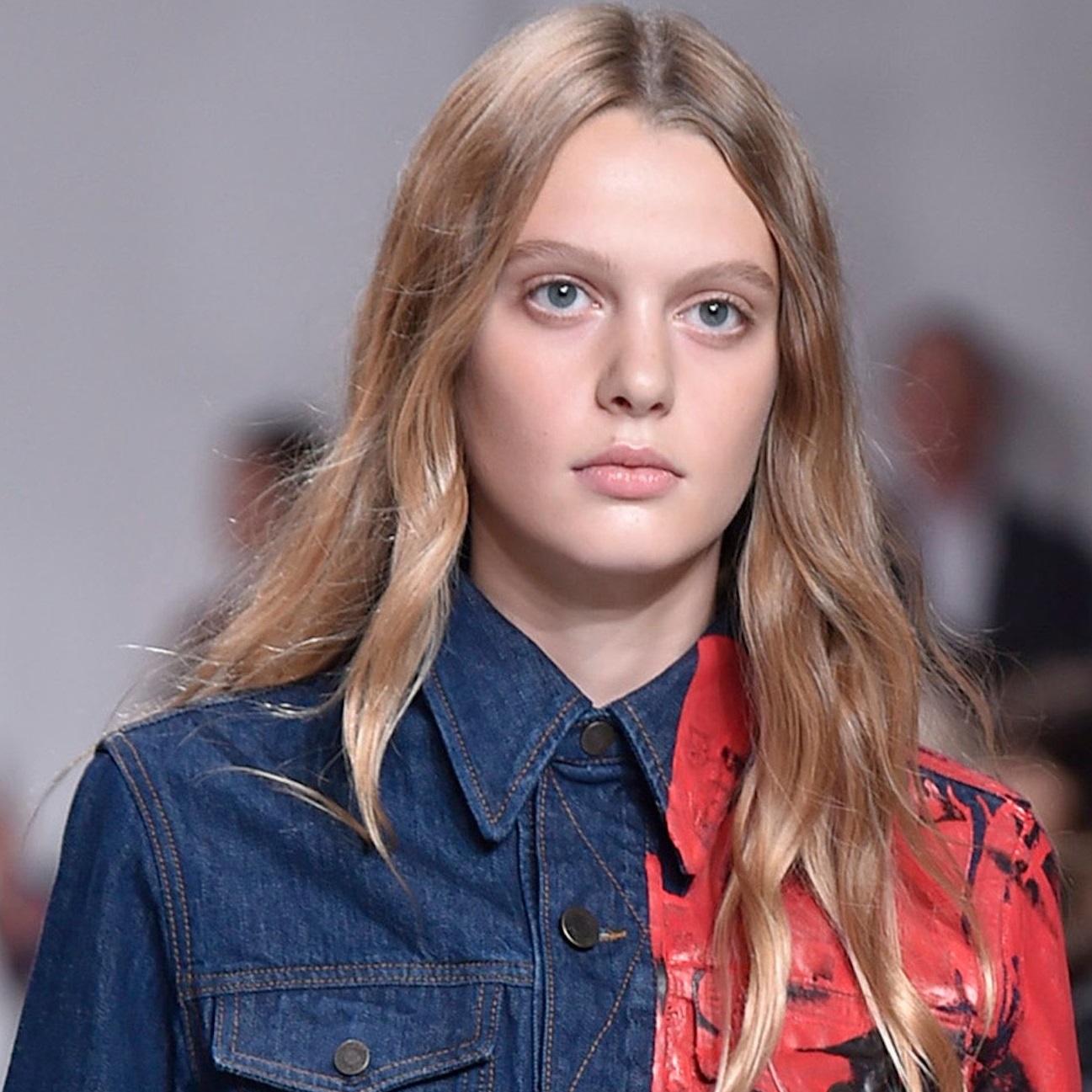
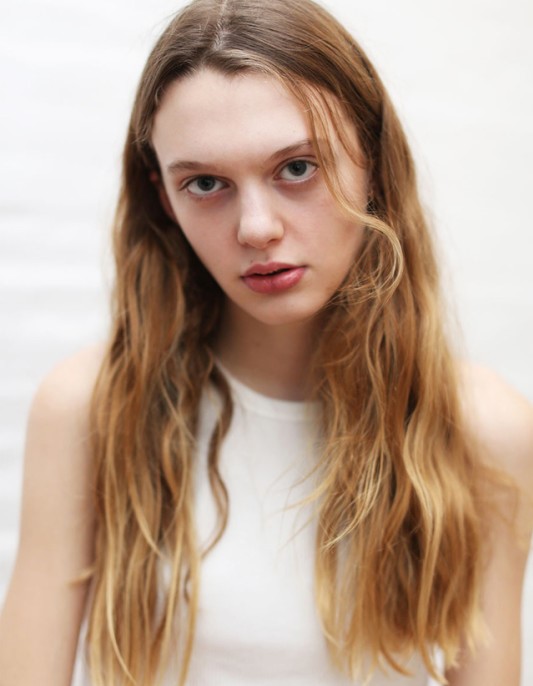
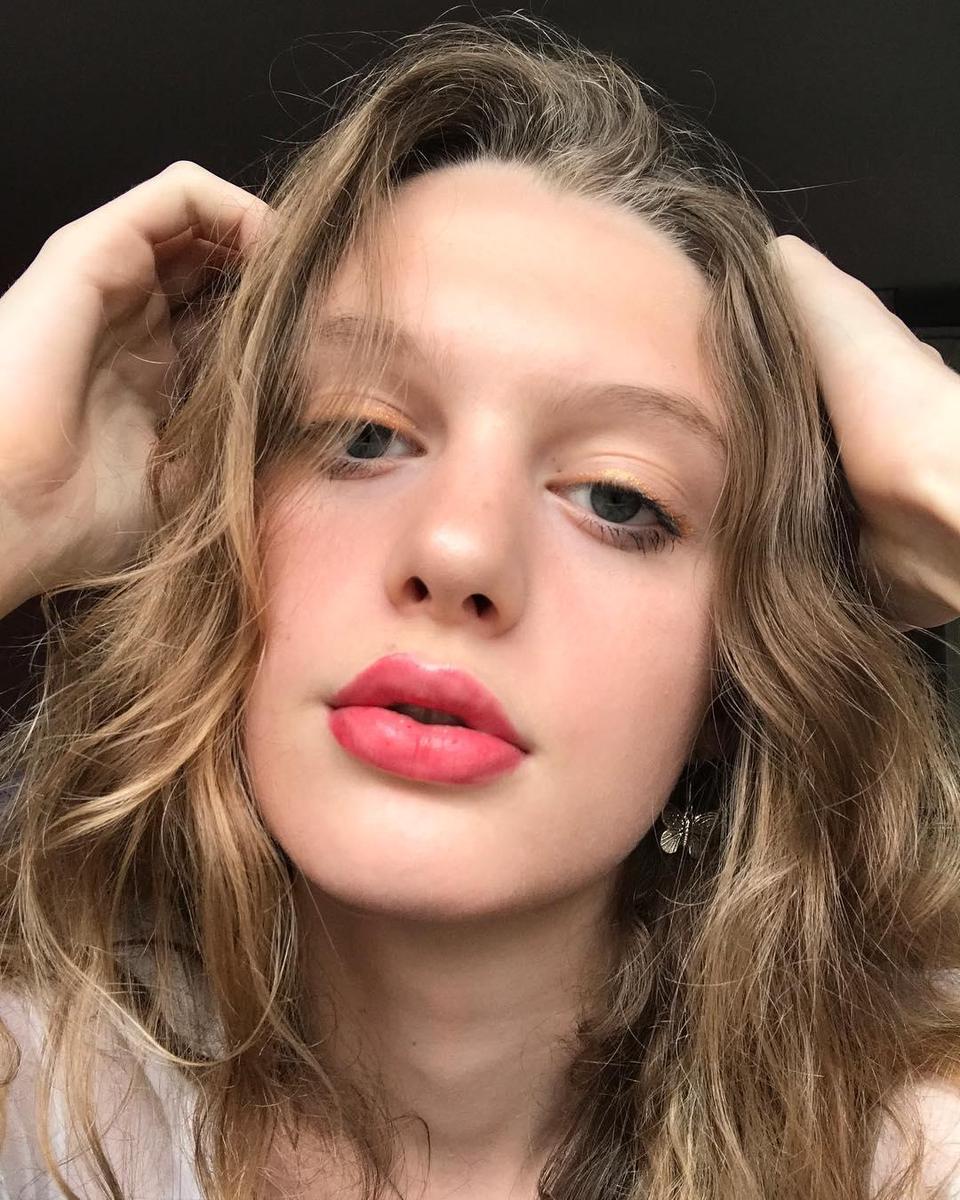
Nicholson follows in the footsteps of Valentina Sampaio
and Laverne Cox — the first trans models to cover Vogue
Paris and British Vogue, respectively. At 13 years old,
Nicholson starred in the PBS documentary “Growing Up
Trans,” and she signed to DNA Models while in high
school. Since then, she has posed for the covers
of Italian Vogue and Love and walked for Marc Jacobs,
Miu Miu and Calvin Klein — the latter after being
handpicked by then-creative director Raf Simons for the
honor, making Nicholson the first trans woman to walk
for the American fashion house.
[Source: Nya Étienne, Page Six, August 2021]
Pink News: Ariel Nicholson Makes History as First Trans
Model on Cover of Vogue
Out: Ariel Nicholson Is First Out Trans Woman On Cover
of Vogue
Daily News: Ariel Nicholson is Feeling Blessed as First
Transgender Model on Cover of Vogue
Page Six: Ariel Nicholson Makes History as First
Transgender Model on Vogue Cover
Insider: Transgender Models Who are Changing the Fashion
Industry
Harry
Styles Did Not Invent Queer Fashion
Harry Styles made history as the first non-woman to
appear on the cover of American Vogue, sparking a larger
discourse on the nature of androgyny, masculinity, and
gender fluidity in fashion. The popular opinion seems to
be that he’s somehow revolutionized or “invented”
gender-nonconforming fashion.
While I applaud him for defying gendered fashion norms,
he is not the first to do so. Queer Black people
(specifically trans-femmes) have been doing so for
decades, Harry Styles is simply the most recent white
man to do it — a.k.a. the most palatable. Centering
whiteness in gender-nonconforming fashion is ahistorical
and dismissive of the Black creatives who’ve spent
decades being marginalized and dismissed for resisting
gendered fashion norms in the same way that Harry Styles
is being praised for.
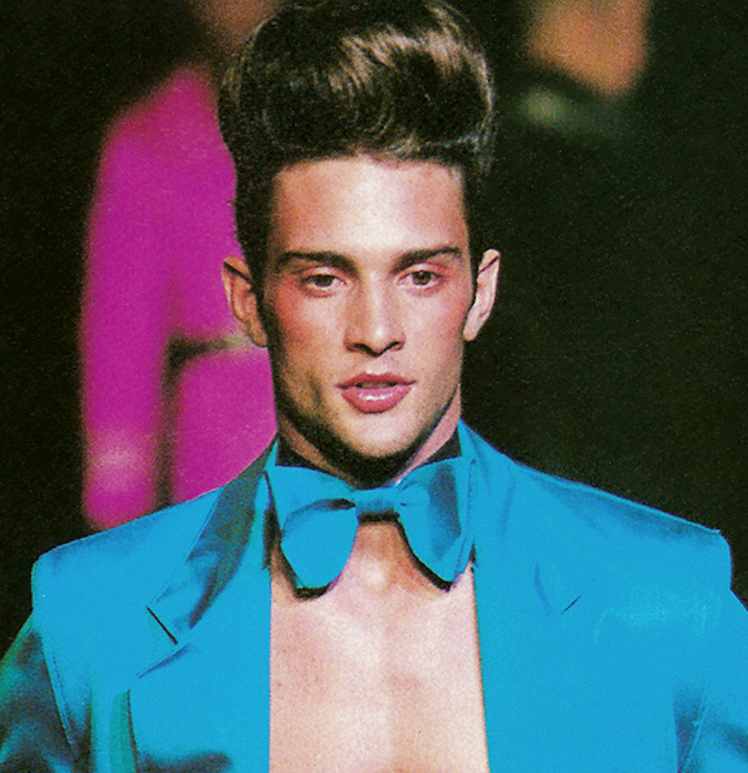
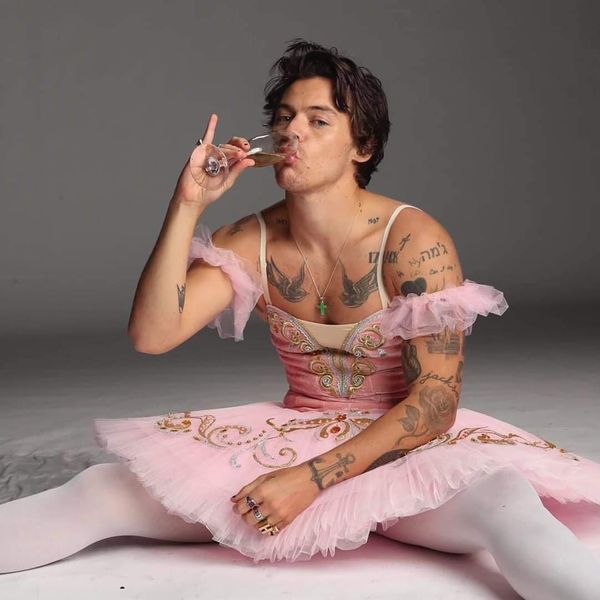
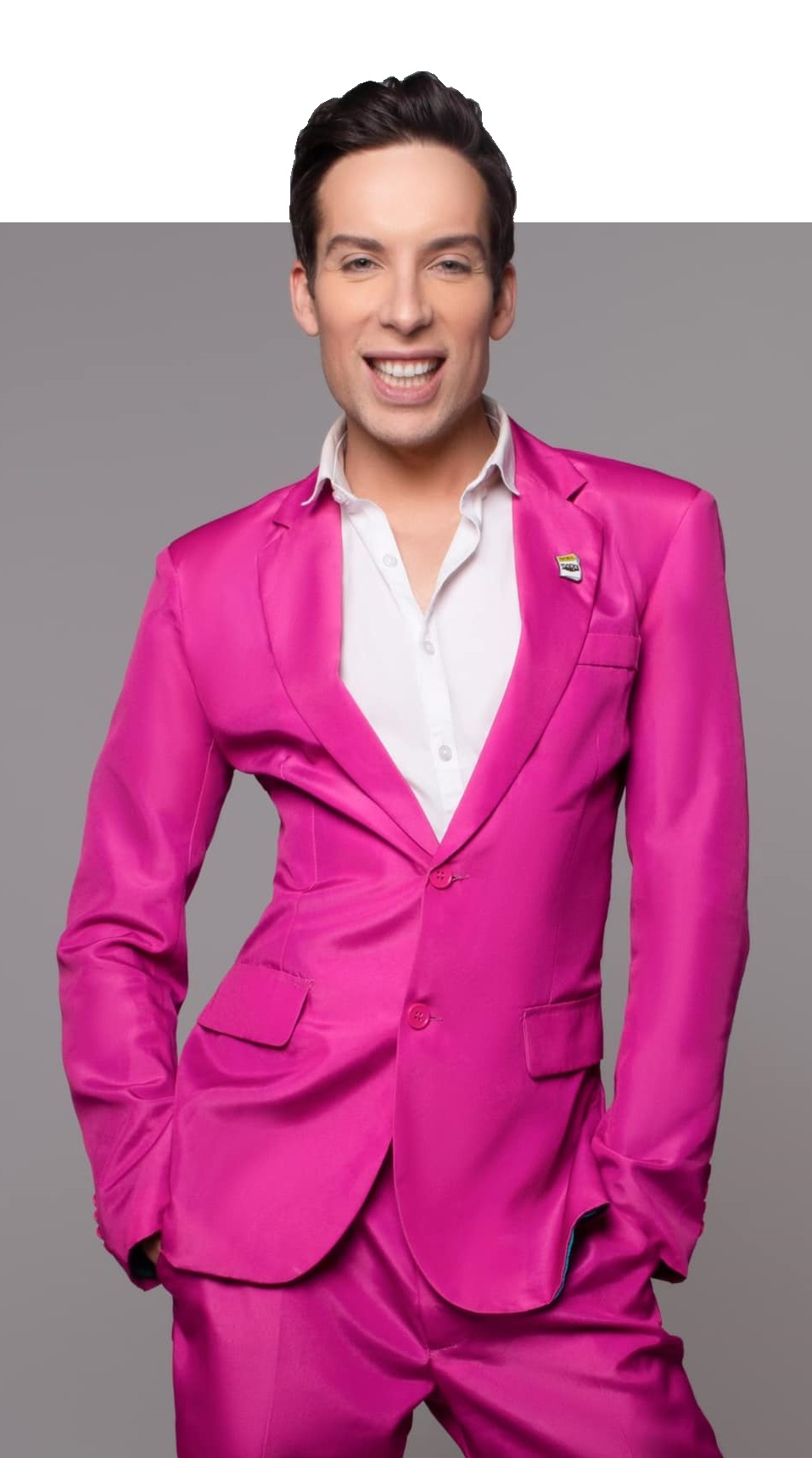
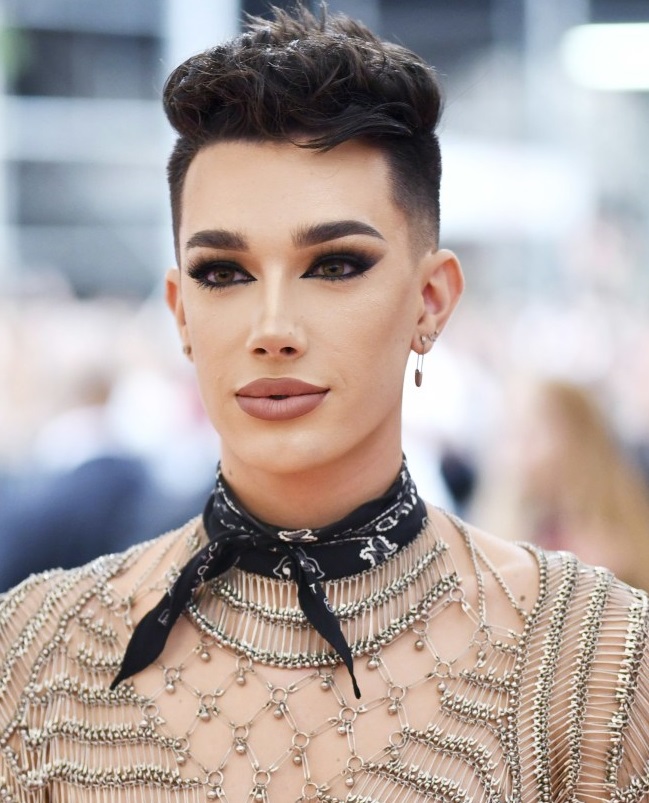
Rainbow Outfit
Discussion Panel: Queer
Fashion
Queer Celebs Who Prove Suits Aren't Just for Men
Underwear Fashion: Fran Dunaway and Naomi Gonzalez
New Face of Beauty: Embracing LGBTQ
Inclusivity
Gays Fashion
New Face of Beauty: LGBTQ Inclusivity in
Beauty School
List: LGBTQ Fashion Models
Tim Gunn: Future of Fashion is Non-Binary
Rainbow Trend
Skirts Aren't Just for Women
The No-Longer Hidden History of Lesbian Fashion Trends
Gay Pride Apparel
Billie Eilish Style Moments
Pride Stance
There is a long, storied history of Black queer
creatives pushing gendered boundaries in art, music, and
fashion, only to have their legacies co-opted and
popularized by white people. This leaves Black creatives
to suffer the disenfranchisement that comes with
queerness, without the mainstream recognition that their
white counterparts get from co-opting the styles that
come from Black queer culture. “Centering whiteness in
gender non-conforming fashion is ahistorical and
dismissive of the Black creatives who’ve spent decades
being marginalized and dismissed for resisting gendered
fashion norms in the same way that Harry Styles is being
praised for.”
This is not to say that Harry Styles has done anything
wrong — he’s brought unprecedented, mainstream attention
to androgynous fashion; but with that attention, we
should recognize the Black queer folk who originated and
continue to innovate contemporary gender non-conforming
fashion.
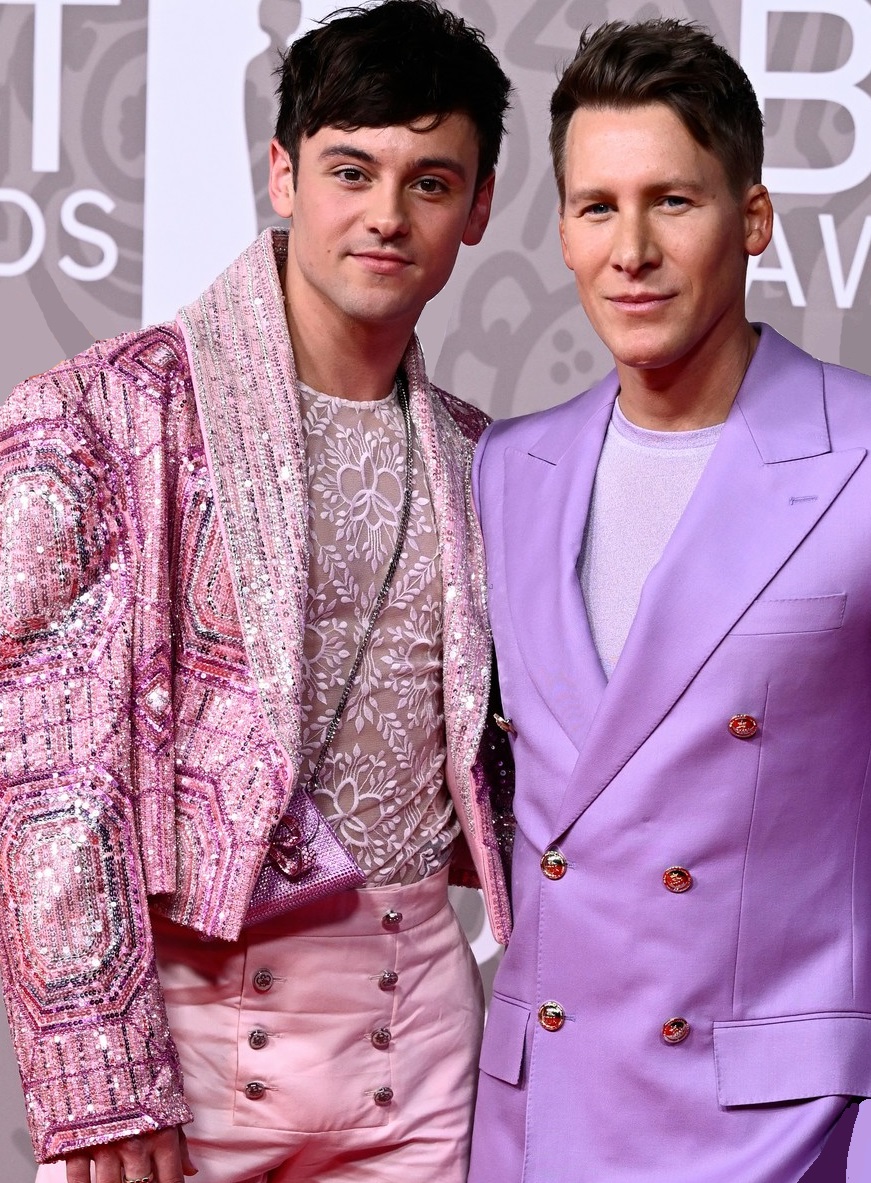

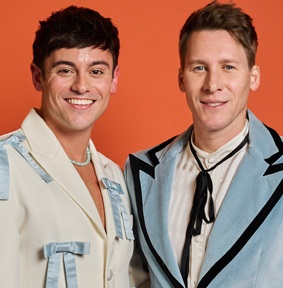
Rainbow Scarf
Watch: Gay Pride Apparel
Queer Owned Clothing Brands
Lesbian Models
List: LGBTQ Fashion Designers
Hayley Kiyoko is a Style Icon
Pride Supplies
How to Shop for Clothes When You're
Gender-Nonconforming
Androgynous Fashion
Pride Beyond the Binary: Embracing Fluidity in Gender
Expression in Fashion
Eleganza: Queerest Fashion Fits
Guissy Glam
Modern queer fashion (specifically in America and
Europe) was pioneered in ball culture as far back as the
late 1800s. Balls are spaces where Black and Latine
trans-femmes, nonbinary folk, and other queer people
design original pieces to walk, pose, and perform in —
one of the only spaces where they’ve been historically
guaranteed acceptance, safety, and community. Ball
culture is home to themed fashion runways, dance
competitions, lip syncs, and a variety of other
performances that bring queer communities together
through creative expression.
In the ‘80s and ‘90s, ball culture became especially
important to queer Black and Latine communities as they
were disproportionately impacted by the HIV/AIDS
epidemic, which further stigmatized queerness. During
this time, maybe because of this hardship that made
balls so necessary, ball culture as we know it today
took shape.
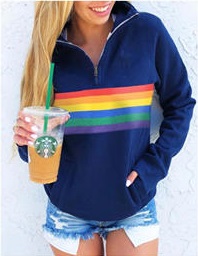
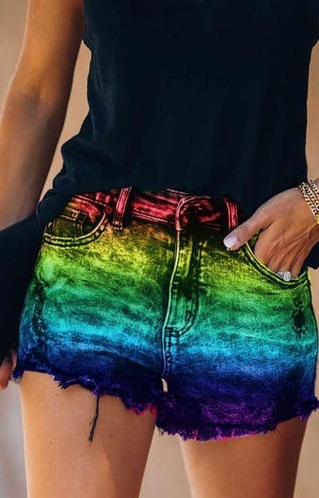
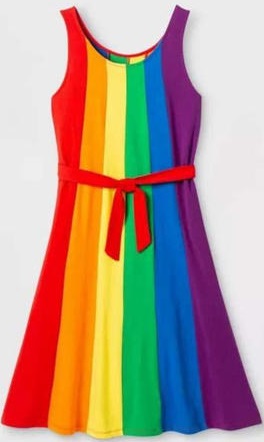
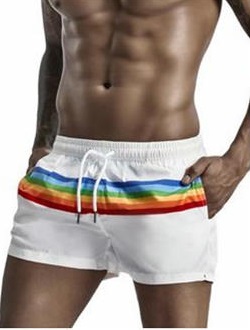

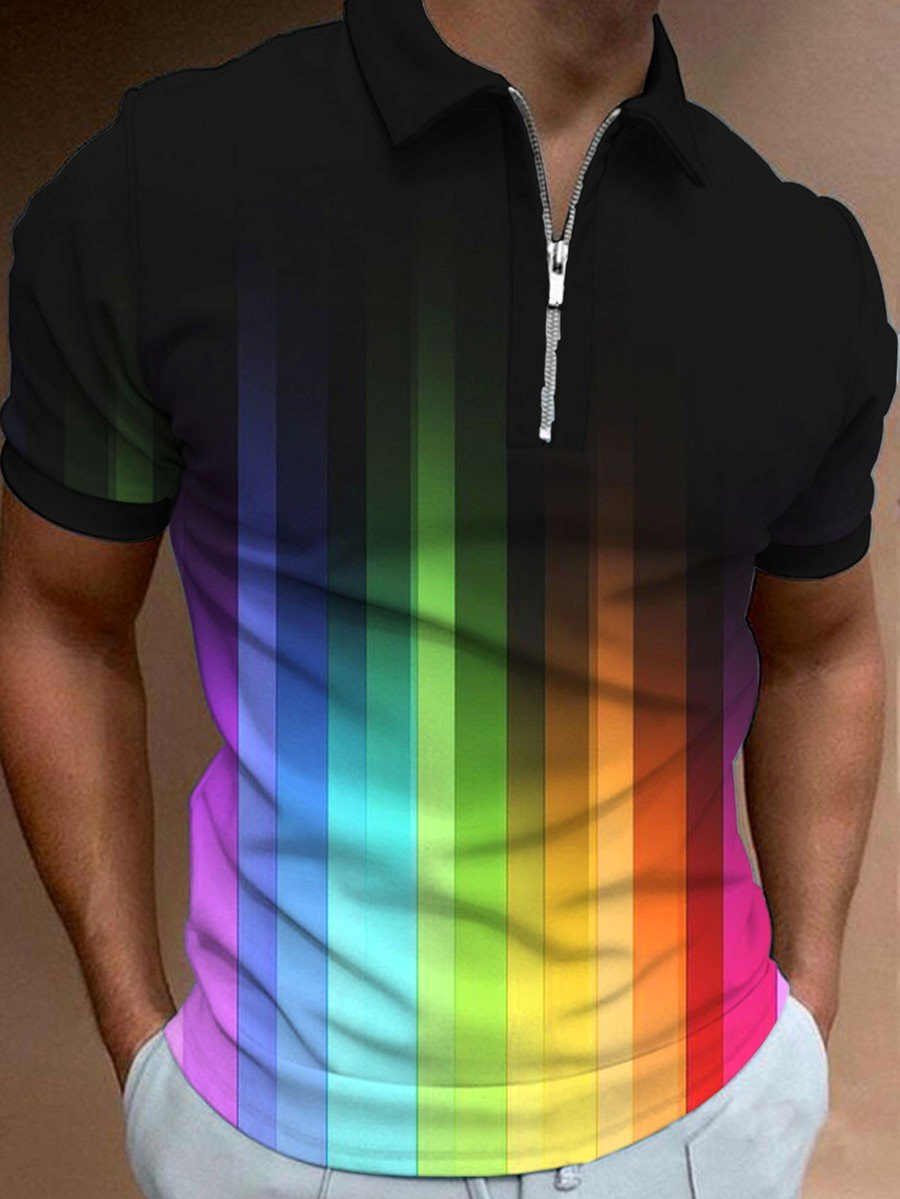 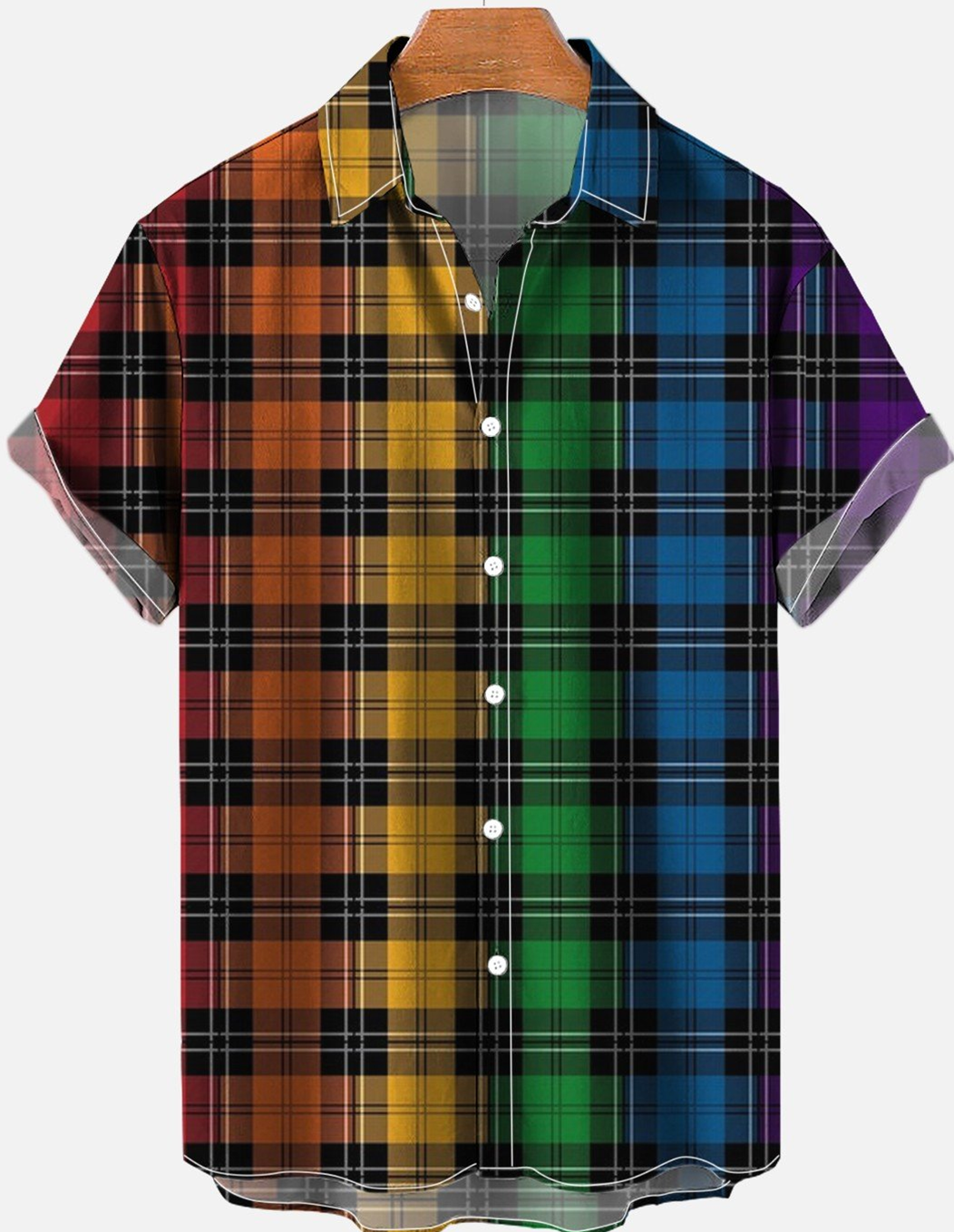  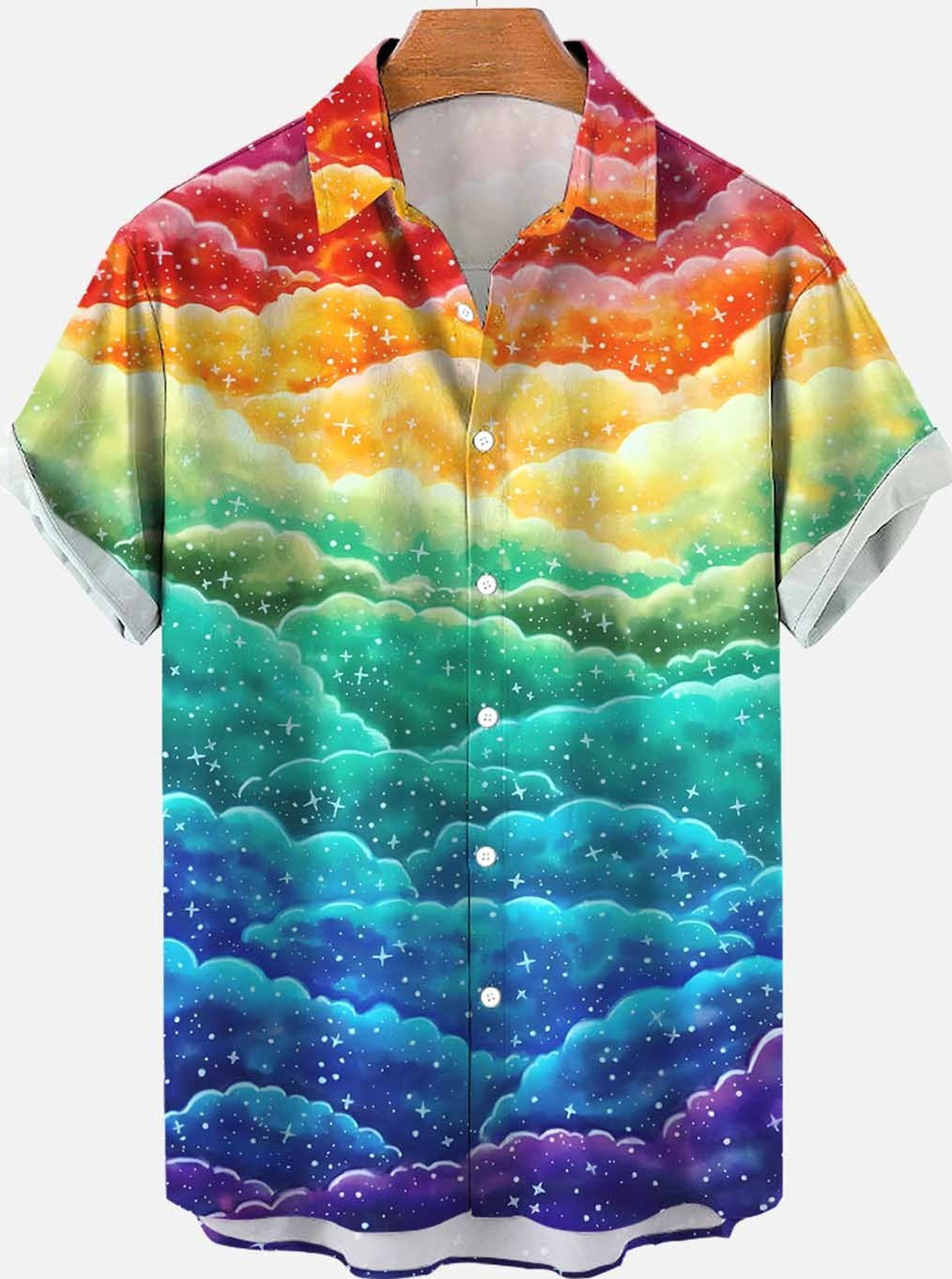 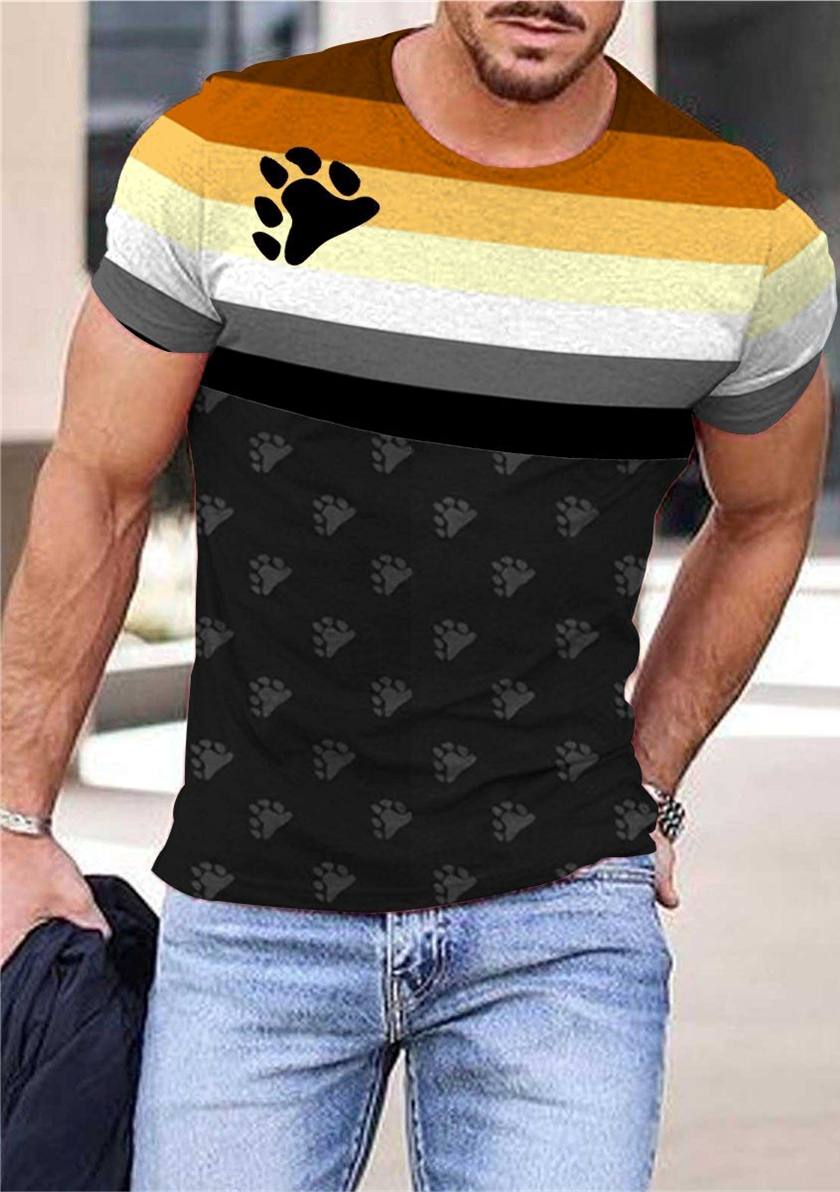
Shop HRC
Esty: LGBTQ Enamel Pins
I Support LGBTQ:
Rainbow Scarves and Merch
The Phluid
Project: Gender Free Brands
Info: Queer Flagging
Billie Eilish Style Moments
Sarah Paulson Outfits That Make Us Swoon
Equality Florida Shop
New Face of Beauty: LGBTQ Inclusivity in
Beauty School
Lidia Talavera:
High Heels for Men and Women
Queer Fashion: More Than Just a Trend
ZynnStore
Styling Hollywood: Gay Couple Balances Fashion and Love
Ballroom performers handcrafted extravagant, opulent
designs as a way of exploring Black & Latine aesthetics
imaginatively in a space that actually celebrated their
queerness — escaping from a heteronormative world that
stigmatized and criminalized them. Throughout its
history, Black ballroom culture influenced popular Black
performers through costuming and choreography including
Prince, Little Richard, Janet Jackson, and many others —
all of whom incorporated and celebrated the queer design
and performance styles that come directly from ball
culture. “Too often, when white celebrities wear
androgynous fashion, they’re turned into the faces of
gender-neutral fashion; whereas when Black people do the
same, they’re critiqued fo being ‘too much’ or ‘too
queer.'”
Despite this, the gender-neutral fashion that Black &
Latine people pioneered continues to be whitewashed in
an attempt to make queerness more palatable, marketable,
and mainstream. Too often, when white celebrities wear
androgynous fashion, they’re turned into the faces of
gender-neutral fashion; whereas when Black people do the
same, they’re critiqued for being “too much” or “too
queer.”
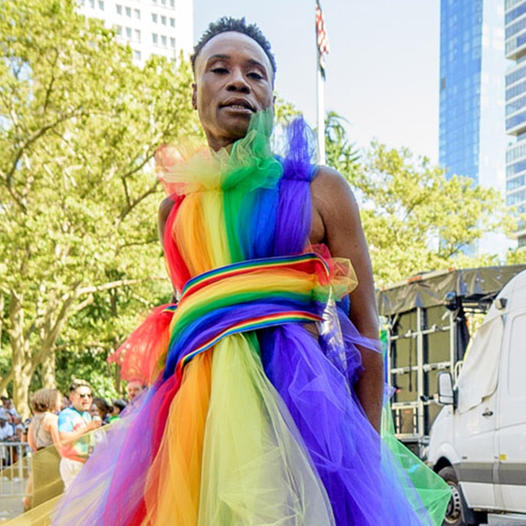
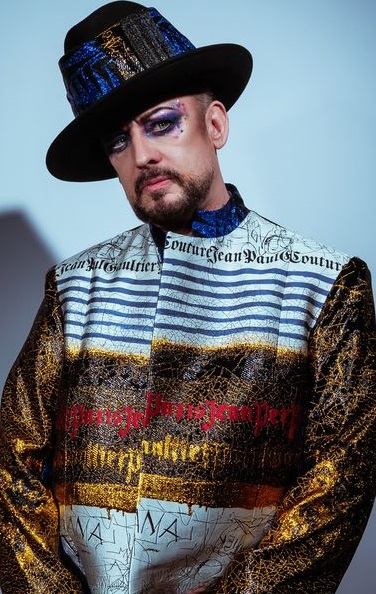
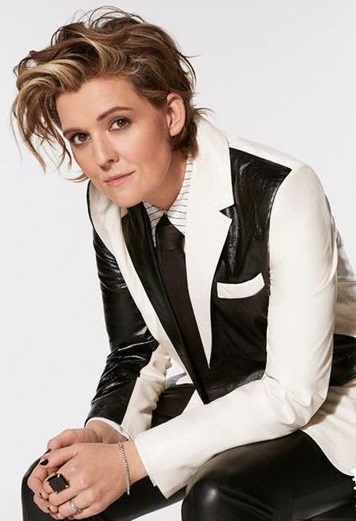
Again, this isn’t to say that Harry Styles has done
anything wrong or that he shouldn’t be celebrated, but
we have to demand equal visibility for his Black
contemporaries that are just as important to the fashion
world. Queer Black celebrities and designers like Lil
Nas X, Indya Moore, Telfar Clemens, Billy Porter,
Angelica Ross, and many others are all revolutionizing
and challenging the gender binary in fashion, and they
deserve the same mainstream recognition that white
celebrities like Styles are now getting. The fashion
world owes a creative debt to nonbinary, queer, and
trans-femme people of color who have always pushed
gendered boundaries — and they deserve editorials,
covers, and recognition for their hard-fought
innovation.
[Source: Raymond Matthews, November 2020]
Autostraddle: Queer Fashion Articles
Dutchy Video: Tomboy Lookbook
The No-Longer Hidden History of Lesbian Fashion Trends
How Knoxx Is Redefining Streetwear On The
Hype and With Her Dvmn Pigeon Line
Pride Beyond the Binary: Embracing Fluidity in Gender
Expression in Fashion
Best, Most Iconic Met Gala Looks by LGBTQ
Celebs Over the Years
Genderqueer Fashion Models
and Representations of Gender in Visual Cluture
Video: Limitless Queer Fashion Show
Queer Celebs We Look to For Style Inspiration
How to Shop for Clothes When You're
Gender-Nonconforming
Emma D’Arcy on Fashion and Non-Binary Identity: Clothes
are Armour for Me
Femme vs Andro: Lesbian Hair and Makeup
Love Fruity
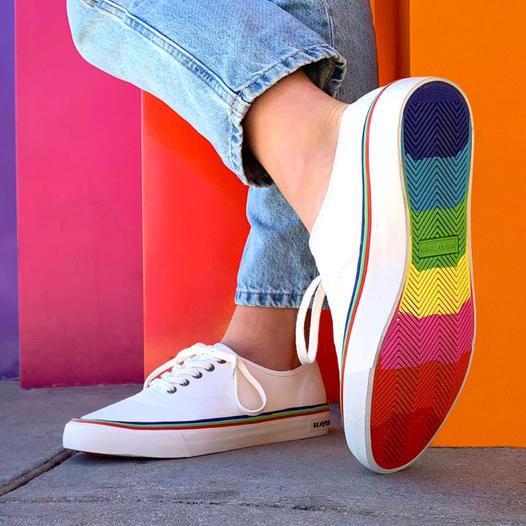
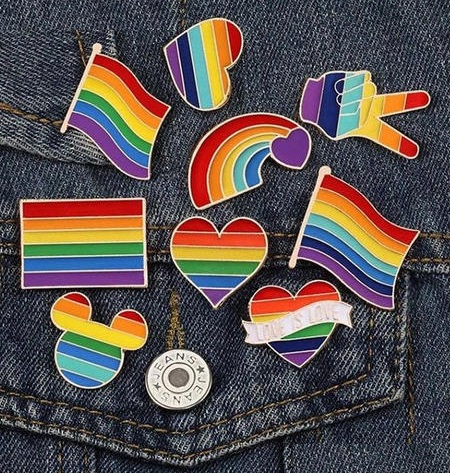
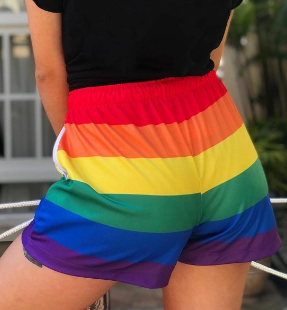
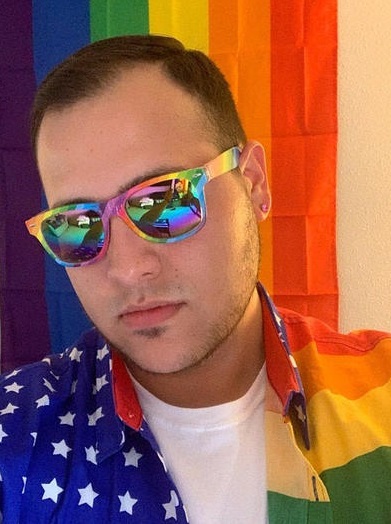
Exploring LGBTQ Fashion: A
Tapestry of Diversity and Expression
LGBTQ fashion, also known as queer fashion, is a dynamic
and evolving expression of identity within the lesbian,
gay, bisexual, transgender, and queer community. It goes
beyond mere clothing choices; it is a powerful means of
self-discovery, empowerment, and a celebration of
diversity. LGBTQ fashion is a reflection of the complex
and multifaceted nature of individual identities within
this community, challenging traditional norms and
fostering a sense of belonging.
Breaking
Binary Norms
One of the defining aspects of LGBTQ fashion is its
rejection of traditional gender norms. In the realm of
LGBTQ fashion, the rigid binary distinctions between
"masculine" and "feminine" are dismantled. Clothing
becomes a tool for self-expression rather than a
societal marker of gender identity. This break from
conventional norms allows individuals to explore and
embrace their authentic selves, creating a space where
everyone is free to express their identity beyond the
constraints of societal expectations.





Visibility
and Representation
LGBTQ fashion plays a crucial role in increasing
visibility and representation. Fashion designers,
influencers, and individuals within the LGBTQ community
have been actively working to create a more inclusive
fashion landscape. By featuring diverse models of
different gender identities, sexual orientations, races,
and body types, LGBTQ fashion becomes a powerful
platform for showcasing the richness of the community.
This visibility contributes to a broader understanding
and acceptance of LGBTQ identities in mainstream
society.
Startters
Watch: Gay Pride
Apparel
Lesbian Models
Sarah Paulson Outfits That Make Us Swoon
Non-Judgy Gender Neutral
Fashion Brands
Rainbow Trend
New Gender Fluid Trends in Fashion
Info: Queer Flagging
Pride Stance
Meet the Rainbow Lady
Dutchy Video: Lesbian Fashion Tips
Gender Fluid Fashion at the Academy Awards
Esty: LGBTQ Enamel Pins
Bunny Style
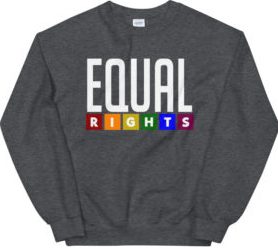  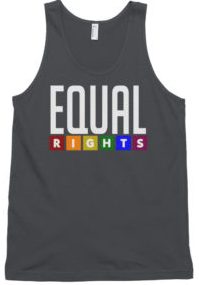 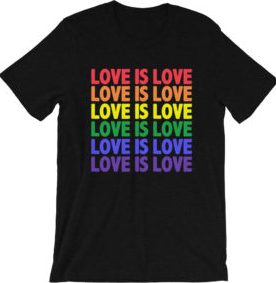 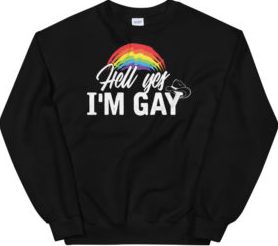
Personal
Empowerment
For many within the LGBTQ community, fashion is a form
of personal empowerment. The act of choosing what to
wear becomes a statement of self-affirmation and pride.
It is a way to assert one's identity in a world that
often imposes limitations and expectations. LGBTQ
individuals find strength in expressing themselves
authentically through clothing, using fashion as a means
of reclaiming agency over their bodies and identities.
Subcultures
and Trends
LGBTQ fashion is diverse, encompassing various
subcultures and trends that have emerged within the
community. From the flamboyant styles associated with
drag culture to the androgynous aesthetics embraced by
many, there is no singular LGBTQ fashion. Instead, it is
a tapestry of styles and influences, constantly evolving
as new trends emerge and individuals continue to push
boundaries.
So.... LGBTQ fashion is a vibrant and evolving
form of self-expression that transcends traditional
boundaries. It serves as a powerful tool for breaking
down societal norms, increasing visibility, fostering
representation, and empowering individuals within the
LGBTQ community. As society continues to progress
towards greater acceptance and understanding, LGBTQ
fashion stands as a testament to the beauty found in
embracing one's authentic self and celebrating the rich
diversity that makes up the fabric of the LGBTQ
community.
Loeuir
Rainbow Scarf
Take a Deep Dive into Tom Daley’s Wildest Fashion Fits
I Support LGBTQ: Handmade Rainbow Scarf
Pride Supplies
The No-Longer Hidden History of Lesbian Fashion Trends
Ariel Nicholson Makes History as First Trans Model on
Cover of Vogue
Queering Fashion
Shop HRC
Esty: LGBTQ Enamel Pins
H&M Fashion Haul: Crossdress MTF Transformation
ZynnStore
How to Shop for Clothes When You're
Gender-Nonconforming
Autostraddle: Queer Fashion Articles
History of Fashion's
Response to the AIDS Epidemic
Proud Me
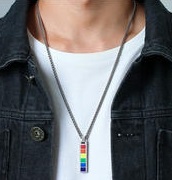
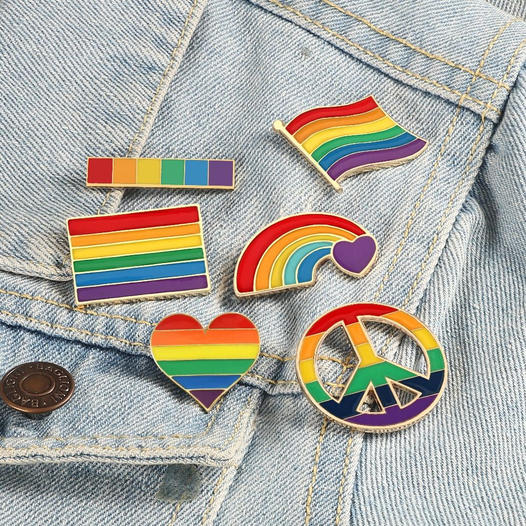
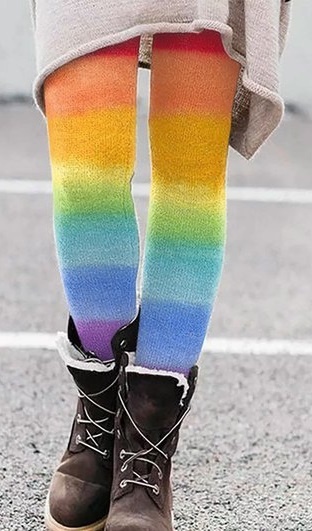
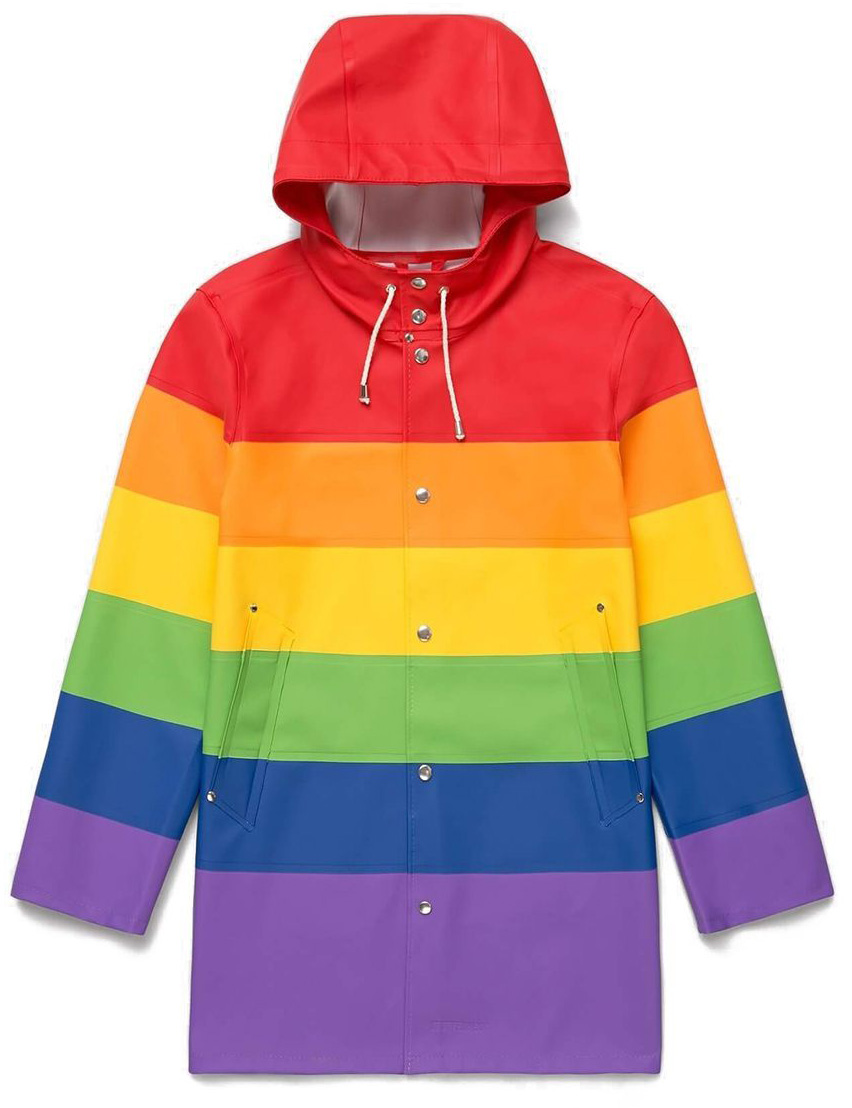
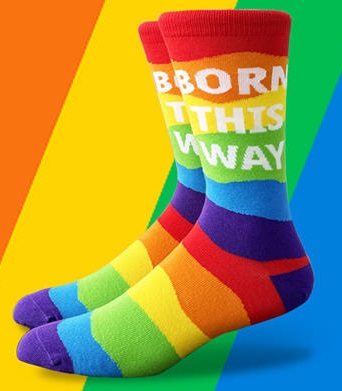
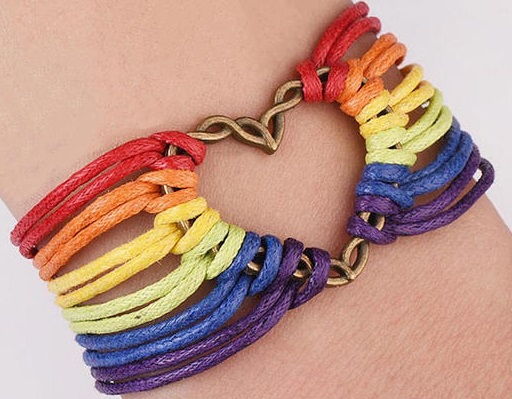
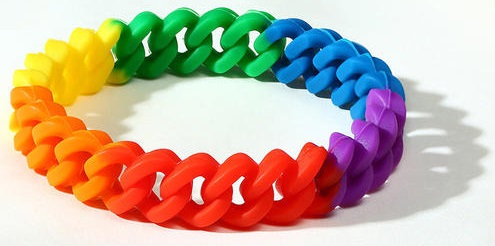 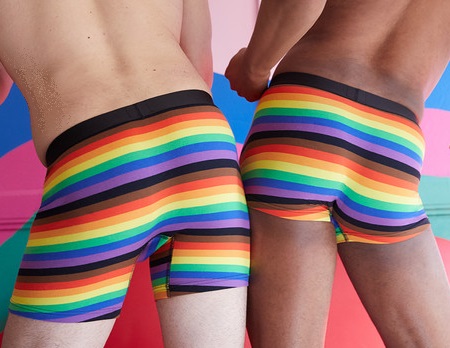
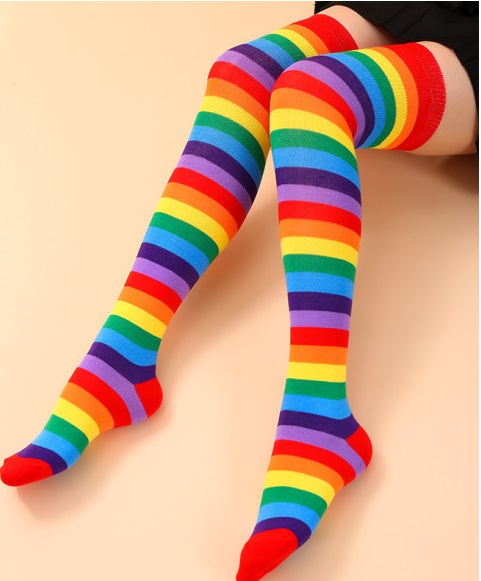
LGBTQ Clothing and Merchandise
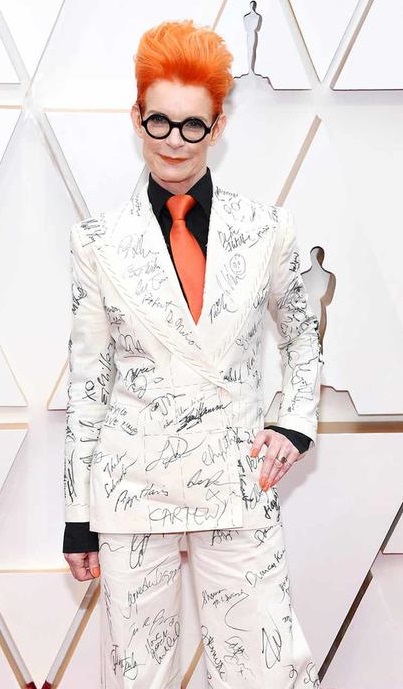
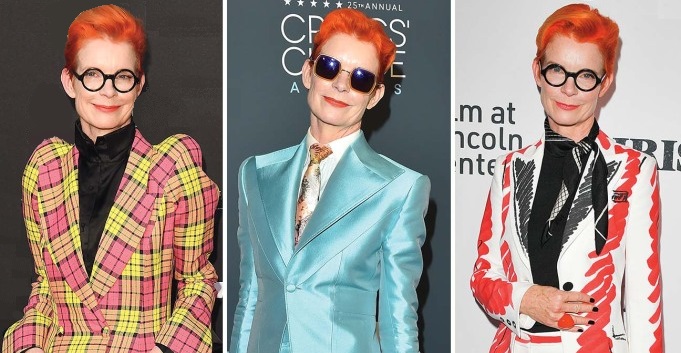
Sandy Powell:
Costume Designer
Sandy
Powell, is a British costume designer who has been
nominated for an Academy Award for a total of five times
so far and is the winner of three of them. For her
appearances at the 2020 Oscars, Sandy Powell showed up
in a white suit and collected over 100 signatures,
turning the suit into a work of art. After the
signatures were collected and Oscar night had ended, the
suit was put up for auction with the proceeds going to a
good cause. Money earned for the suit was given to the
Art Fund Initiative. The goal of the fundraiser was to
raise £3.5 million. The suit itself sold for £16,000,
which is certainly a lot.
She is an
extremely talented designer. This can be seen in her
extensive works in Caravaggio in 1986, The Last of
England in 1988, Edward II in 1991, Orlando in 1992, The
Crying Game in 1992, Wittgenstein in 1993, Being Human
in 1994, and Interview with the Vampire in 1994.
She also was the Executive Producer (and costume
designer) for Wonderstruck in 2017.
Award-Winning Costume Designer Sandy Powell
Costume Designer Sandy Powell's Red Carpet Style:
Sustainable Chic with Ode to Bowie
Biographical and Career Notes: Sandy Powell
Costume Designer Sandy Powell Gets Stars to Sign Her
Oscars Suit for Charity
|
Rob
Roy (1995)
Michael Collins (1996)
The Butcher Boy (1997)
The Wings of the Dove (1997)
Velvet Goldmine (1998)
Hilary and Jackie (1998)
Shakespeare in Love (1998)
Felicia’s Journey (1999)
Miss Julie (1999)
The End of the Affair (1999)
 |
Far
from Heaven (2002)
Gangs of New York (2002)
Sylvia (2003)
The Aviator (2004)
Mrs. Henderson Presents (2005)
The
Departed (2006)
The
Other Boleyn Girl (2008)
The
Young Victoria (2009)
Shutter Island (2010)
 |
The
Tempest (2010)
Hugo (2011)
Suspension of Disbelief (2012)
The Wolf of Wall Street (2013)
Cinderella (2015)
Carol (2015)
How to Talk to Girls at Parties (2017)
Wonderstruck (2017)
The Favourite (2018)
Mary Poppins Returns (2018)
 |
In 2009,
she won three Academy Awards, two for Best Costume
design and the other for Excellence in Period Film, for
her work in The Young Victoria. In 2004, she won another
Academy Award for Best Costume design for her work in
The Aviator. In 1998, she won an Academy Award for Best
Costume Design for her work in Shakespeare In Love.
Still, in 1998, she won a British Academy Film Award for
Best Costume following her work on The Velvet Goldmine.


Shop HRC
Tom Ford: Vogue Interview
Queer Fashion: Not a Trend but a Social Movement
Gay Wardrobe Makeover
Billie Eilish Style Moments
Fashion Consultant for Trans Women
Video Tutorial: Manila Luzon's Drag Transformation
Queer Fashion: More Than Just Clothes
Rainbow Trend
Bisexual Makeup Tutorial
Gay Pride Apparel
Startters
Non-Binary
Haircuts for a Gender Neutral Look
A good haircut can make you feel at home in your own
skin and help you discover your own personal brand of
self-expression. A good haircut can also help affirm
your identity. As society progresses and opens up to the
fact that not all people fit into one of two boxes, the
lines between masculinity and femininity have blurred in
fashion, beauty, hair, and in life.
To the many, androgynous haircuts are controversial.
But, gone are those days when fashion was separate for
men and women. The stereotypes are fading and styles are
merging. Today, you can play with hair and transition
between genders effortlessly.
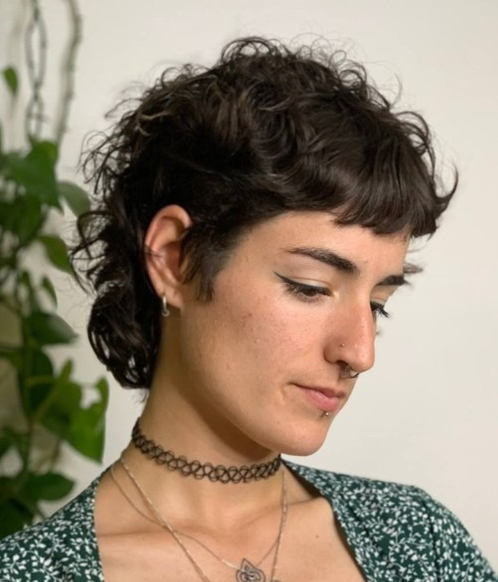

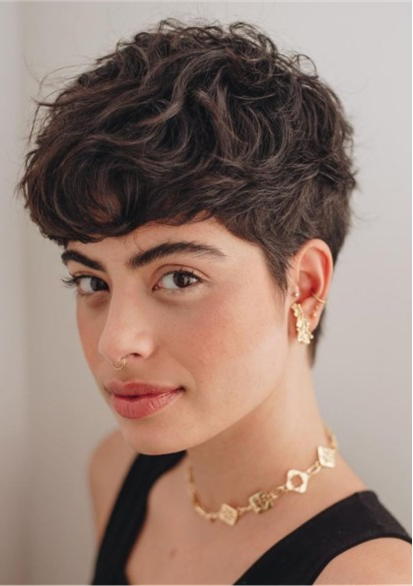

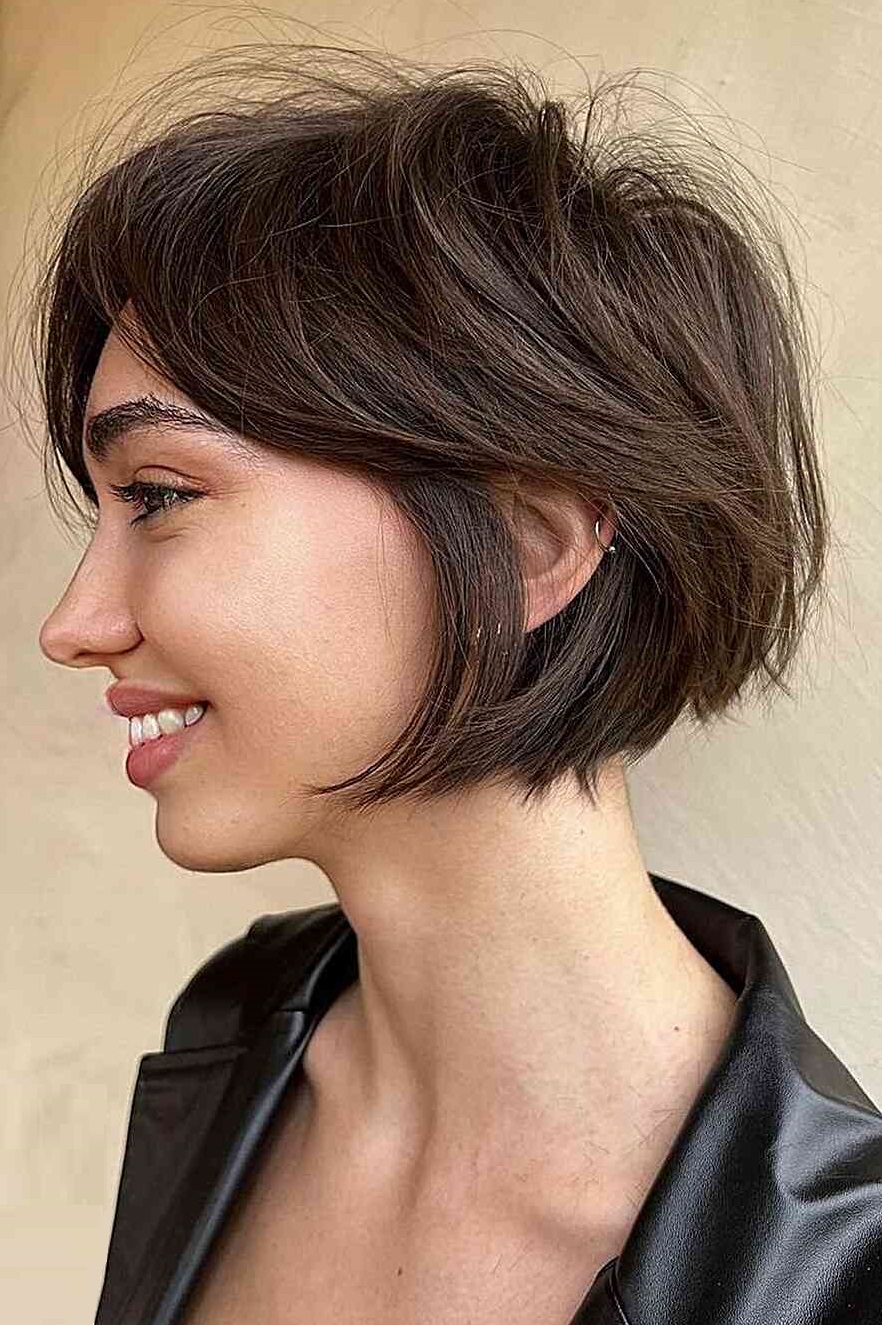
Stylish Non Binary Haircuts for a Gender Neutral Look
Non-Binary Haircuts to Help You Embrace Your Gender
Identity
Stylish Androgynous Haircuts For All Hair Types And Hair
Moods
An androgynous haircut can be worn by women or men. They
can be a gender-neutral approach to one’s appearance and
style preferences. Such haircuts are popular among those
who are gender-fluidic and wish to switch between their
male and female sides. Androgynous haircuts are a
liberating concept and have resonated well mainly with
the LGBTQ community, FTM fans, celebrities, and large
support groups.
Bold, attention-grabbing, and modern are the three words
that best characterize non-binary hair styles. Buzz
cuts, bobs, pixies, Mohawks, faded pompadours and
undercuts often feature in androgynous haircuts. Most
androgynous short hair styles are known to bring a lot
of character to a wearer. Not only do they open up the
face but also give a light, contemporary look.
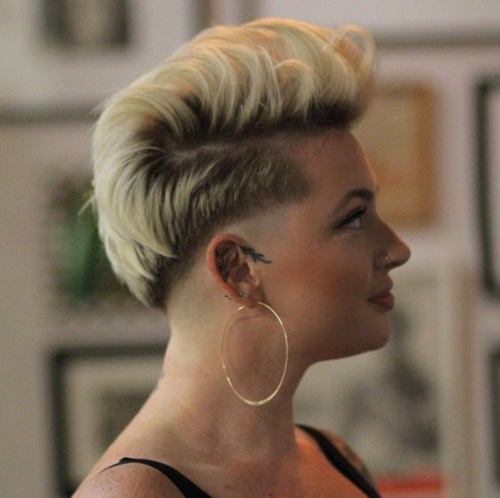 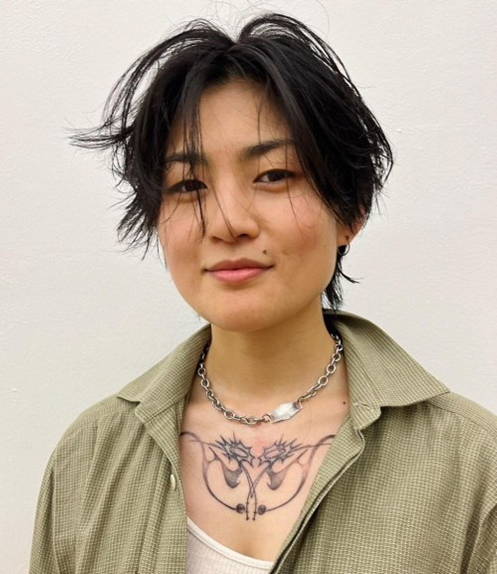
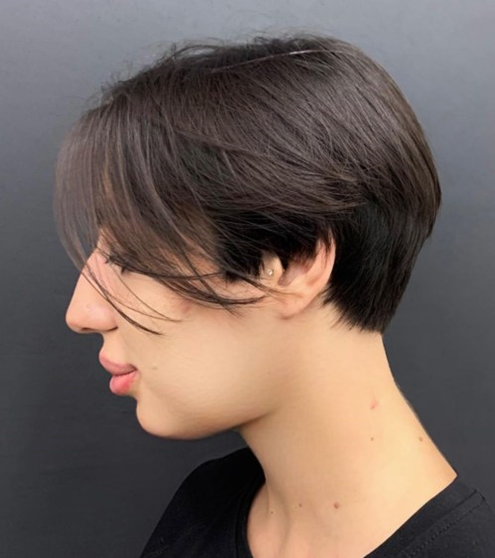
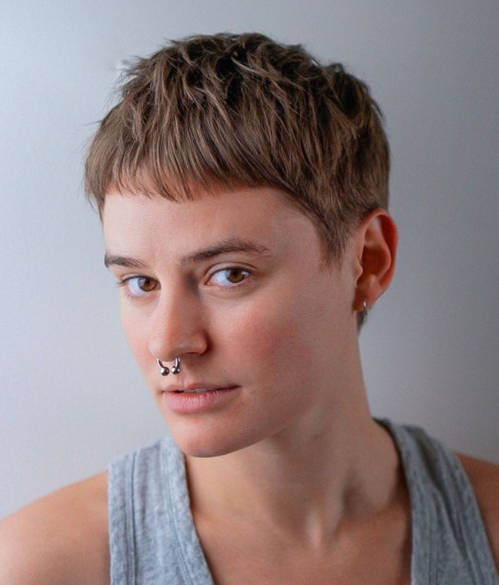
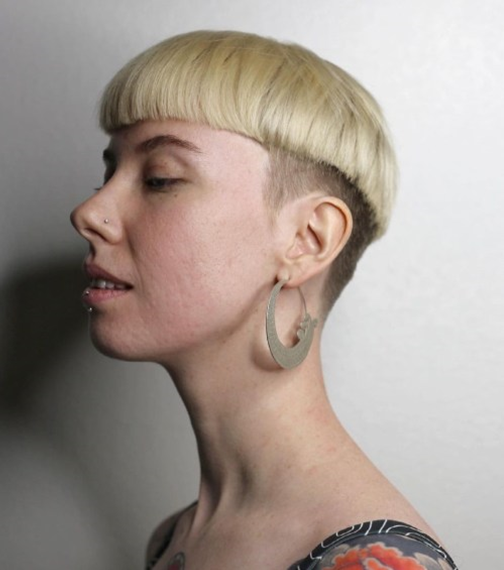
There is
also a new look called a "bixie." The bixie
haircut is a combination of a pixie and bob cut. This
trendy cut offers the fullness of a short pixie and the
versatility of a bob. The cut is customizable, making it
suitable for women of all ages.
Stylish Non Binary Haircuts for a Gender Neutral Look
Non-Binary Haircuts to Help You Embrace Your Gender
Identity
Stylish Androgynous Haircuts For All Hair Types And Hair
Moods
Gender
Neutral Fashion Brands
There are a growing number of indie retailers offering a
wide range of gender-neutral clothing. So where you can
shop judgement-free, ethically and responsibly when it
comes to gender-neutral clothing and are a good place to
shop for androgynous clothes which fit female and male
bodies. Among the more popular brands are Tomboy Toes,
Agender, Skirtcraft, Dapper Boi, Flannel Foxes, and
Gender Free World.

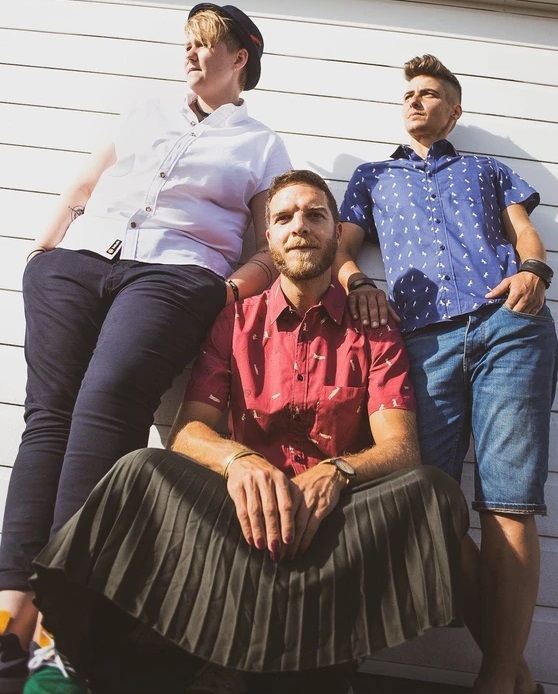
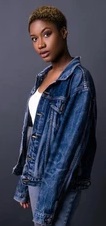
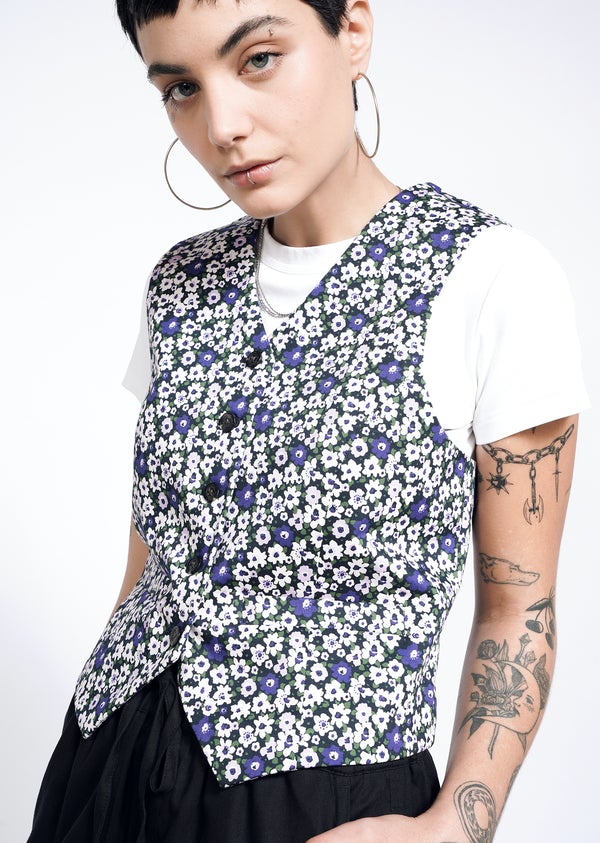
Rainbow Outfit
I Support LGBTQ: Handmade Rainbow Scarf
Non-Judgy Gender Neutral
Fashion Brands
Queer Celebs We Look to For Style Inspiration
The Phluid
Project: Gender Free Brands
How to Shop for Clothes When You're
Gender-Nonconforming
New Gender Fluid Trends in Fashion
Tom Ford: LA Times Interview
Sarah Paulson Outfits That Make Us Swoon
Ashley Biden Wears Tuxedo
on Inauguration Night
How to Shop for Clothes When You're
Gender-Nonconforming
Hayley Kiyoko is a Style Icon
Pride Stance
In the last few years designers like Gucci, Guess, and Zara
announced their own gender-neutral clothing ranges.
But it isn’t just a mere fashion statement. Gender-free
clothing works in harmony with our own individual
lifestyles.
Just because a woman is buying clothing in the men’s
section, it doesn’t always mean she’s buying for her
male partner or relative. You’d be surprised at how many
women shop in that section for themselves simply because
they like the styles, patterns or both. But the fit
isn’t designed for those of us with hips or bigger
busts.
How many times have you worn a ‘mens’ shirt, only to
have the chest almost burst at the buttons because your
bust was too big? How many times has the shirt been the
perfect fit for your bust, only to not fasten at the
bottom because your hips are apparently too wide?




What is Queer Style?
Lesbian Clothing Styles
Dutchy Video: How to Dress Gay
Bunny Style
Pride Beyond the Binary: Embracing Fluidity in Gender
Expression in Fashion
Fashion Remains a Leader in LGBTQ Inclusion
HRC Fashion: Equality
Merchandise
Ari Fritz: Growing Up Queer, Redefining Beauty
Genderqueer Fashion
The No-Longer Hidden History of Lesbian Fashion Trends
Top Queer Fashion Moments
Transgender Clothing Do's
and Don'ts
New Face of Beauty: LGBTQ Inclusivity in
Beauty School
The Pride Store
Gender-free clothing isn’t a disposable trend like
skinny jeans or Ugg boots. It’s an answer for people who
don’t want to wear overly feminine patterns and cuts,
because they just don’t express the wearer’s view of
themselves. It’s more of a question of ‘fit’ rather than
‘fashion.’ The most important aspect of our clothes is
that they fit men and women from all backgrounds. Call
it ‘inclusive clothing,’ if you like, gender-free
clothes are a way for us to express ourselves without
fear of not fitting in, physically and mentally.
Emma Watson, the incredible actress and UN Women global
ambassador, launched the HeForShe campaign and recently
called for gender equality in the fashion industry. She
spoke with world-class designers, including Stella
McCartney and Bella Freud, on how they can help. Ms
Watson commented, “I’ve seen some very positives steps
towards equality, but I’d really love to see a more
diverse representation of women and men, in any way that
makes them feel empowered.”
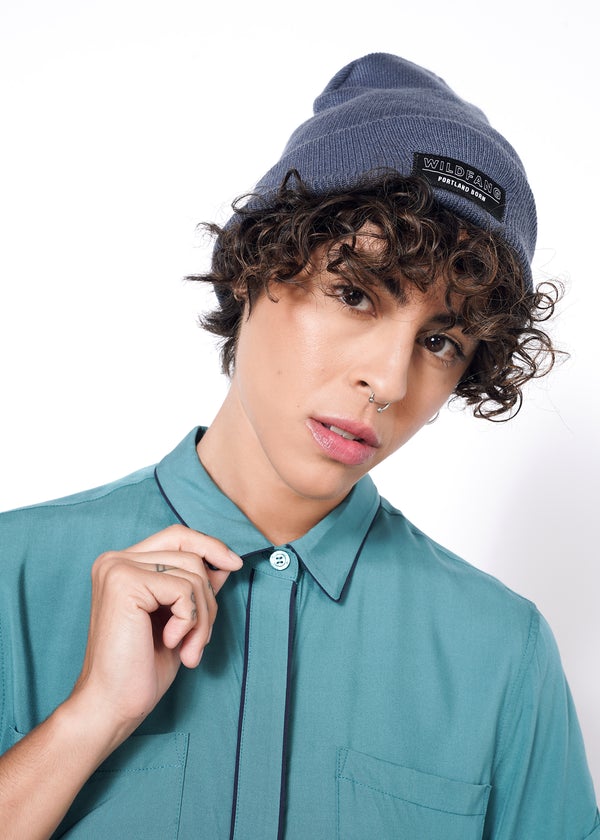




This statement is of the utmost importance. If people
don’t feel empowered and they’re not represented in the
world then it can be so damaging. It’s so vital that the
fashion industry produces role models for people who
prefer gender-free clothing. People need to express
themselves so they can be their true selves. GFW
Clothing director, Lisa says "I wouldn’t feel like my
true self in a pretty floral dress. This is nothing to
do with sexuality, it’s to do with self-expression. I
feel at my most confident wearing a well-fitting
'non-feminine cut' shirt. I feel like ‘me.'" People who
shop for gender-free clothing tend to hold certain
values. This includes demonstrating their individuality,
breaking society’s stereotypes (not all women like pink
and fluffy things!) and loving their own body. People
from all over the LGBTQ spectrum, including heterosexual
people, don’t want to conform to gender stereotypes -
and they shouldn’t have to.
Qwear: LGBTQ Voices in
Fashion
Celebrity Men Wearing Skirts
Rainbow Trend
Advocate: How Queer Fashion is Changing the World
Genderless Style
Emma D’Arcy on Fashion and Non-Binary Identity: Clothes
are Armour for Me
Dressing Beyond the Binary
Lidia Talavera:
High Heels for Men and Women
Video: Limitless Queer Fashion Show
Shop HRC
Tim Gunn: Future of Fashion is Non-Binary
How to Shop for Clothes When You're
Gender-Nonconforming
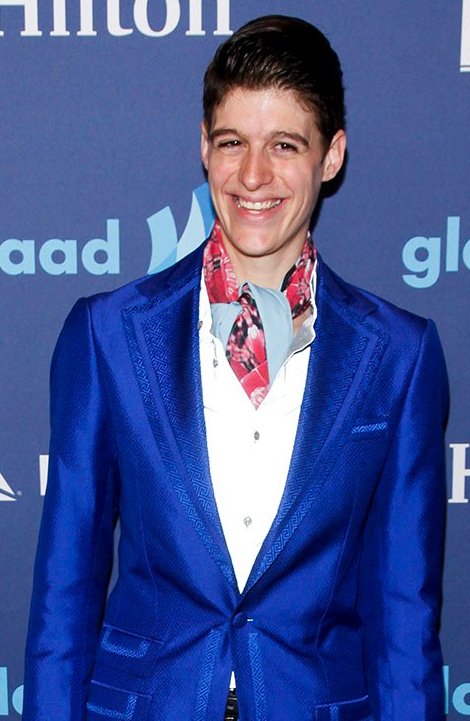
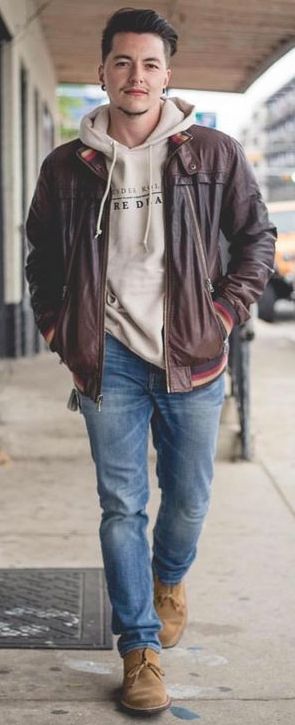

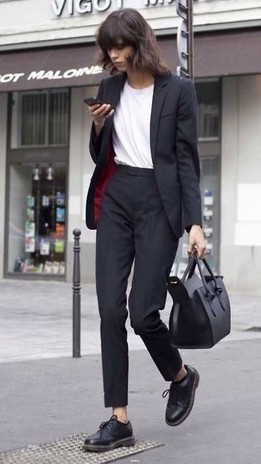
Queer Fashion Changing Society
Queer style is systemically rooted in gender
nonconformity and intrinsically tied to our identities.
It dismantles limiting style rules that have been
methodically employed as a means of symbolically and
literally perpetuating restrictive binaries and
oppressing freedom of expression. Queer style is a
fashion revolution, one of the most stylish forms of
protest of our generation. Fashion has historically been
political, particularly for marginalized groups. From
the flapper dress to the Zoot suit to Laverne Cox and
Caitlyn Jenner gracing the covers of mainstream
glossies, how communities and individuals express
themselves through clothing can be a form of visual
activism, even when that may not have been the original
intent.
Proud Me
Silent Influence of Queer
Culture on Fashion and More
How Knoxx Is Redefining Streetwear On The
Hype and With Her Dvmn Pigeon Line
Queering Fashion
Kevyn Aucoin: Iconic
Make-Up Artist
Oscar Guardiola Designs
Alex Consani Becomes First Transgender Model of the Year
at UK Fashion Awards
New Face of Beauty: Embracing LGBTQ
Inclusivity
Jaden Smith and Miley Cyrus: Gender Fluid Revolution
How to Shop for Clothes When You're
Gender-Nonconforming
ZynnStore
Non-Judgy Gender Neutral
Fashion Brands
How to Dress Gay
Queer Eye's Tan France: 30 Second Makeover
I Support LGBTQ:
Rainbow Scarves and Merch
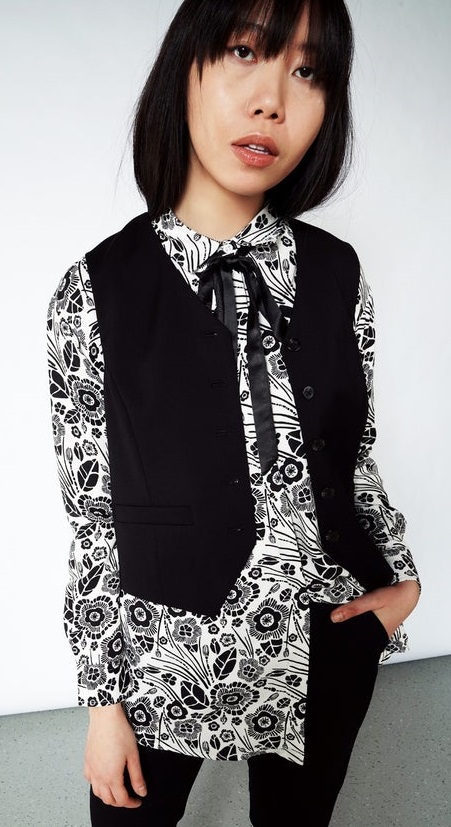
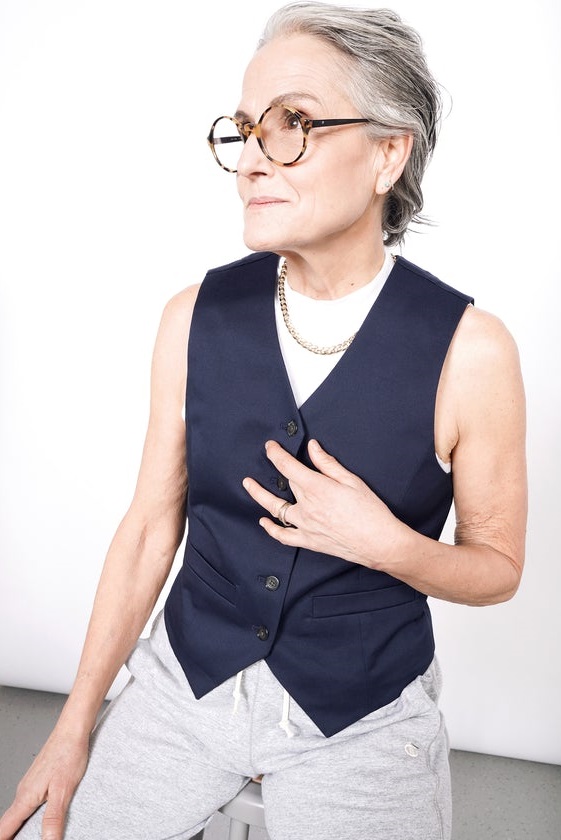
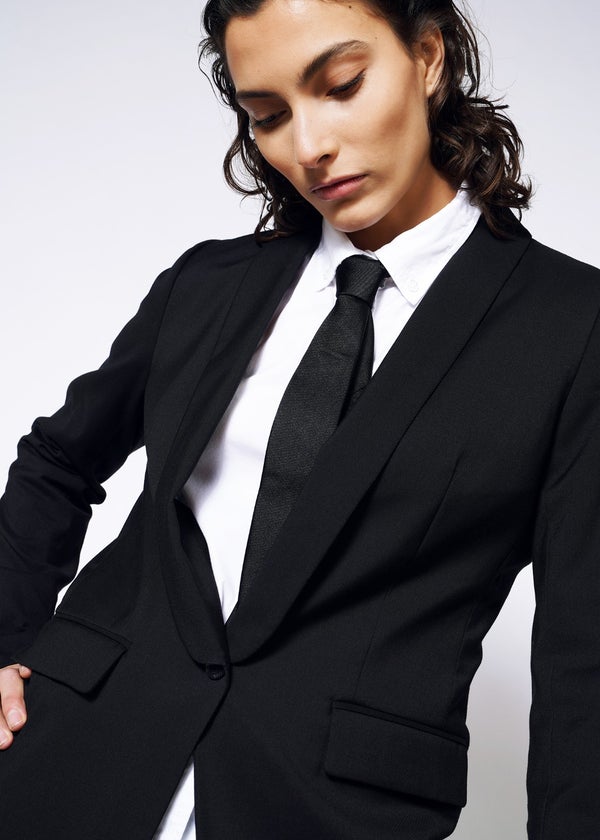
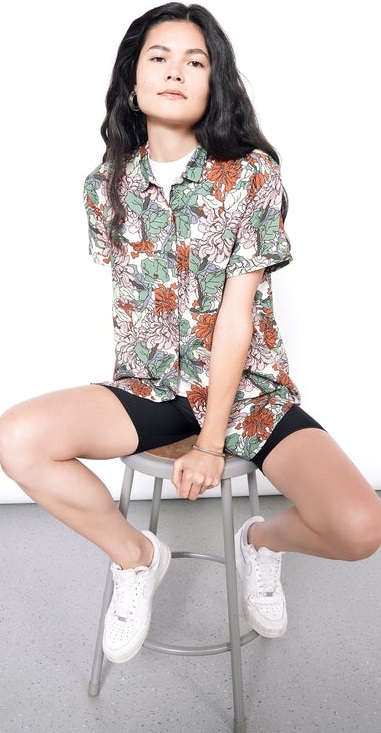
Adam's Nest
Sarah Paulson Outfits That Make Us Swoon
Embracing Gender Fluidity: LGBTQ Fashion Models
History of Fashion's
Response to the AIDS Epidemic
Pride Beyond the Binary: Embracing Fluidity in Gender
Expression in Fashion
Celebrity Men Wearing Skirts
Love Fruity
Underwear Fashion: Fran Dunaway and Naomi Gonzalez
Ohh Clothing
Stunning Queer Models
Queer Celebs We're Looking to for Fashion Inspo
Info: Drag and Crossdressing
The No-Longer Hidden History of Lesbian Fashion Trends
Rain Dove: Gender Capitalism
Qwear Fashion
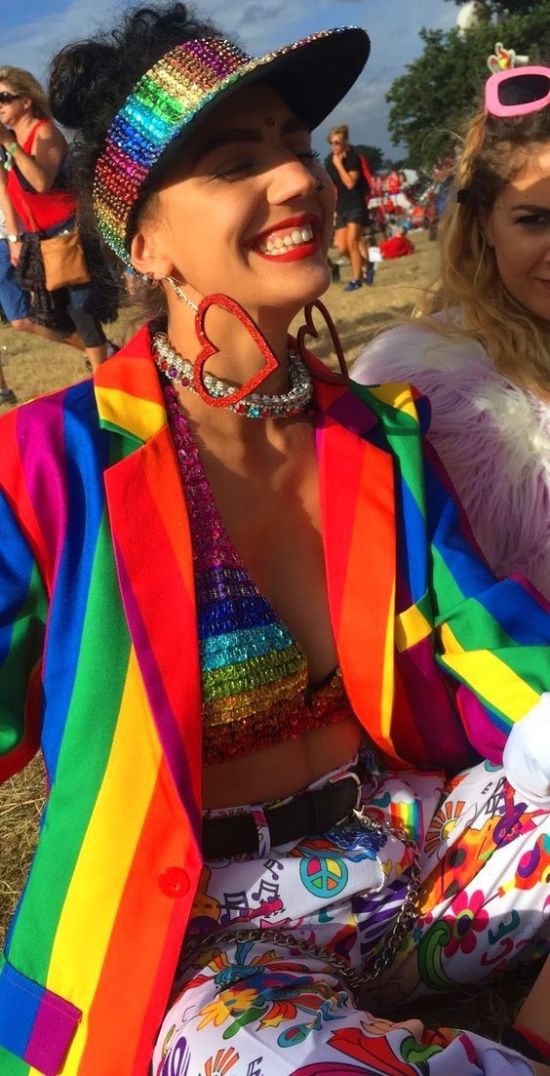
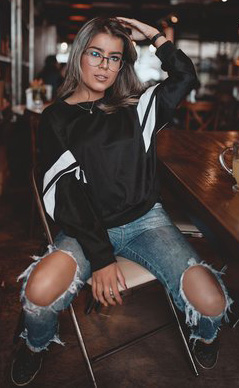

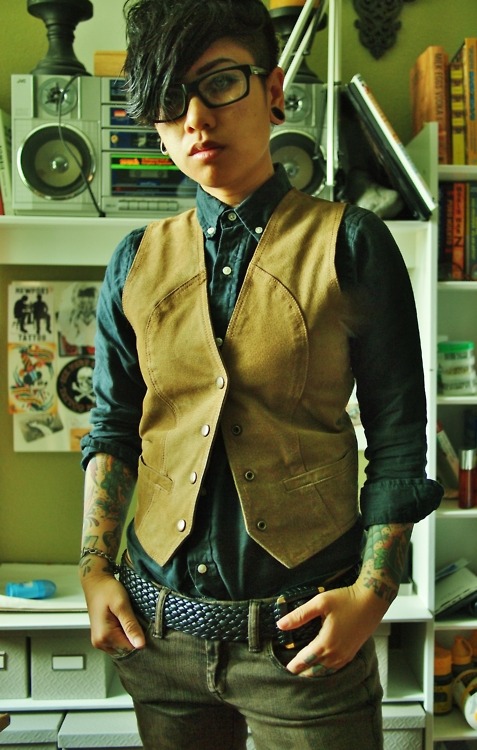
The LGBTQ community is at the forefront of
revolutionizing the way in which we look at garments in
relation to our gender performance and expression. Queer
style exemplifies the basic principle that style is a
personal, curated, artistic reflection of who we are on
the inside, and by fearlessly breaking norms, we have
created a social movement that enables every member of
our society to benefit from less restrictive, less
oppressive ways of expressing ourselves.
Of course, the fashion industry is
always looking for new markets and trends from which to
generate profits, so queer style is "in" right now from
an economic perspective. Fashion designers and media are
feverishly trying to capitalize on the “gender neutral”
and “gender ambiguous” trend. As noted in many fashion
articles, “gender lines are blurring.”
This fashion trend features designers with gender-free
labels capitalizing on fashion’s gender blur, the
narrowing of the sexual divide bent on eroding the once
rigid demarcation between conventionally feminine and
masculine clothes. Some fashion experts attribute this
phenomenon to a revival of ’60s and ’70s unisex trends,
and give some credit to the growing visibility and
success, both socio-politically and economically, of
queer style.
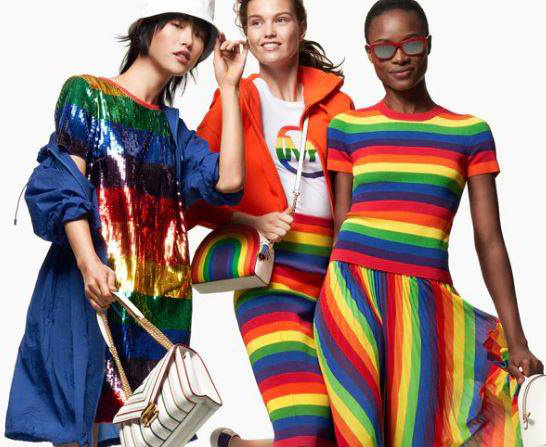
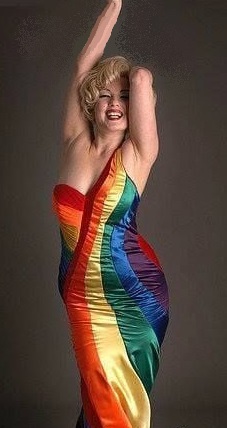
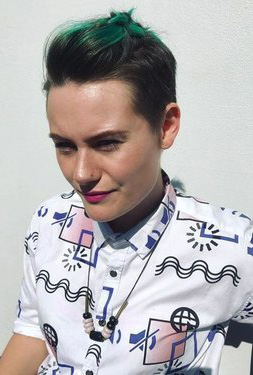
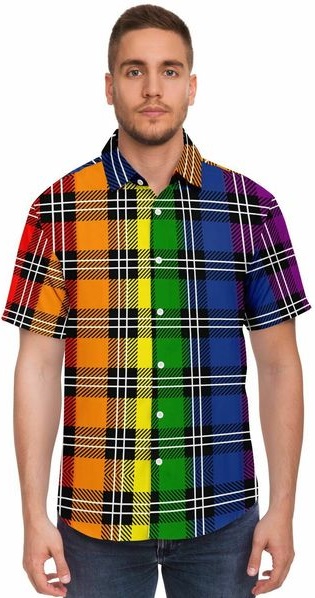
Timeless Flow Apparel
Qwear: LGBTQ Voices in
Fashion
Dressing Beyond the Binary
Oscar Guardiola Designs
The
Pride Store
Tom Ford: LA Times Interview
Video: Limitless Queer Fashion Show
Tim Gunn: Future of Fashion is Non-Binary
How to Shop for Clothes When You're
Gender-Nonconforming
Black LGBTQ Fashion Designers
Kevyn Aucoin: Iconic
Make-Up Artist
Gay Pride Apparel
Rain Dove: Playing With Gender
Info: Gender Expression
Queer-Led Fashion Brands
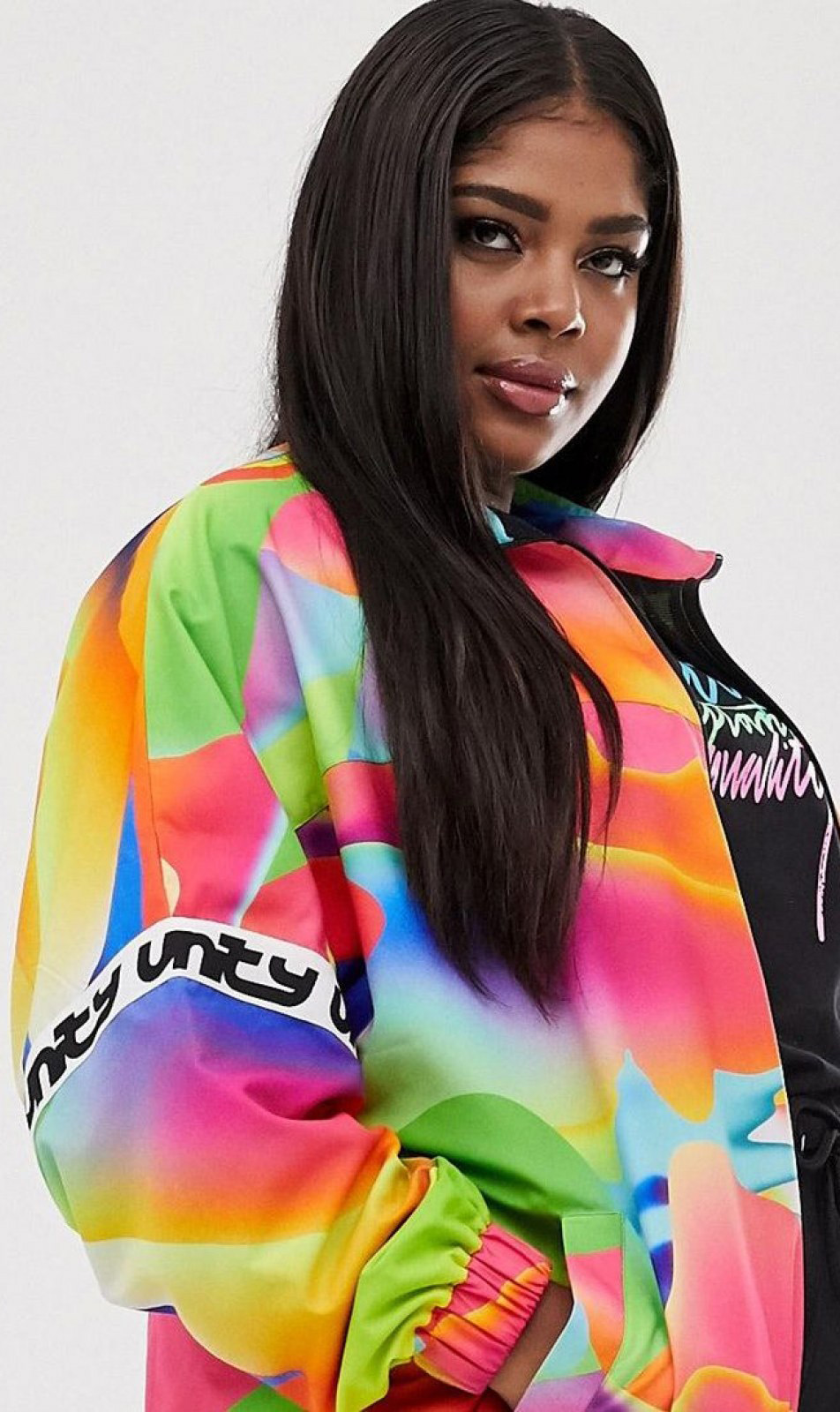
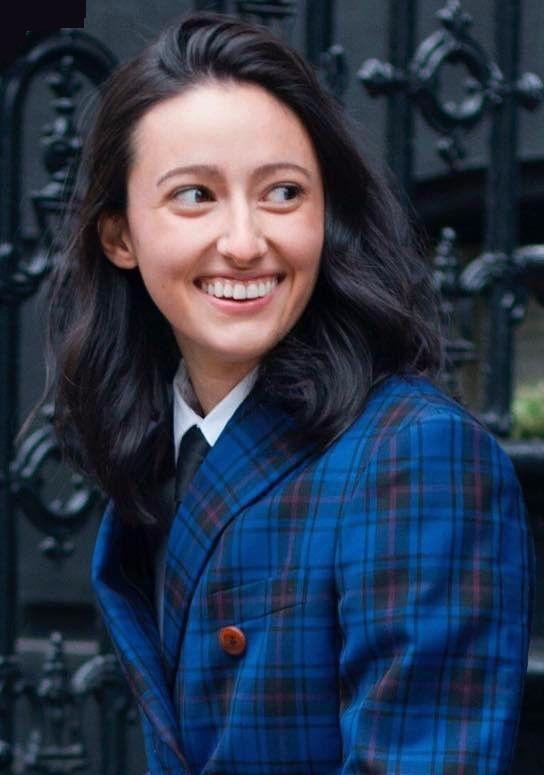
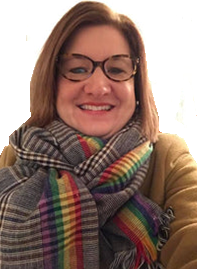
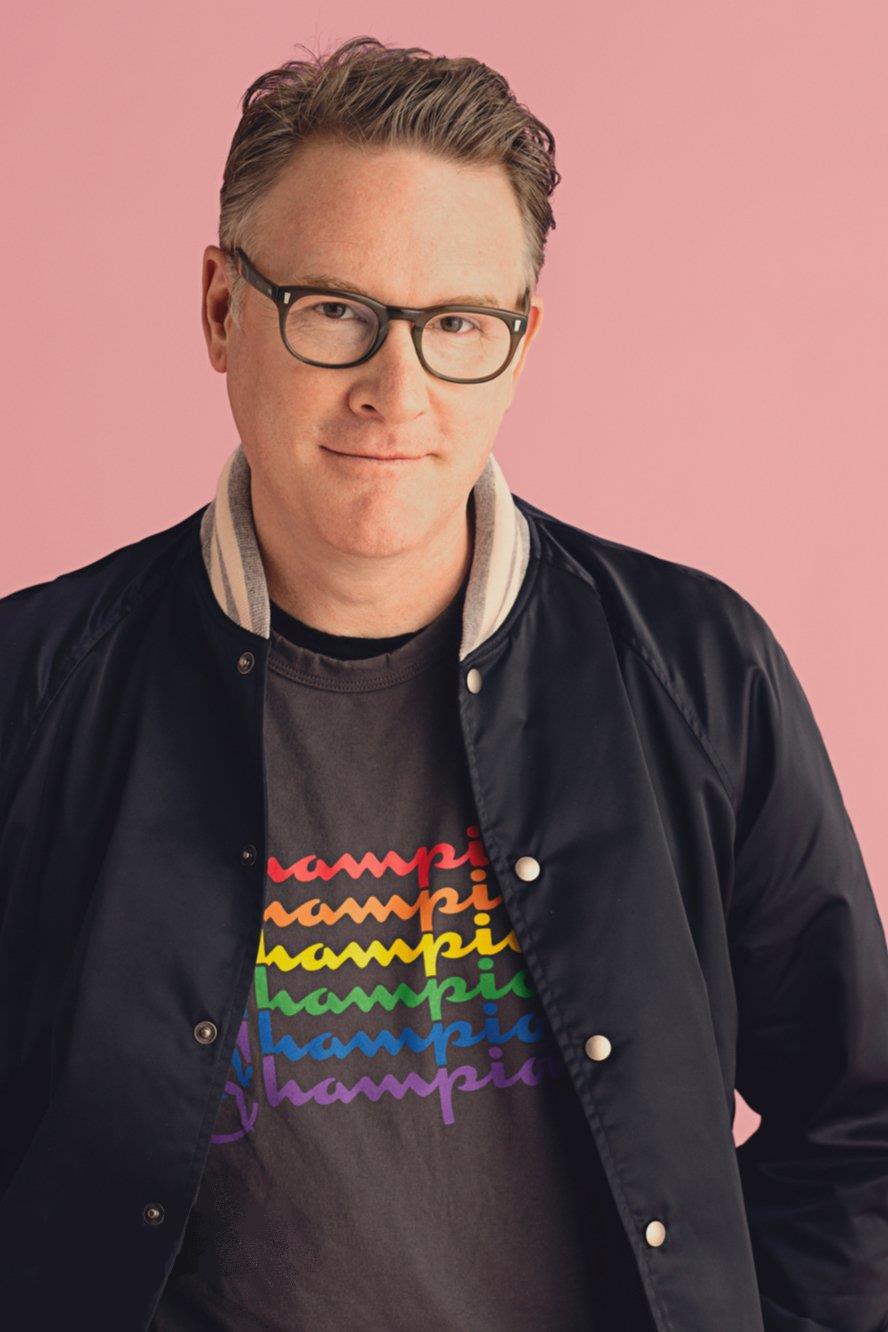
Though androgyny is a hot trend in mainstream fashion,
and though the majority of start-up “queer style” brands
are focusing on producing masculine attire, it must be
noted that androgyny and masculinity do not fully
represent queer style. Feminine queer fashion is radical
and deserves space in the queer style narrative too,
because it challenges the gender, racial, ethnic,
cultural, age, and size beauty norms set forth by the
fashion industry. Feminine queer style is all about
reclaiming and redefining femininity. In some contexts,
feminine queer style is being unapologetically feminine
in response to pressures from queer-normativity and
heteronormativity to present more masculine. In other
contexts, it is about dressing how you feel inside and
walking with pride in spite of potentially experiencing
street harassment or violence.
Irrespective of whether the fashion industry recognizes
queer style as profitable, legitimate, or trendy, queer
style will remain political and will continue to
flourish as a social movement.
[Source: Anita Dolce Vita, Advocate]
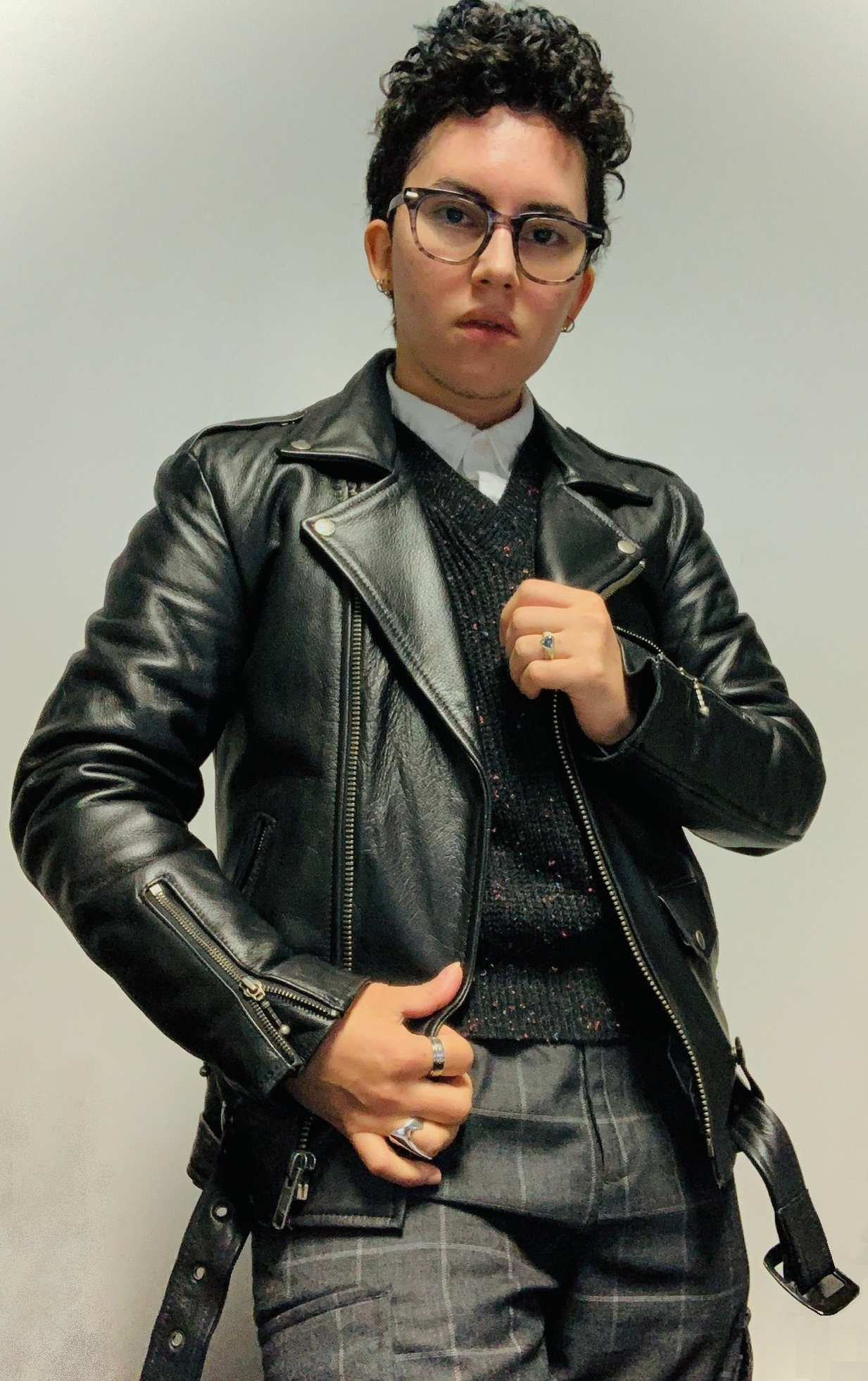
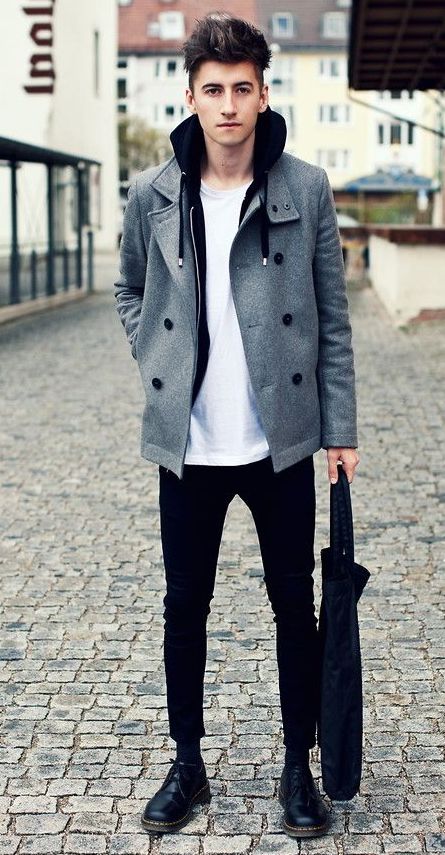

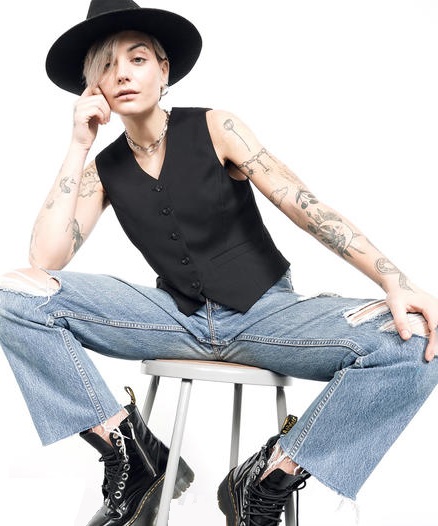
Fashion Consultant for Trans Women
Love Fruity
List: LGBTQ Fashion Designers
Qwear: Favorite
Black Queer Fashion Moments of the Year
Kind Cotton
Dutchy Video: LGBTQ Fashion Tips
Androgynous Fashion
Sarah Paulson Outfits That Make Us Swoon
History of Fashion's
Response to the AIDS Epidemic
Pride Beyond the Binary: Embracing Fluidity in Gender
Expression in Fashion
Clothing and Apparatus for Trans Kids
Ohh Clothing
New Face of Beauty: LGBTQ Inclusivity in
Beauty School
Queer Fashion: More Than Just a Trend
Info: Gender Expression
Dressing Beyond the Binary
Shop HRC
The Phluid
Project: Gender Free Brands
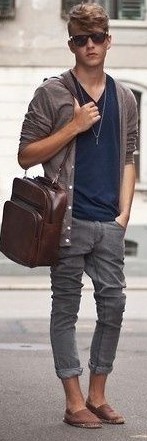 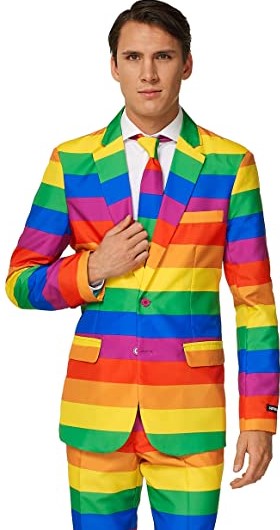
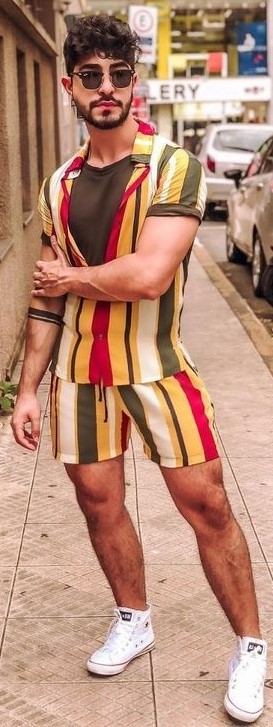
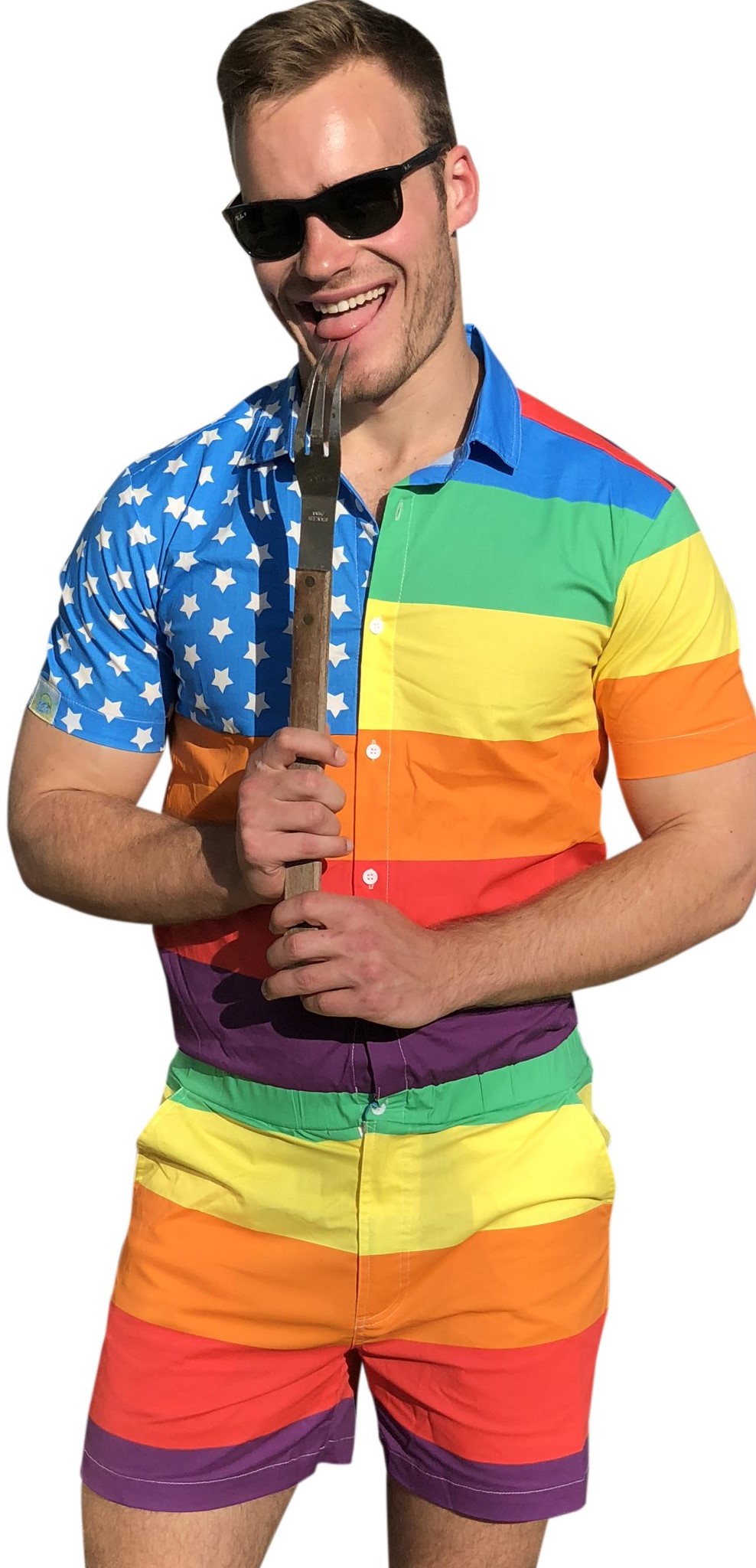
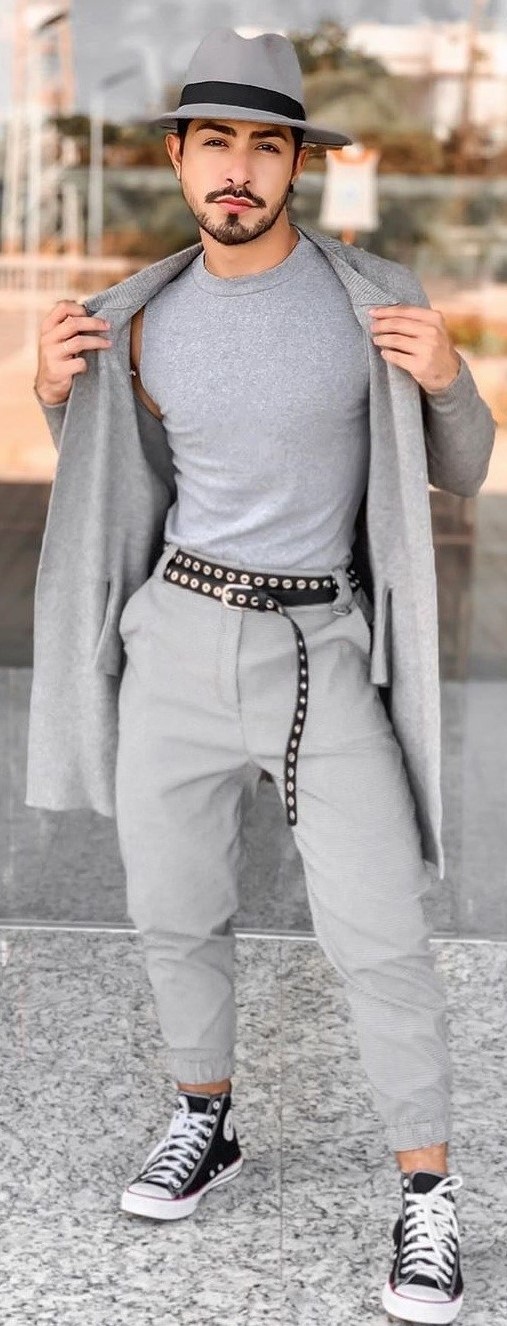
Gender
Fluid Fashion at the Oscars
Gender-fluid fashion was the real winner at the 2019
Academy Awards event. Stars like Billy Porter, Amy
Poehler, Jason Momoa, Elsie Fisher, Awkwafina, Stephen
James, and Sandy Powell were their authentic selves on
the Red Carpet.
For years
we got used to men’s red carpet looks as often boring.
Everyone wears the same black tux. Women, on the other
hand, bring glamour and beauty to award ceremonies but
are often reduced to just those attributes.
These discrepancies bring to light the central problem
of fashion: why are men and women’s clothing choices so
different? Fashion is political. Feminist critiques of
clothes would point out that women’s dresses put
aesthetics above function or mobility, while men’s
clothing is designed with purpose and not ‘prettiness’
in mind. These questions (of gendered clothing, sexual
politics, and the like) have existed in fashion for a
long time.
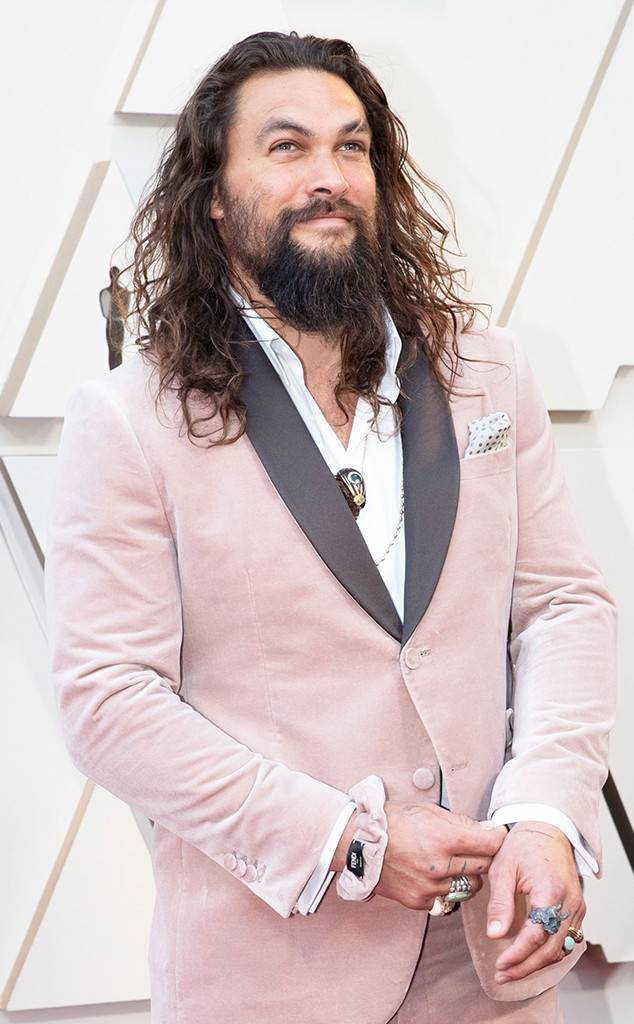
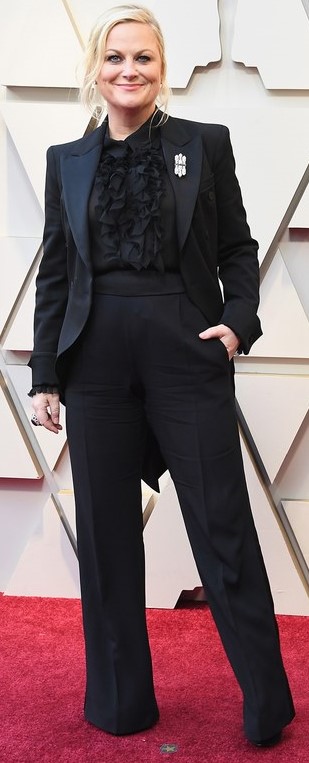
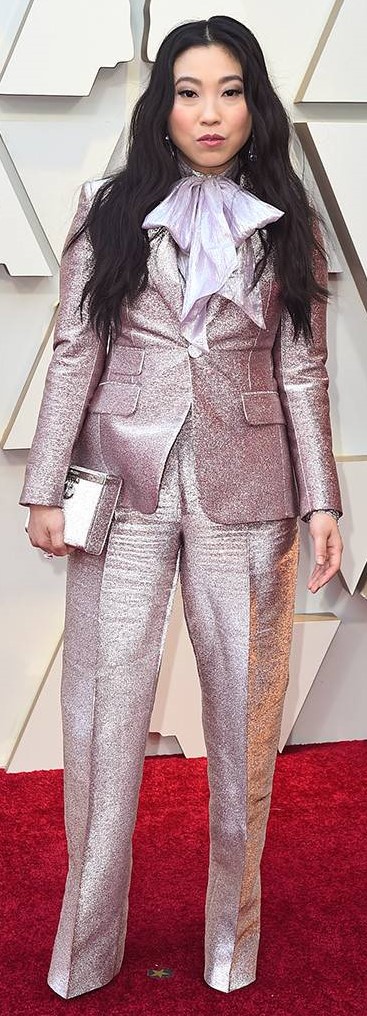
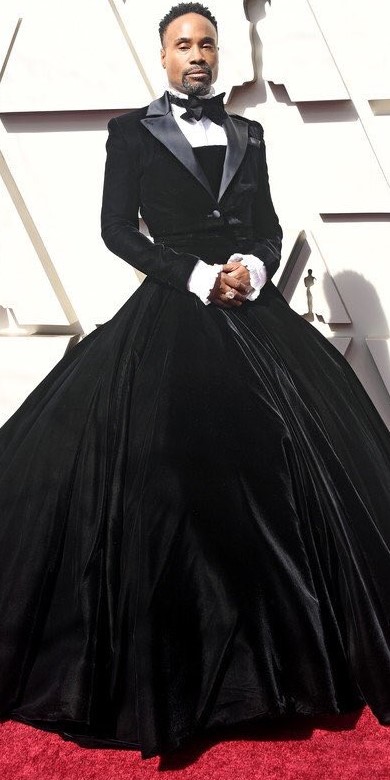
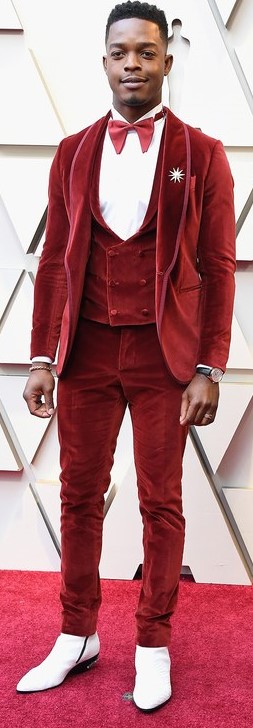

Fashion Institute: From Closet to Catwalk
New Face of Beauty: Embracing LGBTQ
Inclusivity
HRC Fashion: Equality
Merchandise
Queer Eye Store
Kevyn Aucoin: Iconic
Make-Up Artist
Qwear: LGBTQ Voices in
Fashion
How to Shop for Clothes When You're
Gender-Nonconforming
Dutchy Video: Tomboy Lookbook
Winter Fashion Ideas: Edgy Femme
In the 1960s-1970s, as gender relations in the first
world shifted, gender-fluid or androgynous fashion made
its mark on the runway. ‘Modern’ women preferred
practical clothing but the neutral fashion produced
during this era often just put women in masculine
clothes without changing men’s fashion. Now (after many
decades) gender-fluid clothing has made a fierce
comeback in the past few years. Recently, designers at
prominent fashion shows have made clothing that can fit
either sex and both male and female designs have
evolved.
We live in an era with shifting ideas of gender
expression, identity, and equality and fashion are
changing dramatically. And the fashion statements on the
red carpet are no exception.
[Source:
Saira Mahmood, Tempest, March 2019]
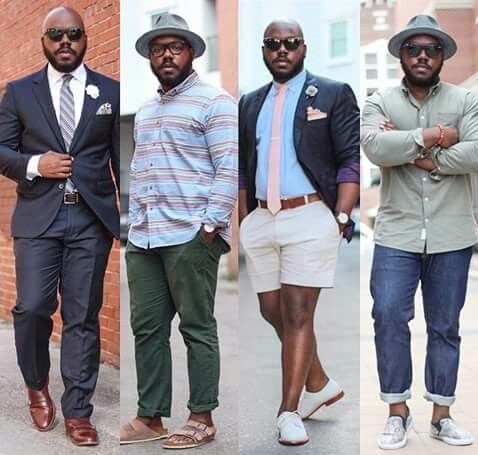
Celebrity Men Wearing Skirts
Pride Clothing and Rainbow Outfits
Lesbian Models
I Support LGBTQ:
Rainbow Scarves and Merch
HRC Fashion: Equality
Merchandise
Queer Eye Store
Non-Judgy Gender Neutral
Fashion Brands
History of Lesbian Fashion
New Face of Beauty: Embracing LGBTQ
Inclusivity
Info: Queer Flagging
Guissy Glam
Queer Designers You Should Know
Autostraddle: Queer Fashion Articles
100 Years of Queer Fashion
Gay Pride Apparel
Tim Gunn: Future of Fashion is Non-Binary
List: LGBTQ Fashion Designers
How to Shop for Clothes When You're
Gender-Nonconforming
Androgynous Fashion Models
|
Andrja
Pejic
Rain Dove
Katherine Moennig
Casey Legler
Agynes Deyn
Stav Strashko
Willy Cartier
Bradley Soileau
Feja Beha Erichsen
Jake
Dupree
 |
Miles
McMillan
Tamy Glauser
Jaco van den Hoven
Cory Wade Hindorff
AzMarie Livingston
Teddy Quinlivan
Jaye Davidson
Jenny Shimizu
Omahyra Mota
 |

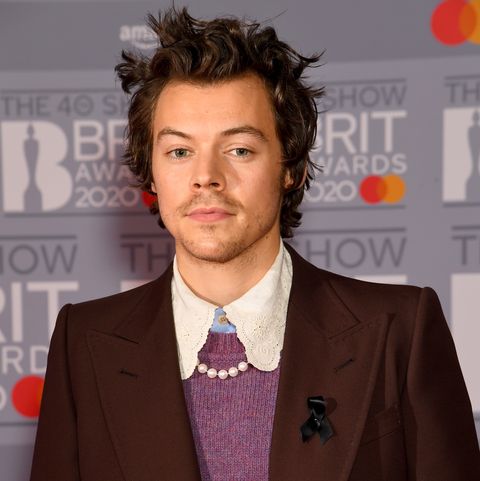
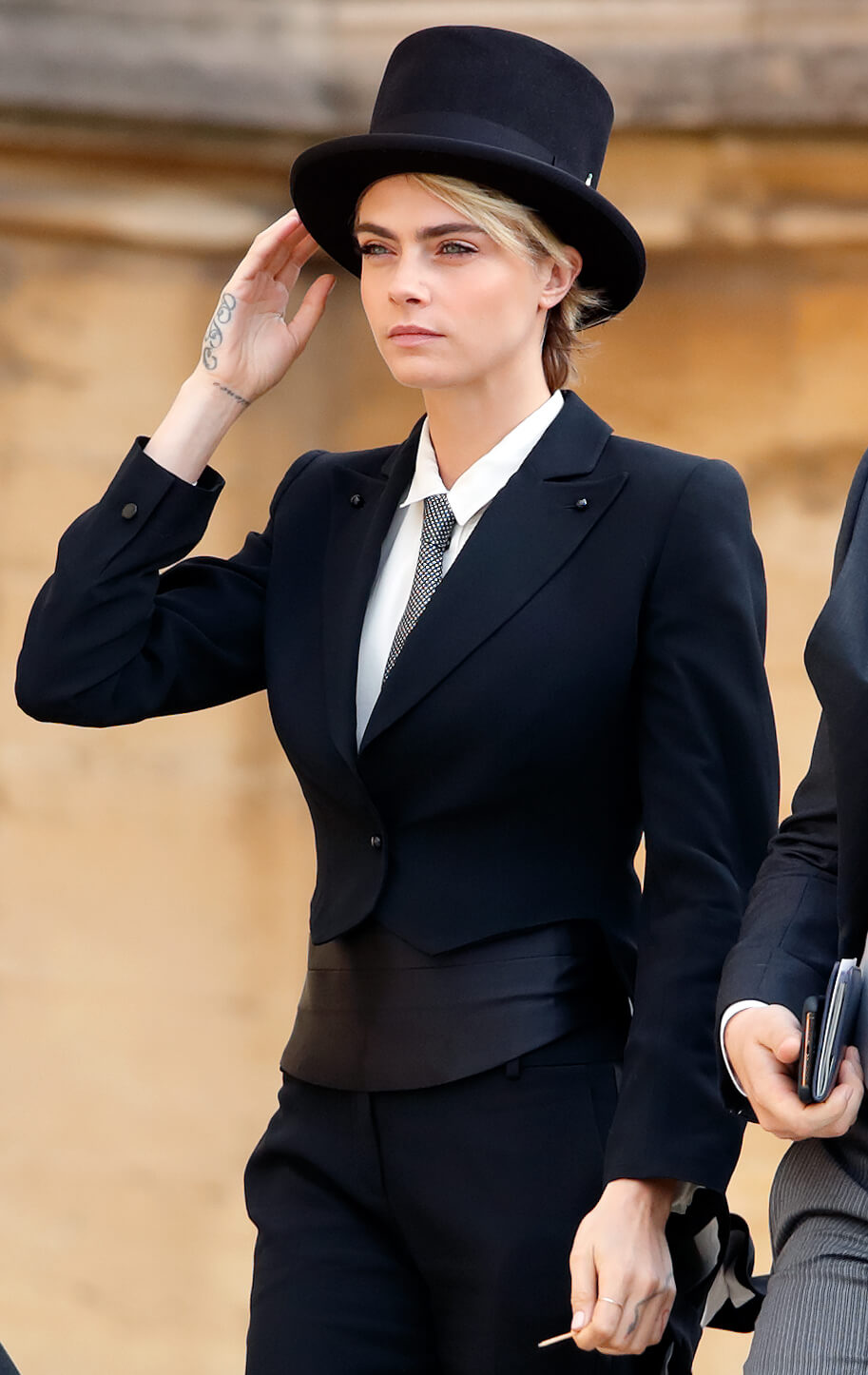
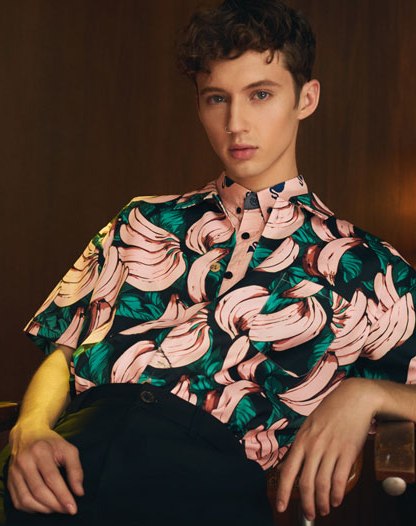
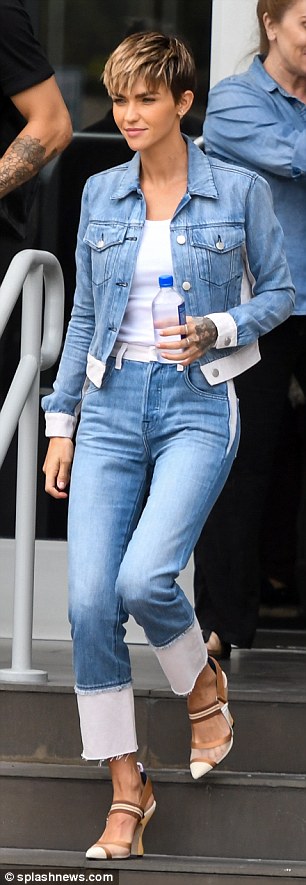
Tom Boy Shop: Non-Gendered Clothing
Valentina Sampaio:
Interview With Trans Fashion Model
Dressing Queer Teen for Prom
History of Fashion's
Response to the AIDS Epidemic
Info: Queer Flagging
Kind Cotton
How to Queer Any Outfit
Sarah Paulson Outfits That Make Us Swoon
Rainbow Trend
Short
History of Queer Fashion
1700s - Homosexuality was
illegal in Europe, which led to the emergence of small
and secret homosexual subcultures. Its members, known as
mollies, would cross-dress in private to self-identify
and attract partners. In public, though, there were
secret dress codes that allowed gay men and lesbians to
identify each other.
1890s - One of the century’s most influential writers,
Oscar Wilde’s flamboyant sense of style was as much of
an influence as his seminal works. His flowing hair,
floral accessories, loosely tied collars, breeches and
fur-trimmed overcoats spoke of his self-expression of
dandyism, evolving with his personal and public image.
1920s - Women adopted menswear in rebellion against
patriarchy. Movie stars like Marlene Dietrich played a
major role in popularizing androgynous dressing styles.
The Harlem “Drag" Balls also offered a space where
people could privately wear clothing of the opposite
gender.
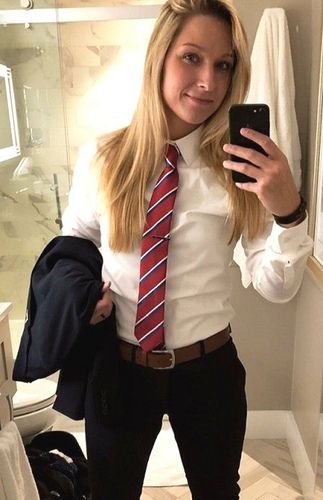 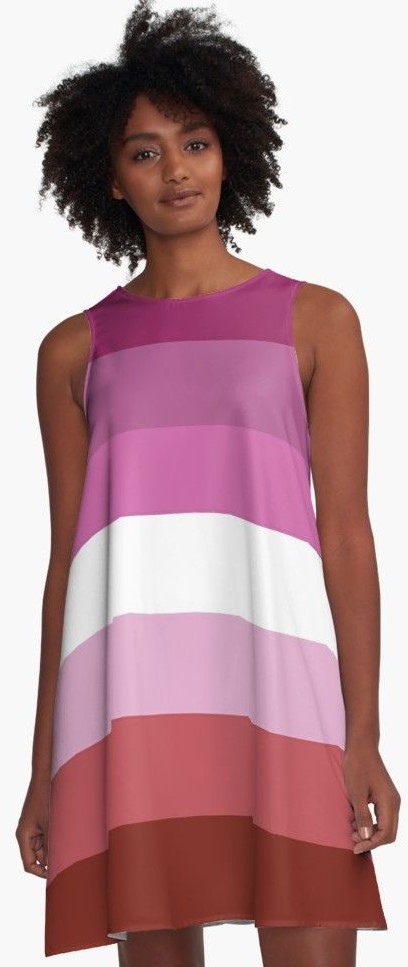 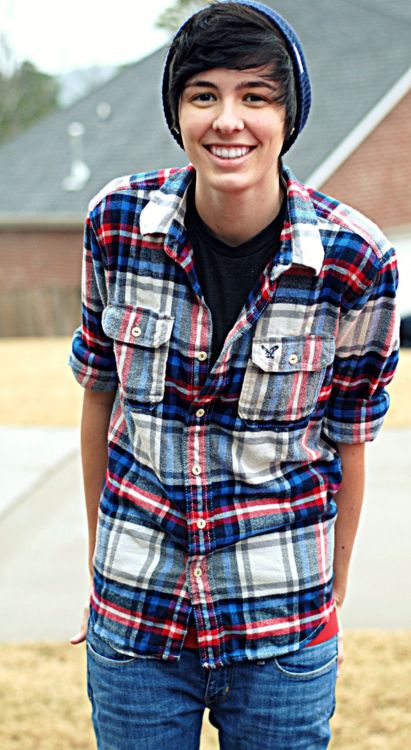
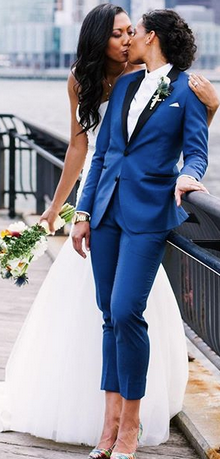
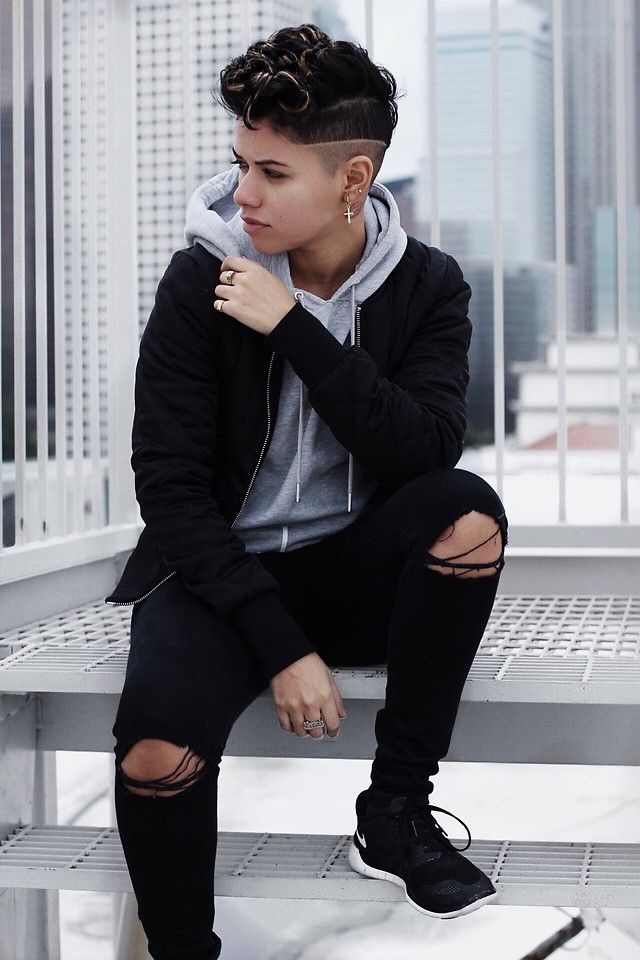
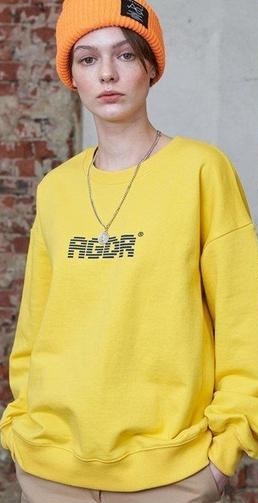
Androgynous Fashion
Kevyn Aucoin: Iconic
Make-Up Artist
Bunny Style
Tom Ford: Vogue Interview
Qwear: LGBTQ Voices in
Fashion
Lesbian Models
Queer Fashion: More Than Just a Trend
Info: Gender Expression
Kind Cotton
Dressing Beyond the Binary
Timeless Flow Apparel
Famous LGBTQ Fashion Designers and More
H&M Fashion Haul: Crossdress MTF Transformation
Oscar Guardiola Designs
1930s - As closeted gay
couturiers such as Christian Dior, Pierre Balmain and
Cristóbal Balenciaga rose in the fashion industry, they
experimented with both idealized and transgressive
styles. For example, Dior’s 1947 “New Look" was an
exaggerated presentation of the idealized female form.
1950s - Women increasingly began to wear trousers,
traditionally worn by men. Until the 1970s, the trouser
also served as an identifier for lesbians, though not
everyone adopted it. Some women preferred feminine
clothing, playing a role in the emergence of the “butch"
and “femme" identities.
1960s - Queer subcultures became more visible,
especially in London’s Carnaby Street. Mod and hippie
styles gained fame and men became more interested in
fashion. Androgyny became part of the counterculture’s
style language.
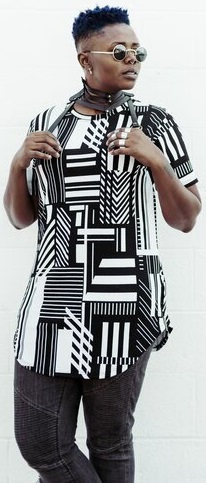
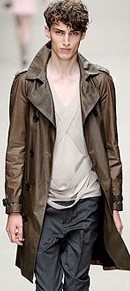
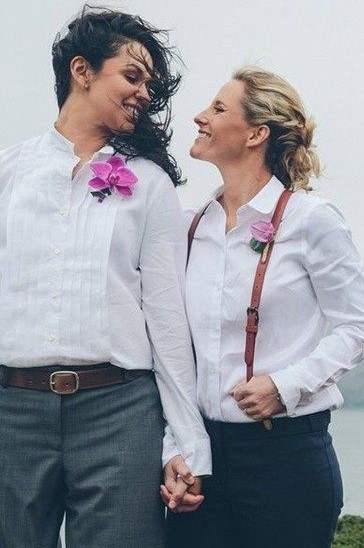 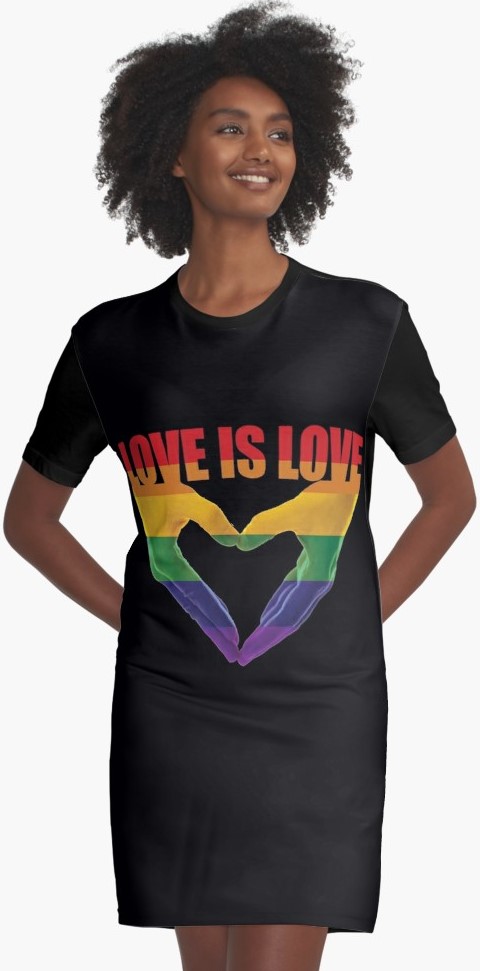 
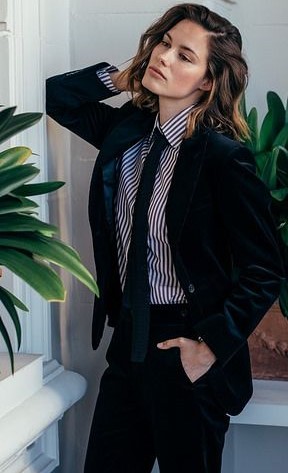
Advocate: How Queer Fashion is Changing the World
Queer Eye: Top Fashion Tips
I Support LGBTQ:
Rainbow Scarves and Merch
History of Fashion's
Response to the AIDS Epidemic
Winter Fashion Ideas: Edgy Femme
GQ Magazine:
Keith Haring Blew Up the Art and Fashion World
Info: Queer Flagging
Pride Stance
1970s - The Stonewall
Riots of 1969 paved the way for a change in gay men’s
fashion sensibilities. While the riots were started by
transgender “street queens" such as Marsha P. Johnson,
who opted for feminine styles, men opted for
hypermasculine styles. Feminist politics also saw women
moving towards “anti-fashion".
1980s - The AIDS crisis changed the way gay men consumed
fashion, swapping hypermasculinity for subversive
styles. Lesbians gradually shed their “butch" and
“femme" binaries for new ways of dressing, influenced by
different cultures.
1990s - Queer fashion extended its influence on the
runway, especially when it came to subjects perceived as
social taboos. French designer Jean Paul Gaultier, who
had created his campy cone-bustier dress in 1984, went
on to make skirts for men. Gianni Versace explored BDSM
in his 1992 collection, Miss S&M
2000 Onwards - The new millennium looks beyond gender
binaries. Principles of diversity and inclusivity have
redefined LGBTQ style while also changing the contours
of mainstream fashion. The idea of genderless clothing
has prospered, starting with designers like Rick Owens,
who has implemented it in his brand since 2002.
[Source: Shubham Ladha, Live Mint, Jun 2019]
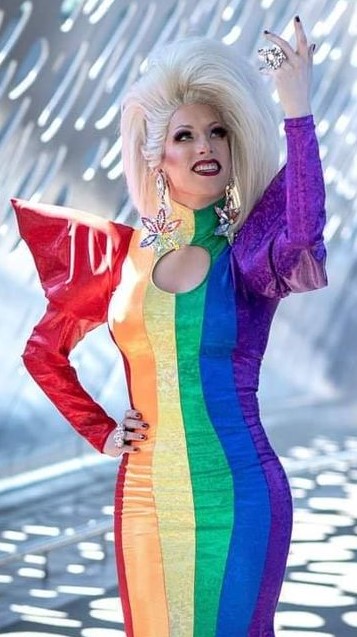 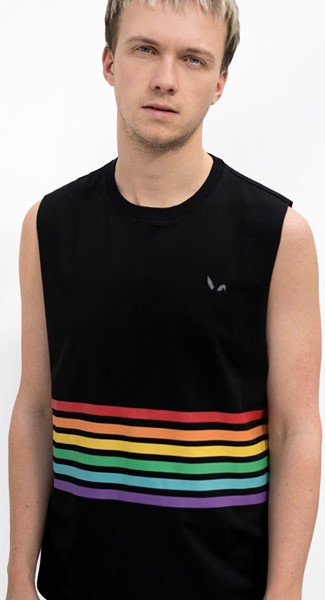
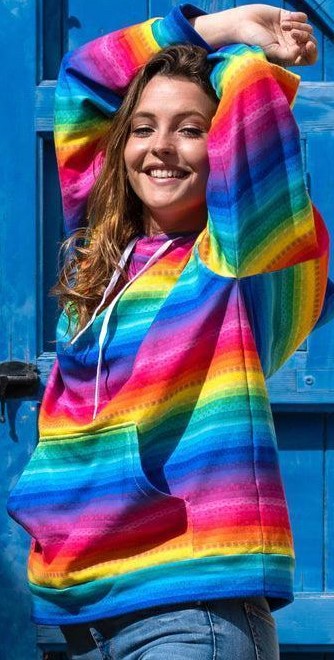
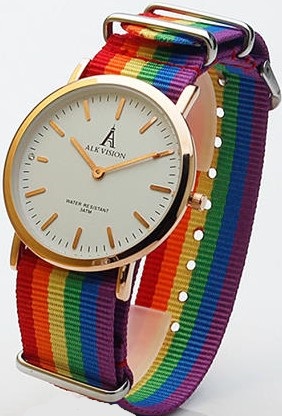
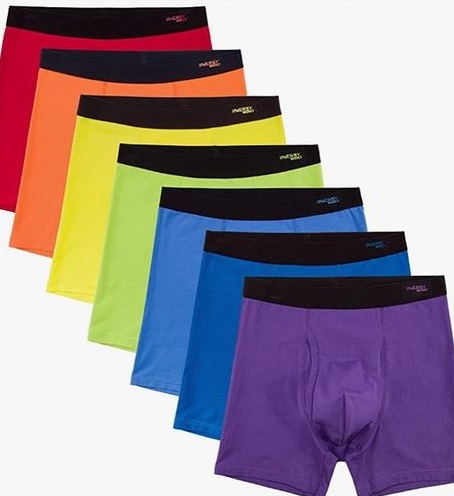
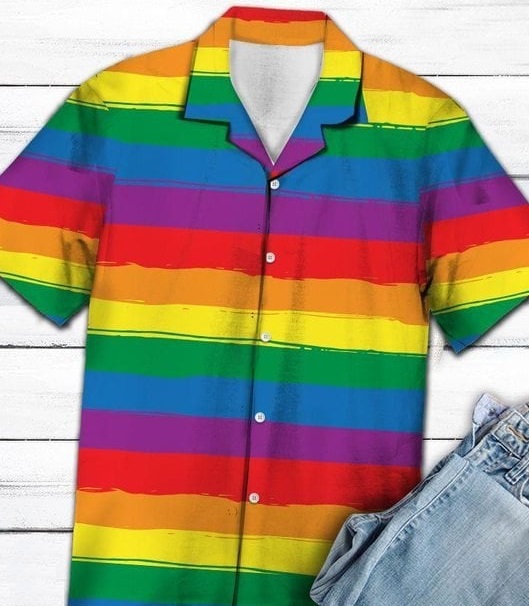
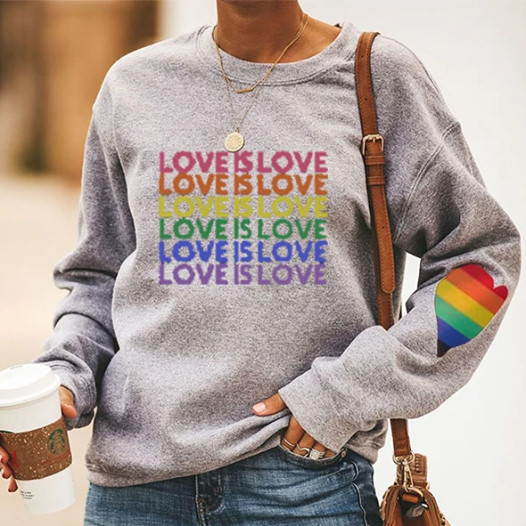

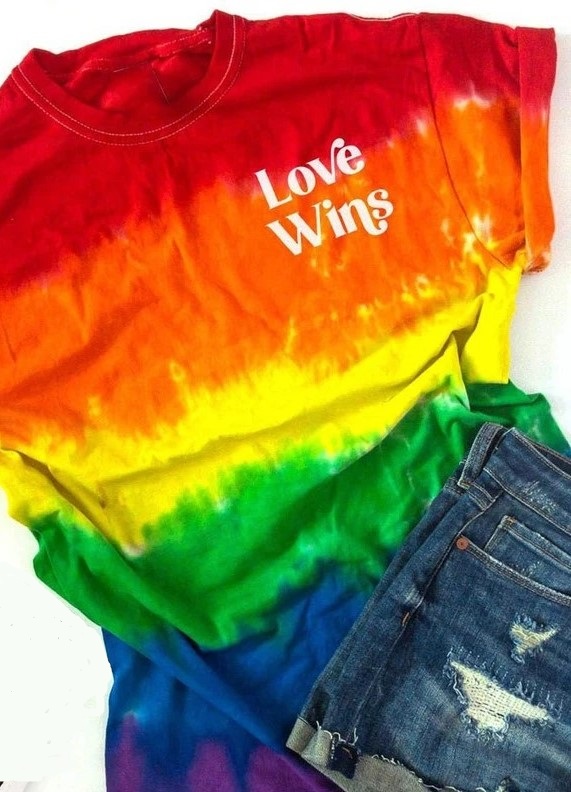
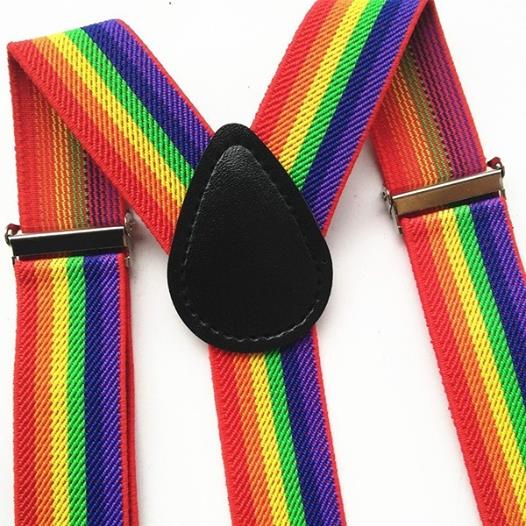
How to Queer Any Outfit
Fashion Remains a Leader in LGBTQ Inclusion
The Phluid
Project: Gender Free Brands
Love Fruity
Black LGBTQ Fashion Designers
Pride Beyond the Binary: Embracing Fluidity in Gender
Expression in Fashion
Embracing Gender Fluidity: LGBTQ Fashion Models
New Face of Beauty: Embracing LGBTQ
Inclusivity
Lidia Talavera:
High Heels for Men and Women
How to Dress Like a Gay Man
Proud Me
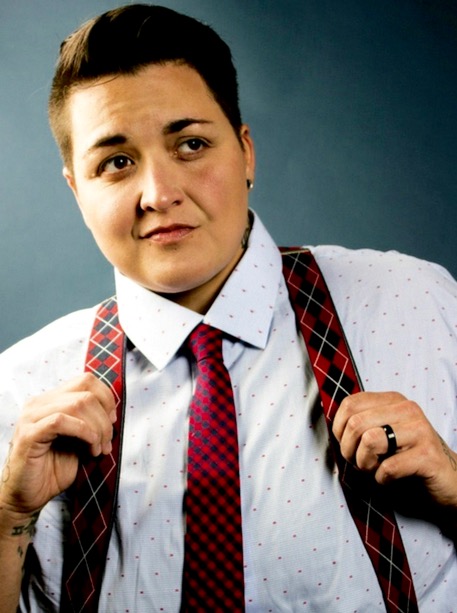
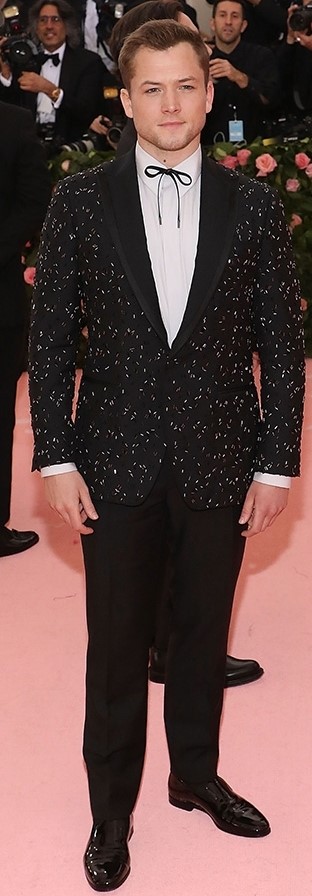
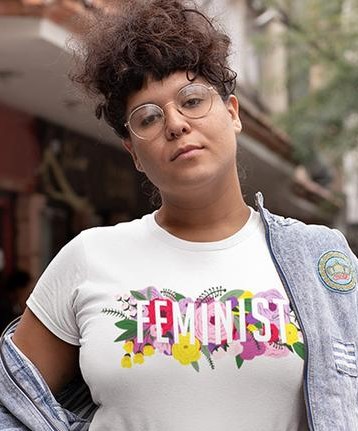
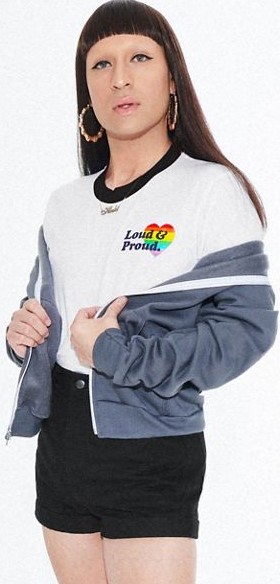
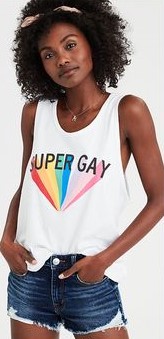
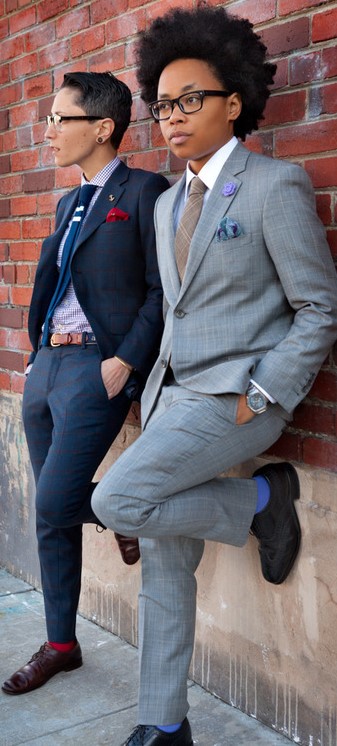
Meet Fran
Dunaway and Naomi Gonzalez
From women's boxer briefs
and loungewear, to comfy bras and bikinis, TomboyX is
changing the game for good. Targeting queer, non-binary,
and transgender customers, this lingerie company is
nothing like Victoria's Secret. In fact, TomboyX has
found success by going in the opposite direction. The
queer, female-owned, gender-neutral underwear company
tripled its income after introducing a boxer brief for
women.
Founders Fran Dunaway and Naomi Gonzalez began their
Seattle-based company in 2013 knowing little about the
fashion industry, but wanted to make clothes that suited
them as, well, tomboys. "I just wanted to find a cool
button up shirt that would fit me," Dunaway says. "Store
after store, rack after rack, there just wasn’t anything
for me. At first, it was frustrating. Then it occurred
to me. We had to make clothes for us, and, by extension,
everyone that the fashion industry wasn’t serving."
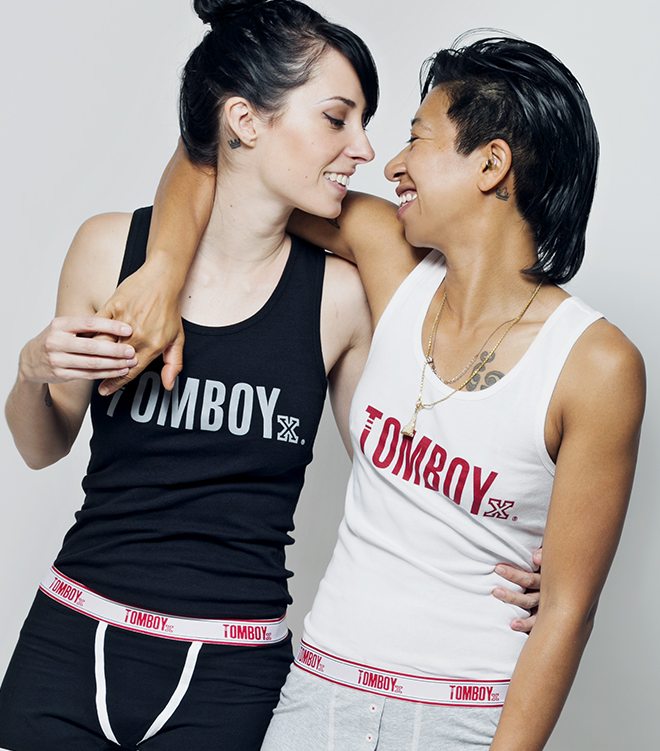
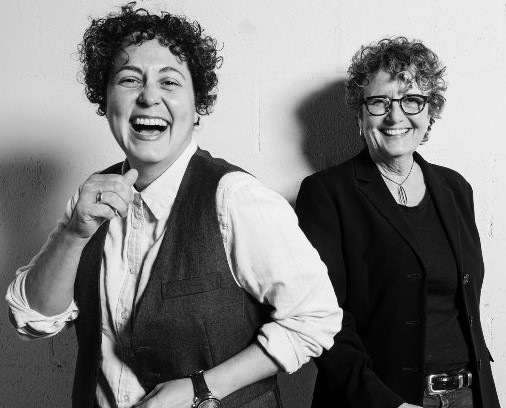
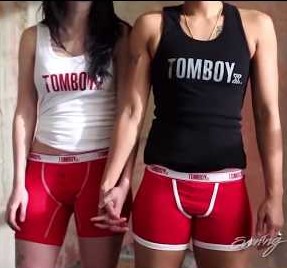
Target Collaborates with TomboyX to Sell Binders
Underwear Fashion: Fran Dunaway and Naomi Gonzalez
TomBoyX: Underwear Made
for Any Body
Business Insider: TomBoyX Completely Changed Underwear
Standards
A Kickstarter campaign brought in $76,000, allowing the
women to start producing fitted polos and button up
shirts. But it wasn't until the women’s boxer briefs
blew up the following year that Dunaway and Gonzalez
knew they found an untapped market. They soon shifted
exclusively to underwear, loungewear, and sleepwear,
producing super-comfy bras, bikinis, thongs, boy briefs,
boxer briefs, hoodies, and pajamas. The clothing is for
women, men, and those who identify as neither.
"Our customers are the reason we are here," Dunaway
says. "Everything we do is with them in mind. From them,
we hear how we’ve changed people’s lives, how they feel
more confident and comfortable in their own skin than
they ever have. We hear from teens who are trans and we
hear from 70-year-old women."
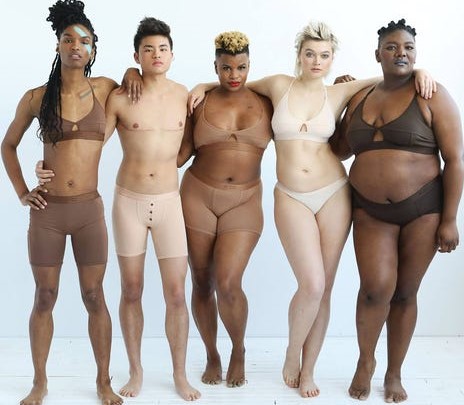
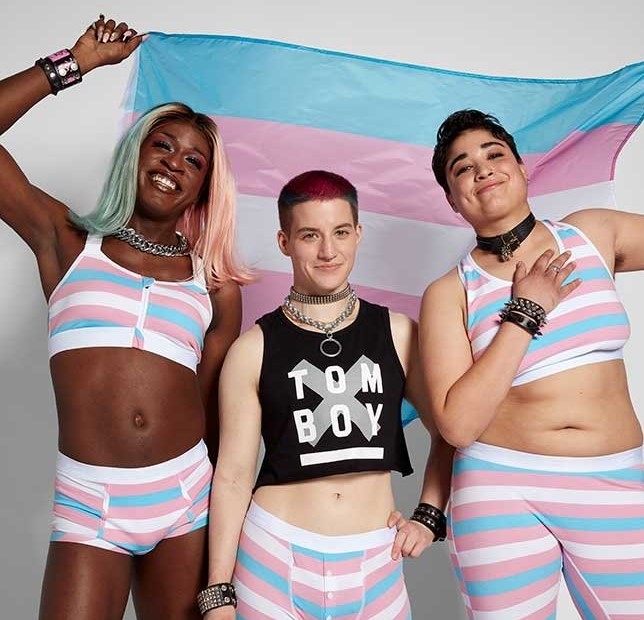
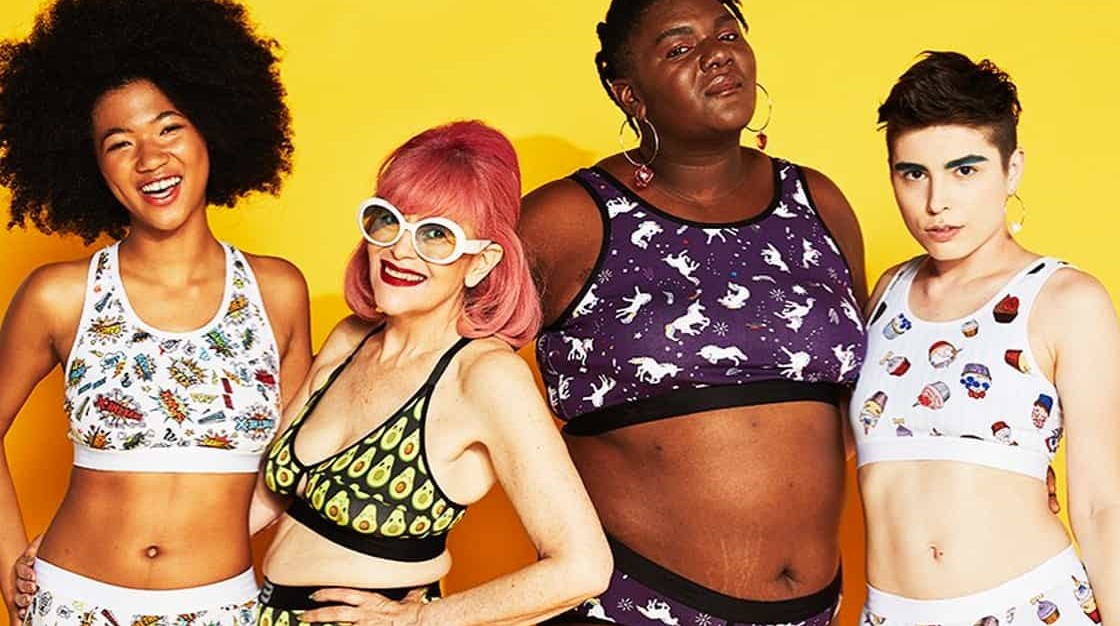
With its growing success, which includes nearly
three-dozen employees and $25 million in funding,
Dunaway and Gonzalez hope to expand on TomboyX's
inclusive credo. TomboyX is currently available in a
huge variety of sizes, from XS to 4X. Dunaway and
Gonzalez are working to expand that, and make their
products available in 5X to 6X. The boxers and briefs
work for both those with penises and those without. The
company is also planning “packer” underwear specifically
for trans guys.
The most important thing about the company, says
Dunaway, is that its items are for everybody, or to be
exact, every BODY: big, small, those with breasts, those
without, boy, girl, or somewhere in between. This belief
system is ingrained in the founders. “To be honest,
we’ve never thought of ourselves as so-called 'women
entrepreneurs,’” Dunaway adds. “We just happen to be
entrepreneurs who are women, and it’s up to us to show
the world that there is so much more to gender than say,
pink and black, or belonging in this box or that.”
[Source: Neal Broverman, Advocate Magazine, May 2020]
Advocate: How Queer Fashion is Changing the World
Tom Ford: LA Times Interview
Masculine and Feminine Lookbook
Timeless Flow Apparel
Sarah Paulson Outfits That Make Us Swoon
Victoria's Secret Hires First Openly Trans Model
Guissy Glam
Oscar Guardiola Designs
Underwear Fashion: Fran Dunaway and Naomi Gonzalez
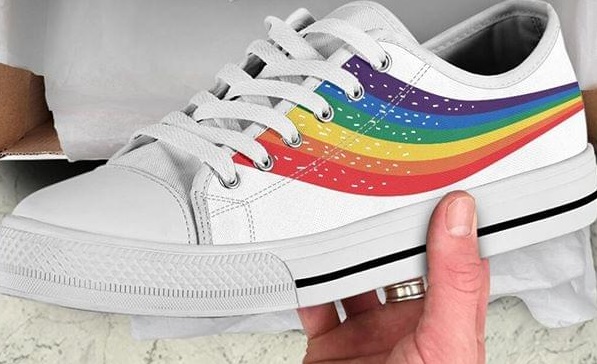
Femme One Day, Stud the Next Day
The more queer women recover from the femme/stud
dichotomy, we are discovering a love for more fluid
presentations in fashion.
A lot of lesbians and bi women have been categorized as
“lipstick lesbians,” “femmes,” “studs,” or “stems” based
largely on their fashion choices. Some people take pride
in their labels, while others believe labels should be
left for clothes. Either way, style isn’t necessarily
always about dressing girly or butch. You can be girly
or butch if you want to, but you don’t have to be. Some
people find comfort in switching back and forth between
traditionally masculine and feminine clothing. It can be
a freeing and fun way to experiment with your wardrobe.
A dash of dapper. Buttoned shirt and tapered
pants/shorts. This is a classic tomboy outfit that’s
perfect for any time of year, especially in the summer
with short sleeved cotton shirts. If you’re feeling a
bit bolder, definitely go for vibrant prints in your
buttoned shirts. Buttoning the shirt up all the way up
(top-button swag) can also help elevate your look. White
chucks or any other sneakers pair perfectly with this
outfit too.

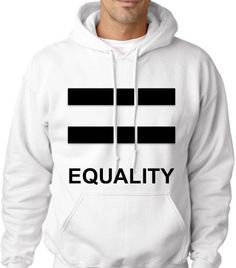
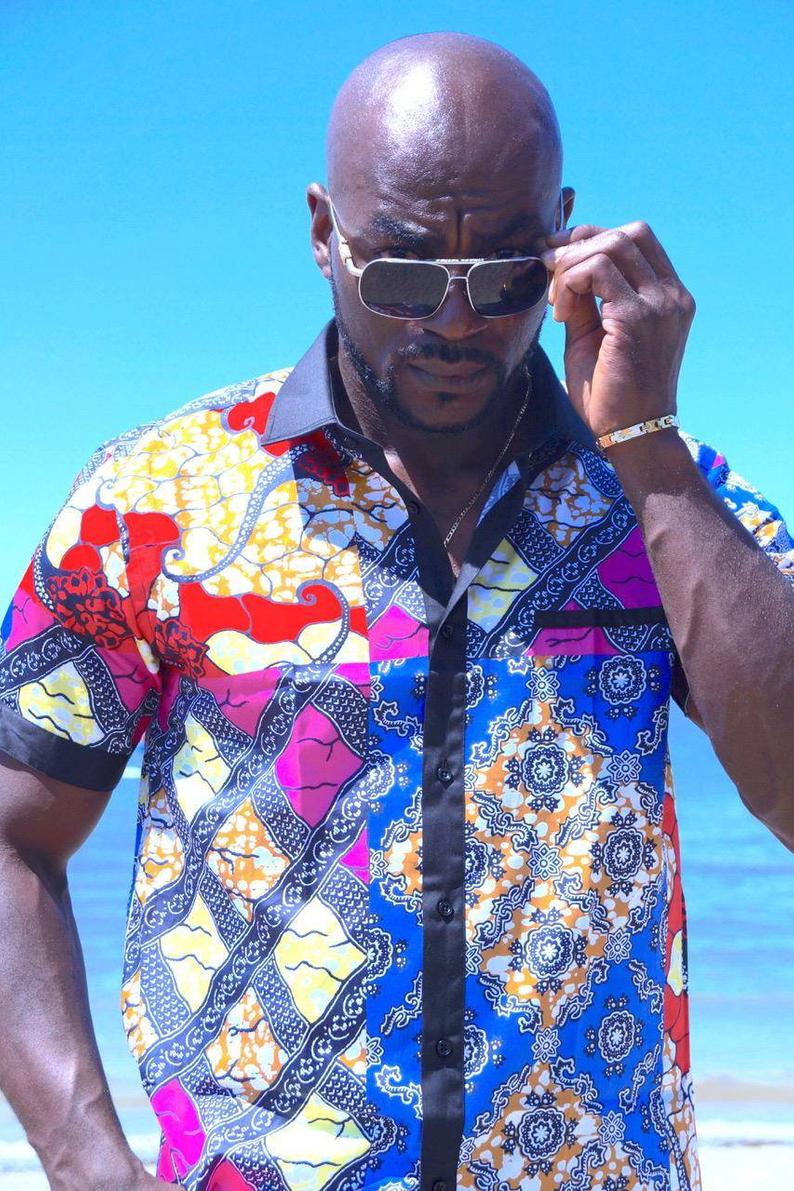
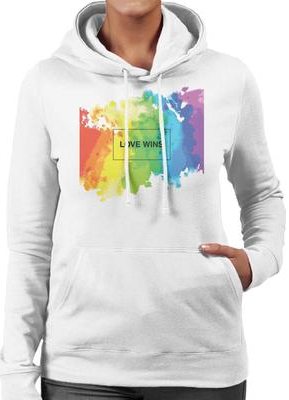
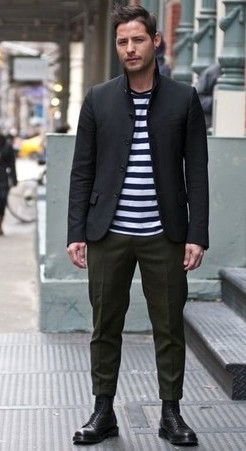
Troye Sivan: Role of Fashion in LGBTQ Community
Masculine and Feminine Lookbook
Oscar Guardiola Designs
Celebrity Men Wearing Skirts
Timeless Flow Apparel
Queer Cut: Explanation of Queer Fashion
Qwear: Favorite
Black Queer Fashion Moments of the Year
Info: LGBTQ Art and Design
Adam's Nest
Colorful/Patterned suits. Fitted suits are already a
popular dapper trend, but reaching for a brighter color
like red can definitely make you stand out. Different
patterns like tartan or plaid can help you change up
your style too. Bralettes and suits both match really
well and are a different way to dress up. Three-piece
suits are another classic.
A Touch of Femme. Midi-dresses and oversized shirts are
comfortable in length and have a certain street style
look when worn with sneakers. These outfits are simple,
because the dress or shirt is the whole look. There’s
also a large variety in the kinds of prints, patterns,
and colors you can choose. If you have white sneakers
especially, any dress can easily match with them.
Comfy Rompers or Jumpsuits. A summertime favorite for a
reason, rompers and jumpsuits are also cohesive outfits
that don’t require a lot of effort. If you stick to
cotton or linen fabrics, you’ll be both stylish and
comfortable. Feel free to play around with textures and
patterns like chambray or stripes to fit your specific
look too. These outfits can be paired with sneakers or
sandals.
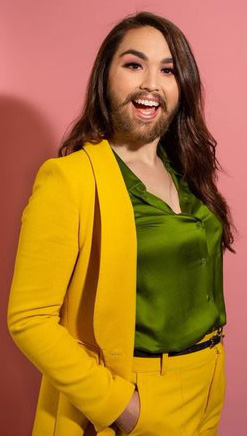
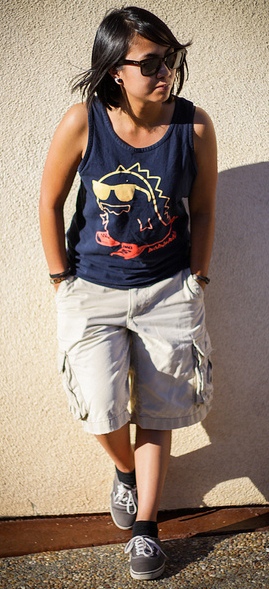 

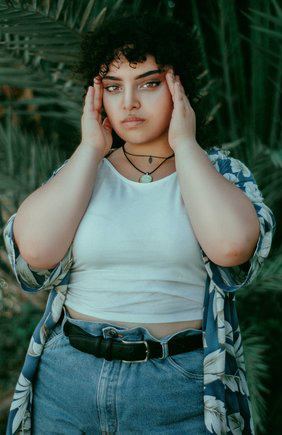
Keeping it Casual. Ripped Jeans and T-shirt. When it
comes to casual outfits, ripped jeans and a T-shirt are
a staple. Not only are they comfortable, but they’re
also edgy in a subtle way. They’re super versatile too.
You can dress them up with a formal top or formal shoes
like oxfords, or you can keep it more casual with a
baseball tee or simple colors. Any kind of shoes work
with this outfit, but if you’re looking for a style
upgrade, go for boat shoes or patterned slip-ons
Athleisure. When all else fails and you’re staring at
your closet like you have nothing to wear, athleisure is
the perfect go-to. Not only is it a popular trend, but
you can wear this kind of clothing in any way you want.
You can make it your own by choosing bright or neutral
color schemes. Aside from color, you can mix patterns
and go for a baggier or looser fit too. It’s a really
stylish way to be comfortable.
[Source: Qwear, DNA Co.]
Pride Stance
Watch: Gay Pride
Apparel
Fashion Consulting for Trans Women
Ohh Clothing
Ranker: Famous LGBTQ Fashion Models
Alyssa Edwards' Drag Makeup Guide
Queer Eye: Top Fashion Tips
Kind Cotton
Marvelous Ideas: Gender Fluid Fashion Outfits
Proud Me
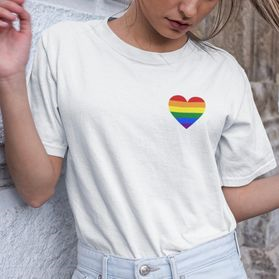
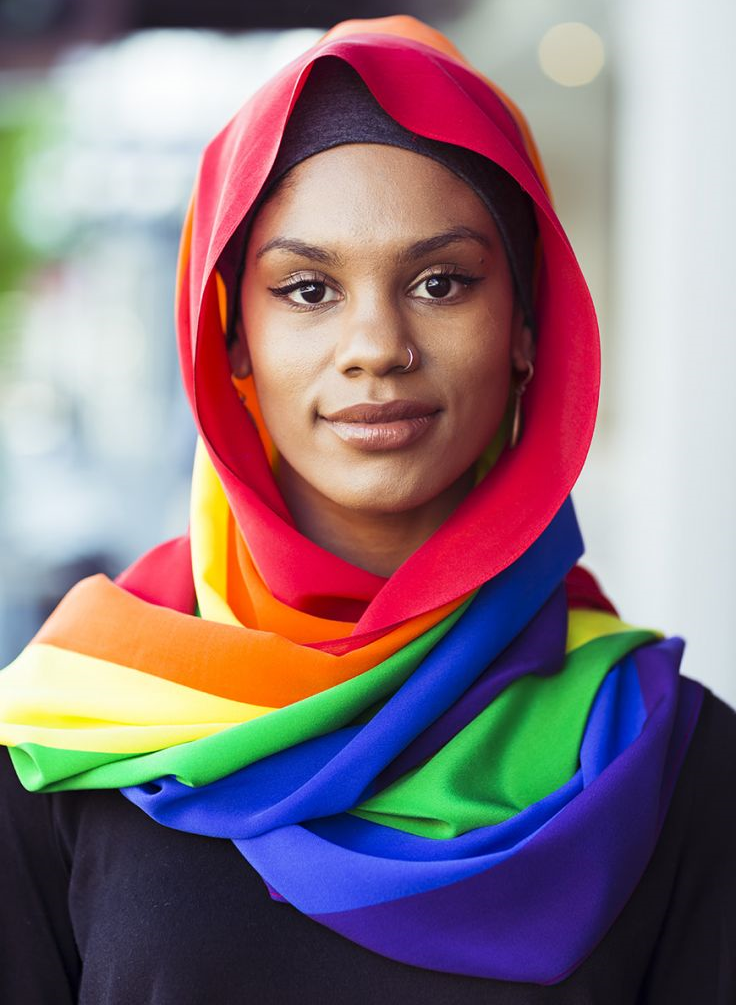
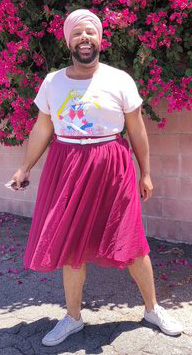
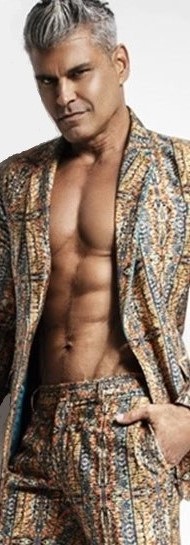
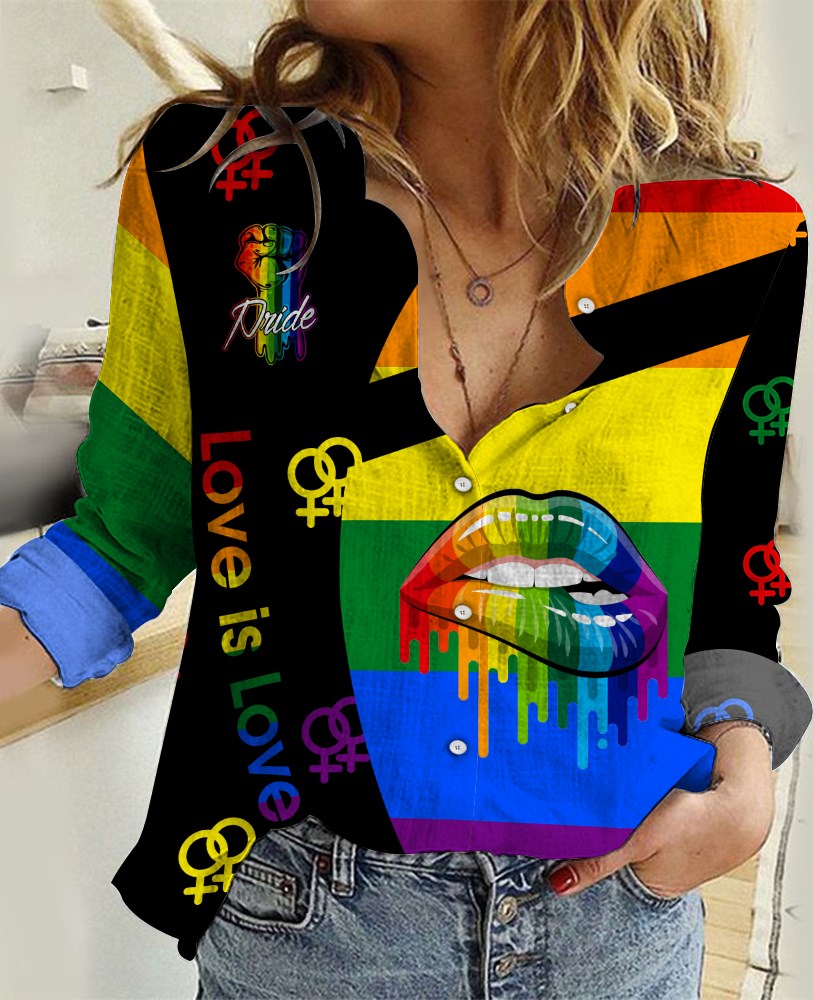
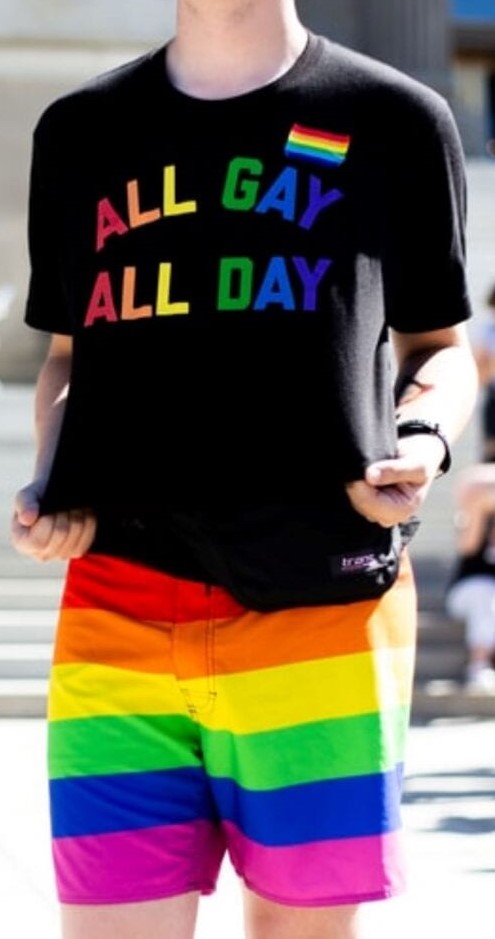
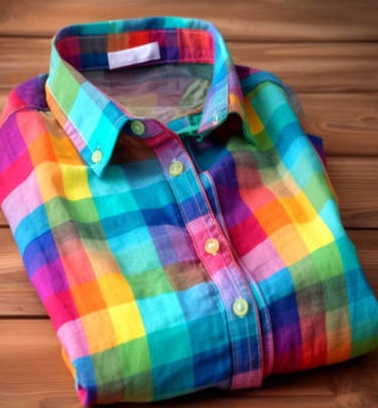
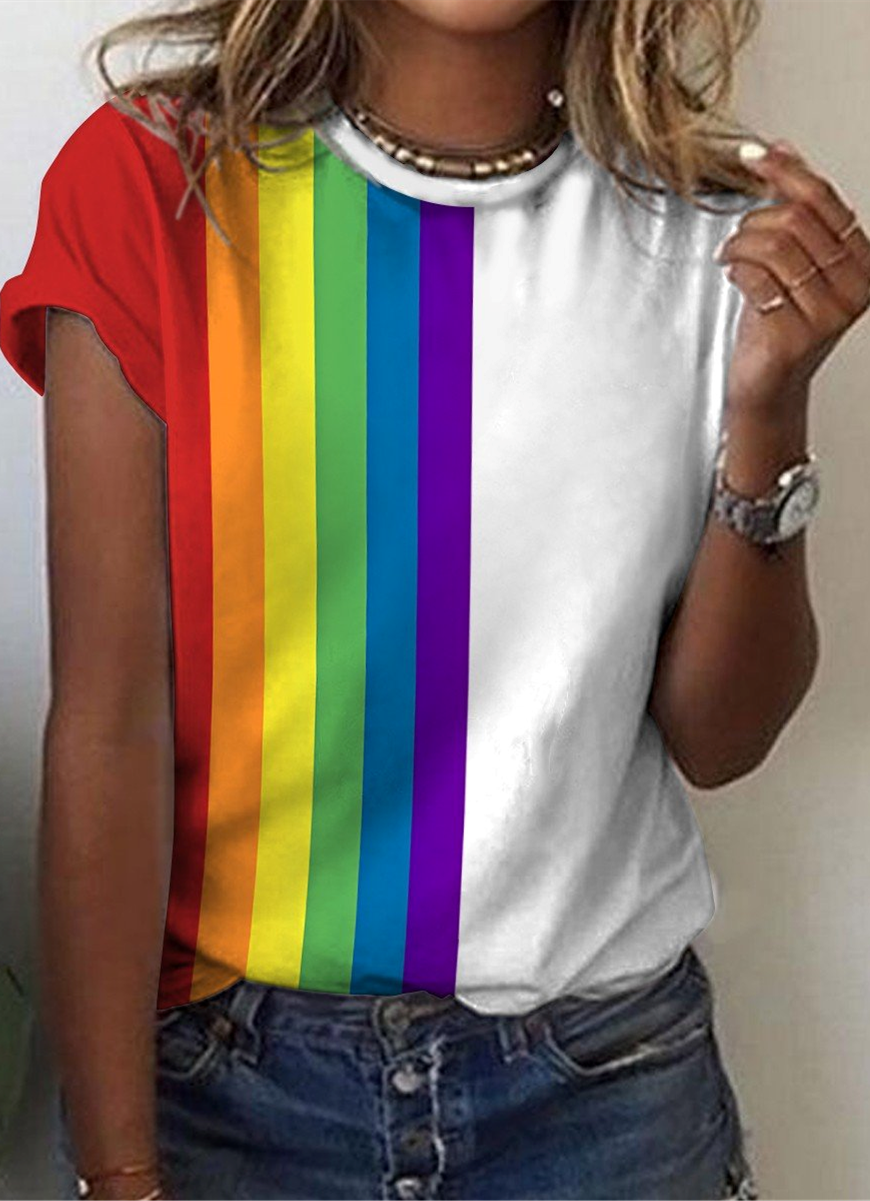
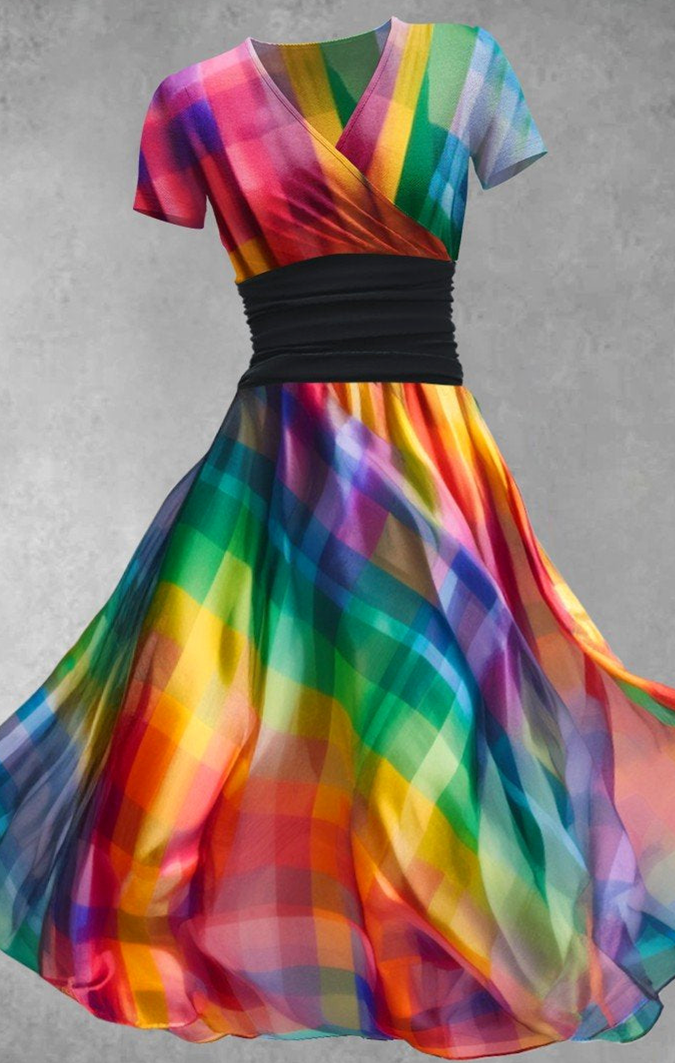
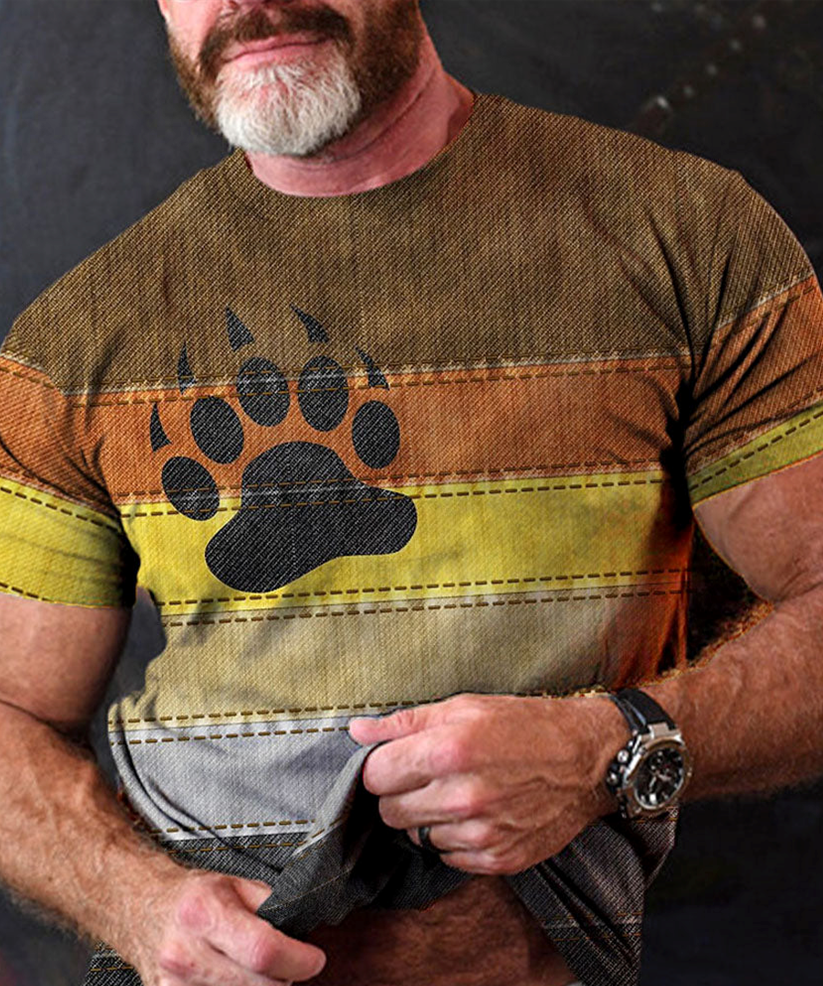
Gender Fluid
Fashion Trends
If two of the planet's biggest pop stars sign up for a
fashion trend, you know there must be something going
on. Rihanna posted a photo of herself on Instagram
wearing a T-shirt by London-based fashion label Art
School to her 76.8 million followers. Harry Styles
released his video for Lights Up in which he wears a
blue silk moire suit designed by Harris Reed, a
long-time collaborator.
Art School and Harris Reed all classify as non-binary
tags. Art School describes itself as "a non-binary queer
luxury brand," while Harris Reed is "fighting for
fluidity elegance." While there's a long tradition of
trendy LGBTQ designers (McQueen and Lagerfeld among the
most famous), they've been cis-identifying white men in
particular. The fashion label of "non-binary" is new and
relevant to a younger generation where more than one in
ten millennials identifies as transgender or
gender nonconforming. There is a handful of new fashion
brands, ranging from One DNA to Riley Studio, offering
everyone the same clothing, and where it feels out of
date to split the style into gendered lines.

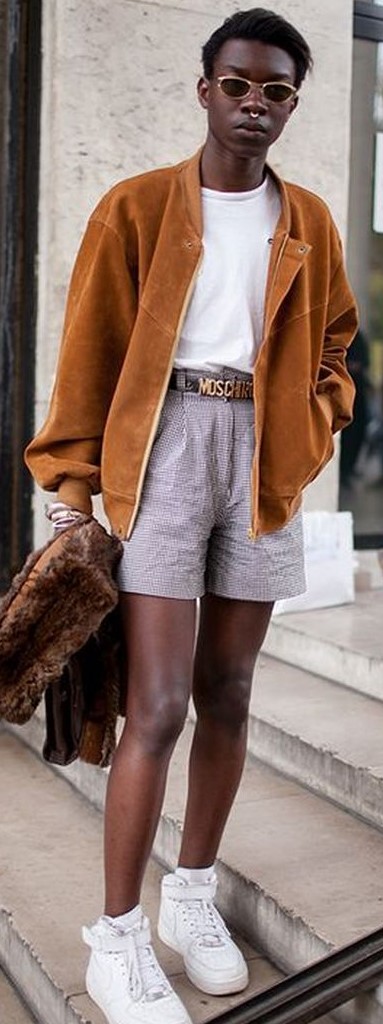
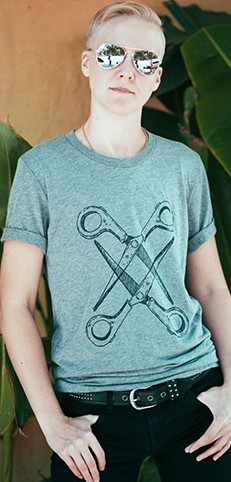
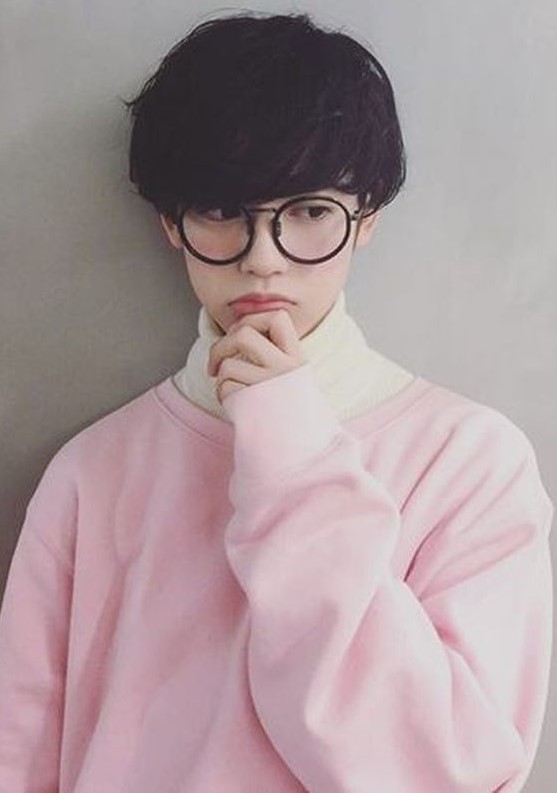
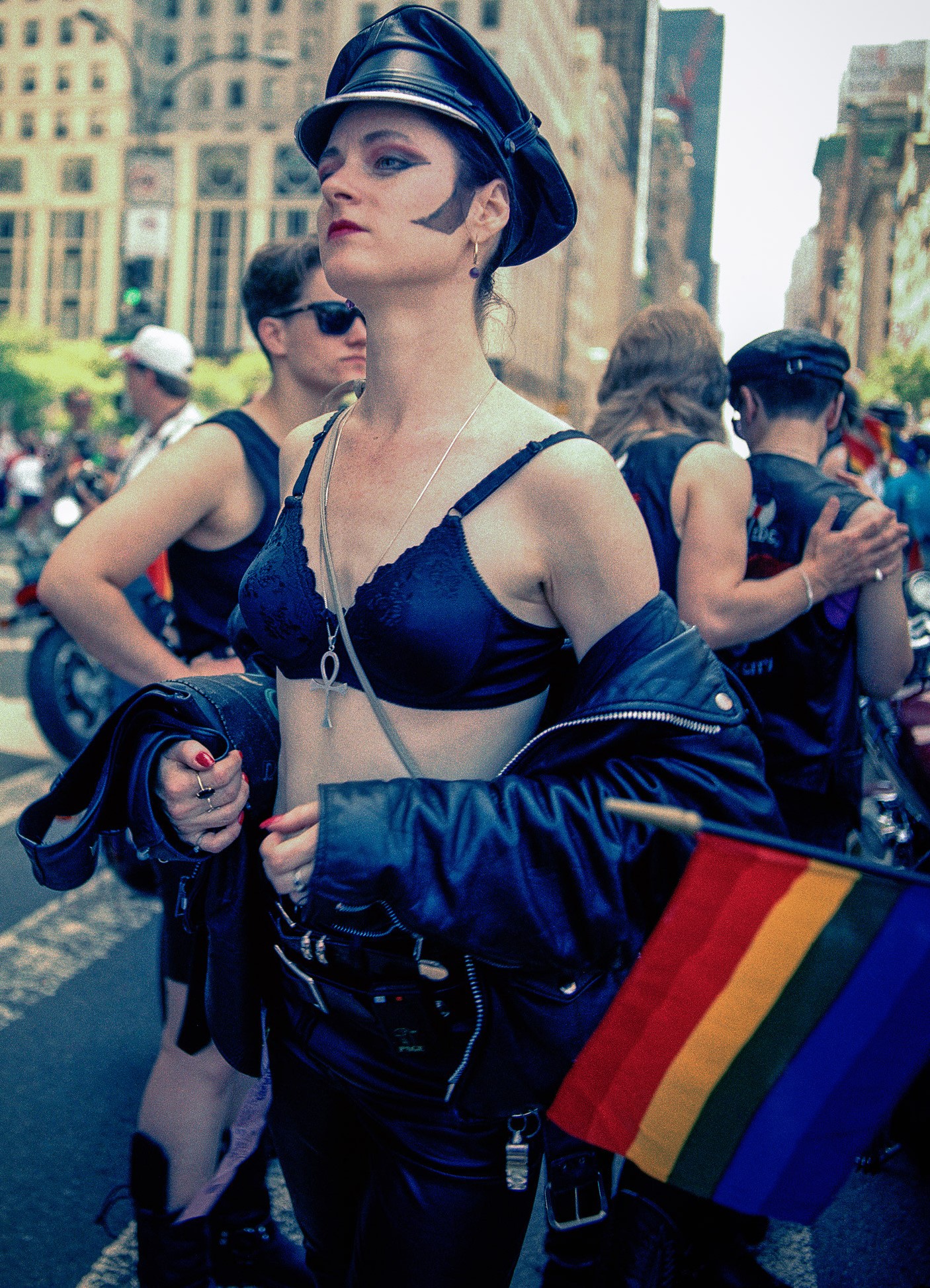
Fashion Remains a Leader in LGBTQ Inclusion
How to Dress Like a Gay Man
Gays Fashion
The Phluid
Project: Gender Free Brands
Queer Cut: Explanation of Queer Fashion
Info: Art and Design
Lidia Talavera:
High Heels for Men and Women
How to Queer Any Outfit
Video Tutorial: Naomi Smalls' Drag Transformation
Qwear Fashion
Victoria's Secret Hires First Openly Trans Model
Guissy Glam
Ranker: Famous LGBTQ Fashion Models
"Fashion used to be very linear. It was men's or
women's, and you could never cross between the two,"
Preston Souza, chief of staff and buyer at The Phluid
Project, the first gender-free clothing shop in New
York, explained. "And what's nice is that these brands
are being dismissed by Generation Z. Sixty percent of
Generation Z will shop across gendered areas, evidence
that these patriarchal constructs are slowly phasing
out. "Younger stars like Billie Eilish, Yungblud and Lil
Uzi Vert dress androgynously and talk openly about
shopping between genders." "The women's section is way
better than the men's section," Lil Uzi Vert said in an
interview with GQ.
Mainstream fashion is a catch-up game. New York fashion
week included 36 models identifying as transgender or
gender nonconforming, while Pose actress Indya Moore was
the first non-binary individual to be the Louis Vuitton
campaign's head.
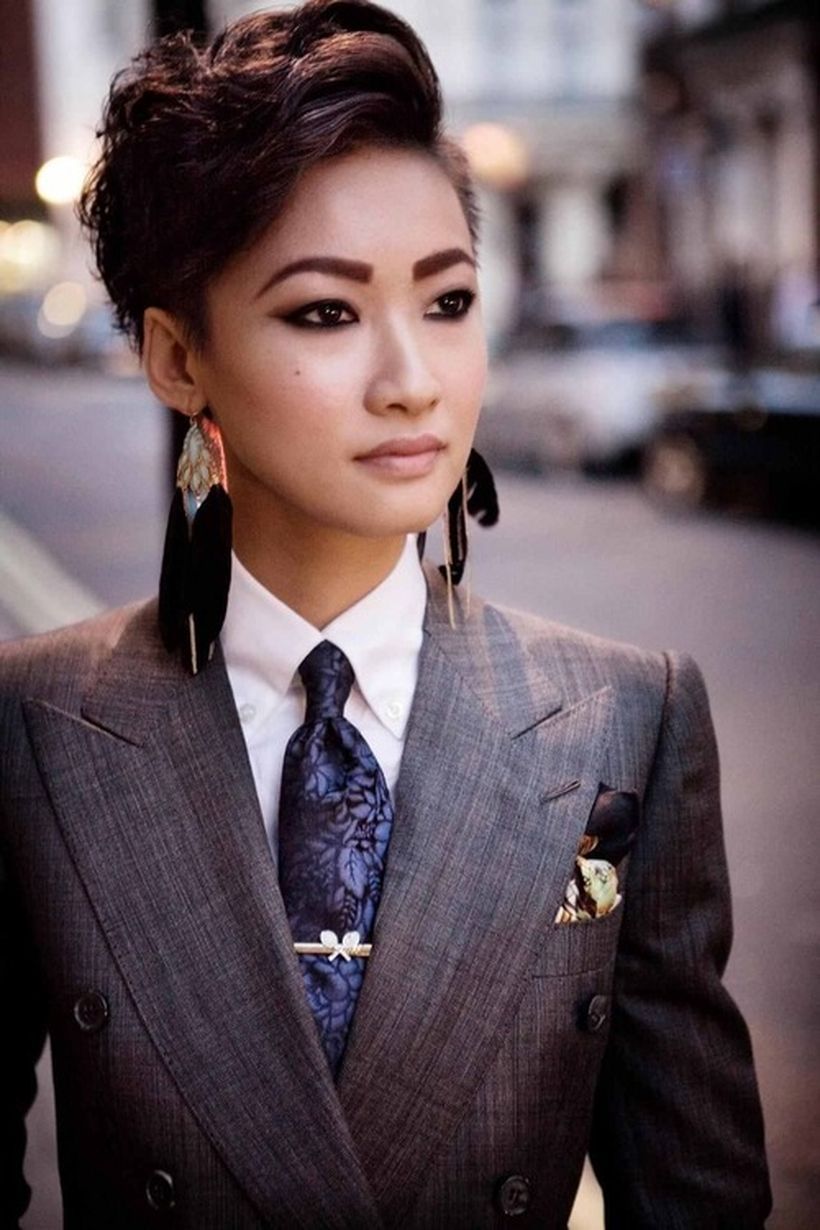
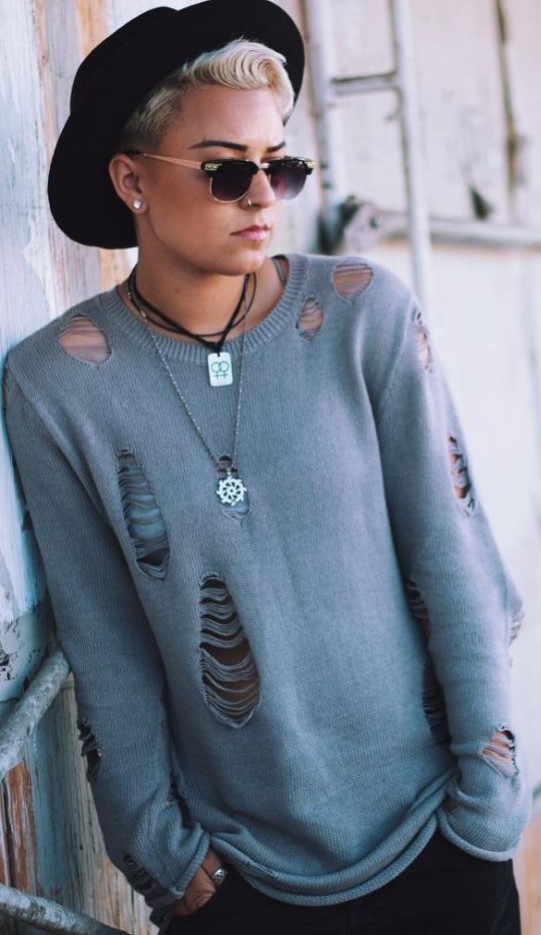
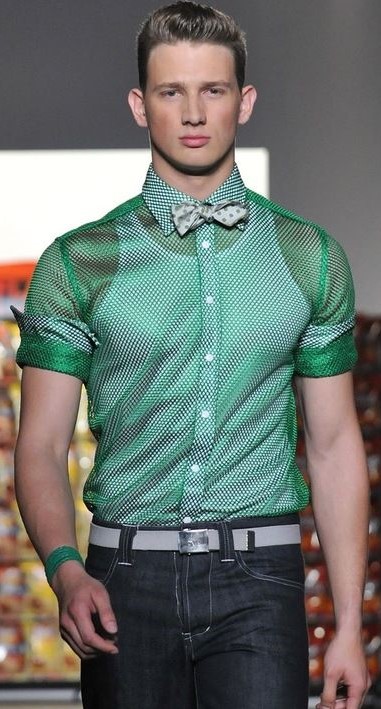
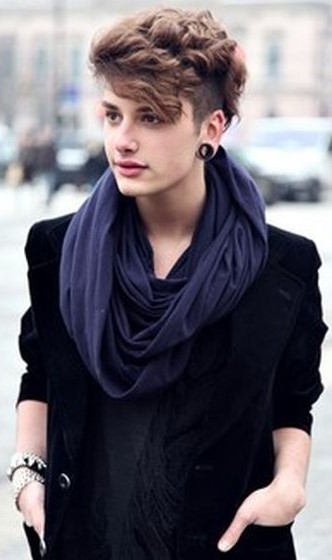
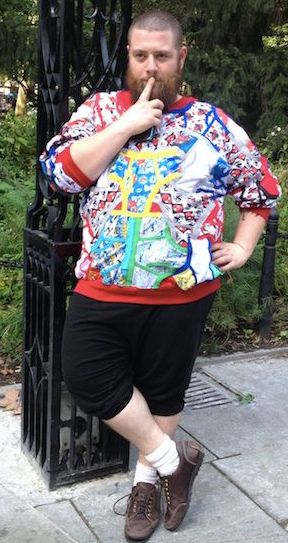
"It's not about a girl wearing a suit or a guy wearing a
shoe, it's about feeling yourself and experiencing the
vision and look," said Fader designer Christopher John
Rogers, who dressed Michelle Obama, Lizzo and whose
label won the coveted CFDA / Vogue Fashion Fund award.
"It's about queerness when you completely reflect your
unique complexities when you dress up."
"The next move is to avoid seeing gender fluidity as a
phenomenon," says fashion and lifestyle blogger Ben
Pechey, "but to see us as real people and to ensure more
equality, protection and respect for the queer
community."
[Source: Industry Global News, Nov 2019]
Pride Stance
Watch: Gay Pride
Apparel
Oscar Guardiola Designs
Pride Clothing and Rainbow Outfits
History of Lesbian Fashion
I Support LGBTQ:
Rainbow Scarves and Merch
HRC Fashion: Equality
Merchandise
Queer Designers You Should Know
Timeless Flow Apparel
Queer Eye Store
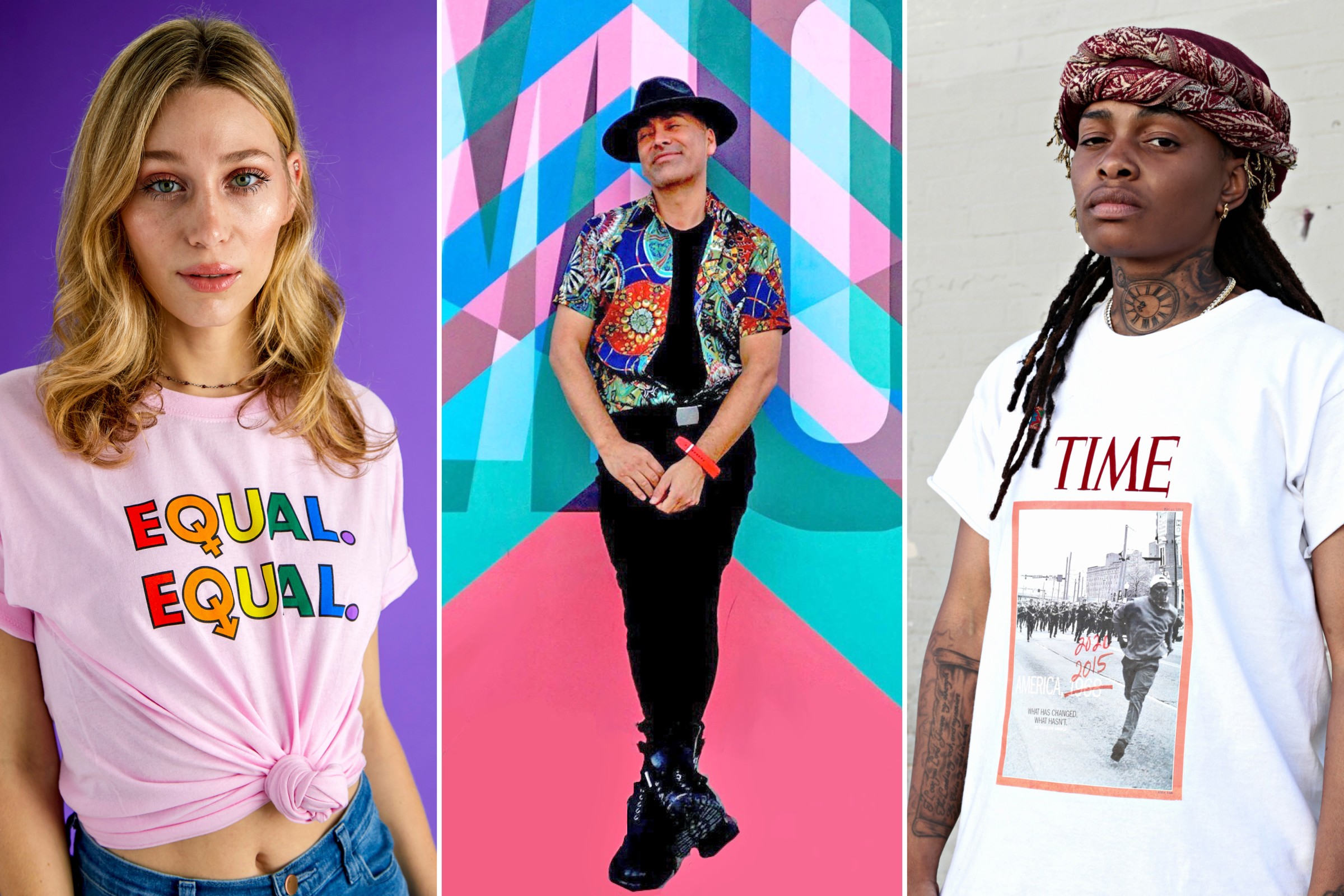
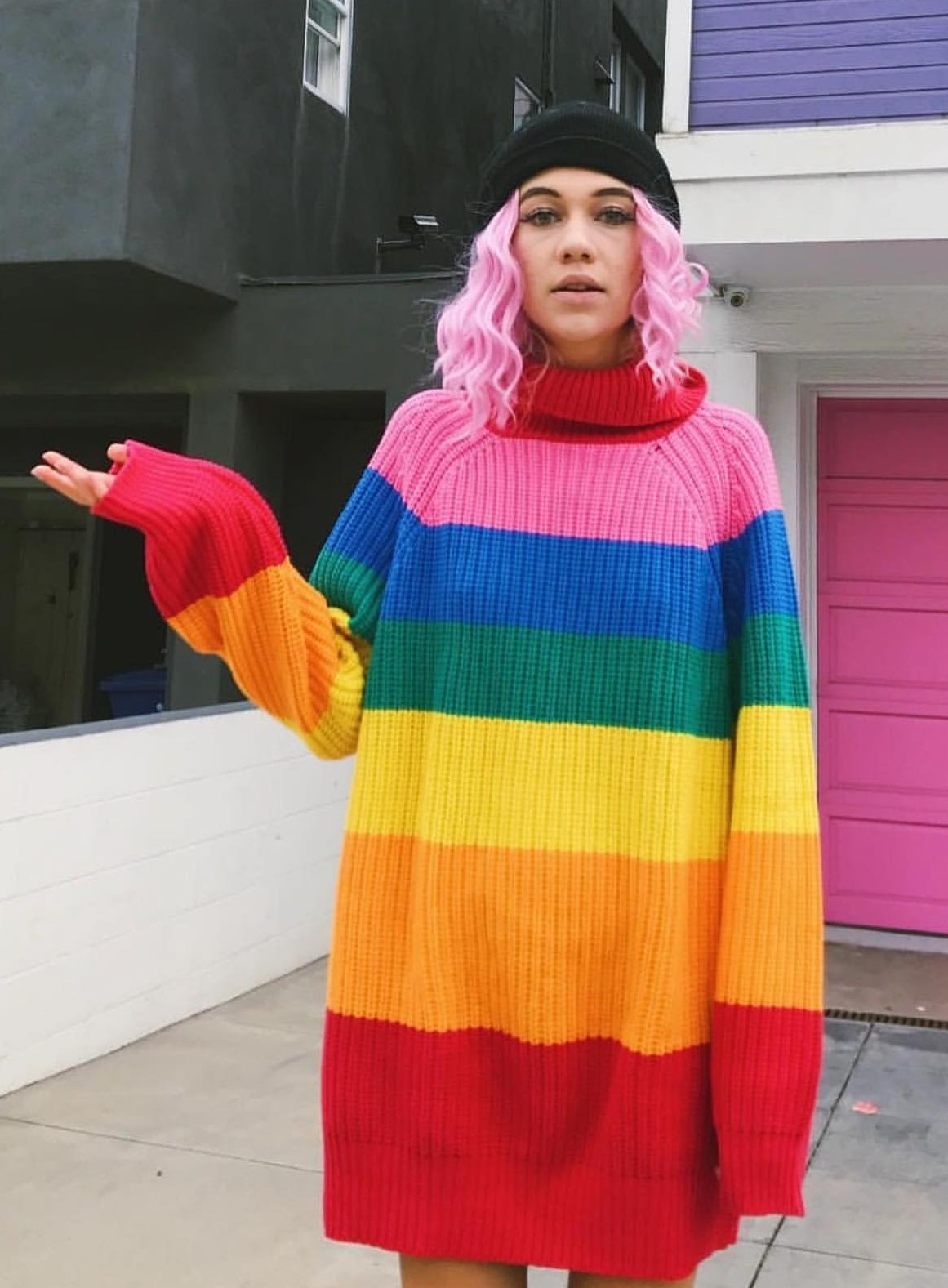
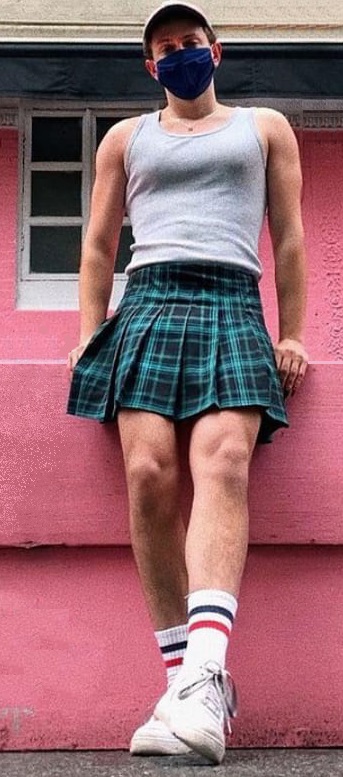
Queer
Fashion: More Than Just a Trend
Androgynous looks are being embraced by the mainstream
fashion world, from male-inspired clothing for women to
gender-bending models on the runway. But queer fashion
isn’t just for looks. It’s a much larger social
movement.
Anita Dolce Vita (DapperQ’s editor-in-chief) said that,
while queer fashion is indefinable because it is
specific to the individual, it is “systemically rooted
in gender non-conformity. It is all about breaking
gender binaries and redefining femininity, masculinity
and everything in between and outside of."
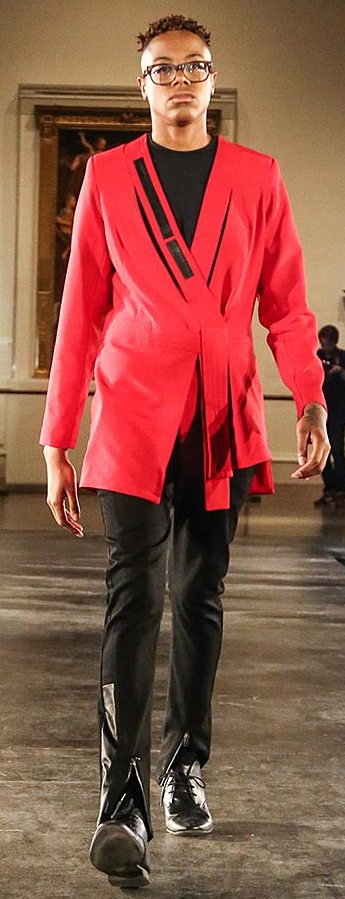
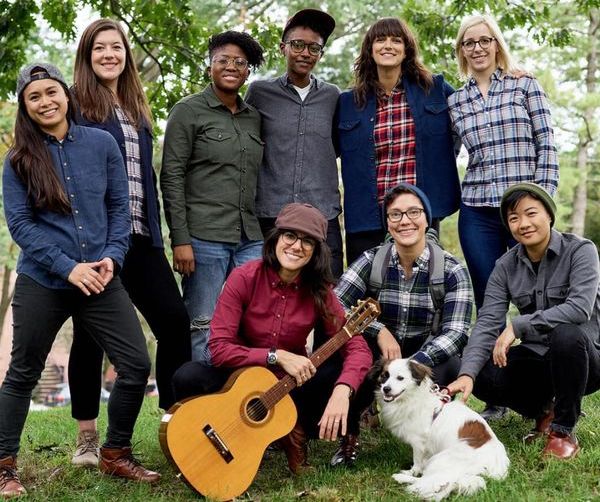
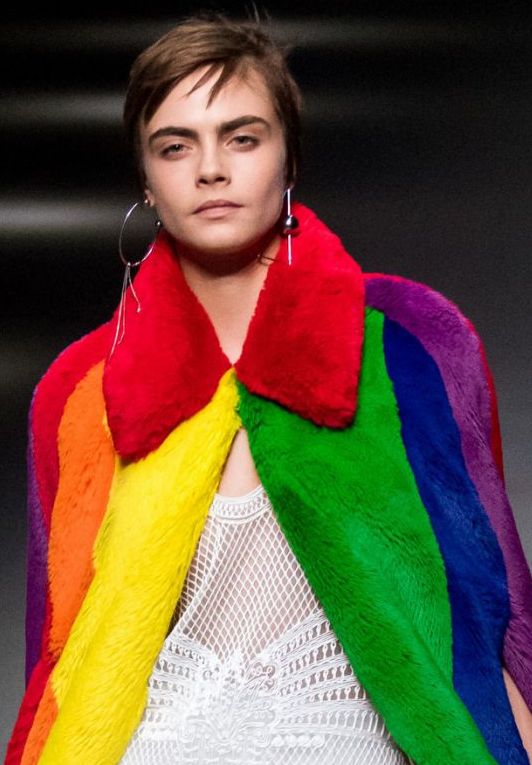
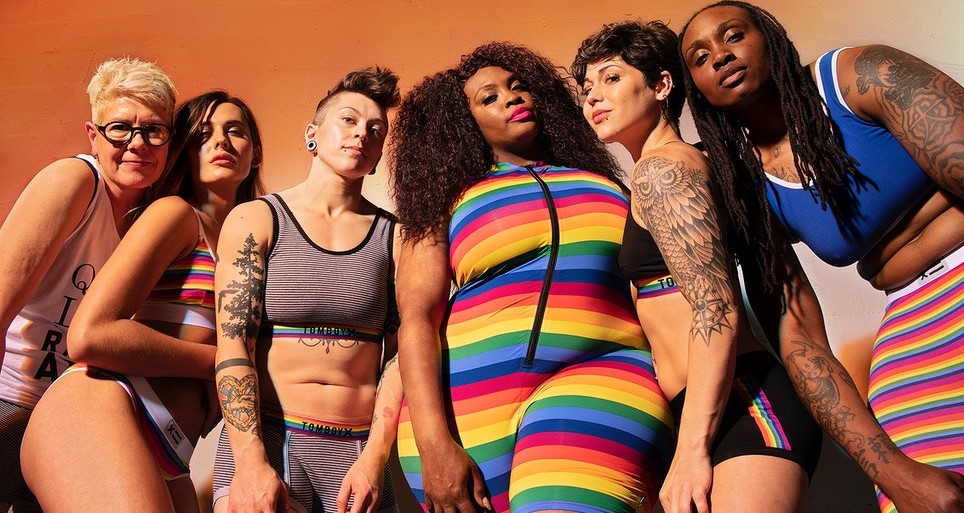
History of Fashion's
Response to the AIDS Epidemic
Autostraddle: Queer Fashion Articles
100 Years of Queer Fashion
Tim Gunn: Future of Fashion is Non-Binary
List: LGBTQ Fashion Designers
Celebrity Men Wearing Skirts
Leon Wu (founder and CEO of Sharpe Suiting) also joined
the conversation and said queer fashion is not a niche
market. “In being queer designers, we have a specific
look or a specific way we want our clothes to fit,” Wu
said. “But I’m hearing also from cisgender folks as well
as heteronormative folks that they like our clothes and
they want to be able to embody masculinity and
femininity on their own terms as well.”
Vita also pinpointed a subcategory of queer fashion for
femme-identifying women who are “reclaiming and
redefining femininity” in an attempt to challenge
society’s constricting praise of masculinity.
“Femme fashion to me is just unapologetically femme in
its response to pressures from queer-normativity and
heteronormativity to present more masculine and more
androgynous,” Vita said.
While androgynous styles have been embraced by
mainstream culture in the past, Vita hopes this time
around it’s also reflecting people’s changing attitudes
about gender identity and expression. “Queer fashion is
not just a trend, but it is a lasting social movement
and it’s a social movement that benefits everyone,” she
said.
[Source: Kira Brekke, Huffington Post, Feb 2016]
Androgynous Fashion
Queer Fashion: More Than Just a Trend
Info: Gender Expression
Alex Consani Becomes First Transgender Model of the Year
at UK Fashion Awards
Oscar Guardiola Designs
Kind Cotton
Dressing Beyond the Binary
Sarah Paulson Outfits That Make Us Swoon
Underwear Fashion: Fran Dunaway and Naomi Gonzalez
Ohh Clothing
Pride Beyond the Binary: Embracing Fluidity in Gender
Expression in Fashion
Famous LGBTQ Fashion Designers and More
H&M Fashion Haul: Crossdress MTF Transformation
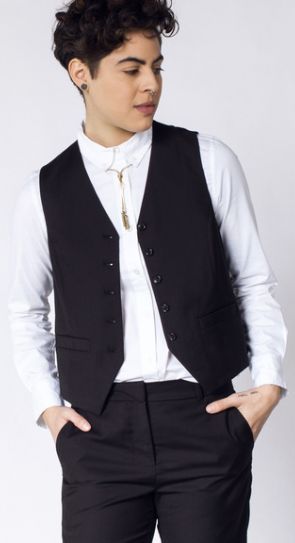
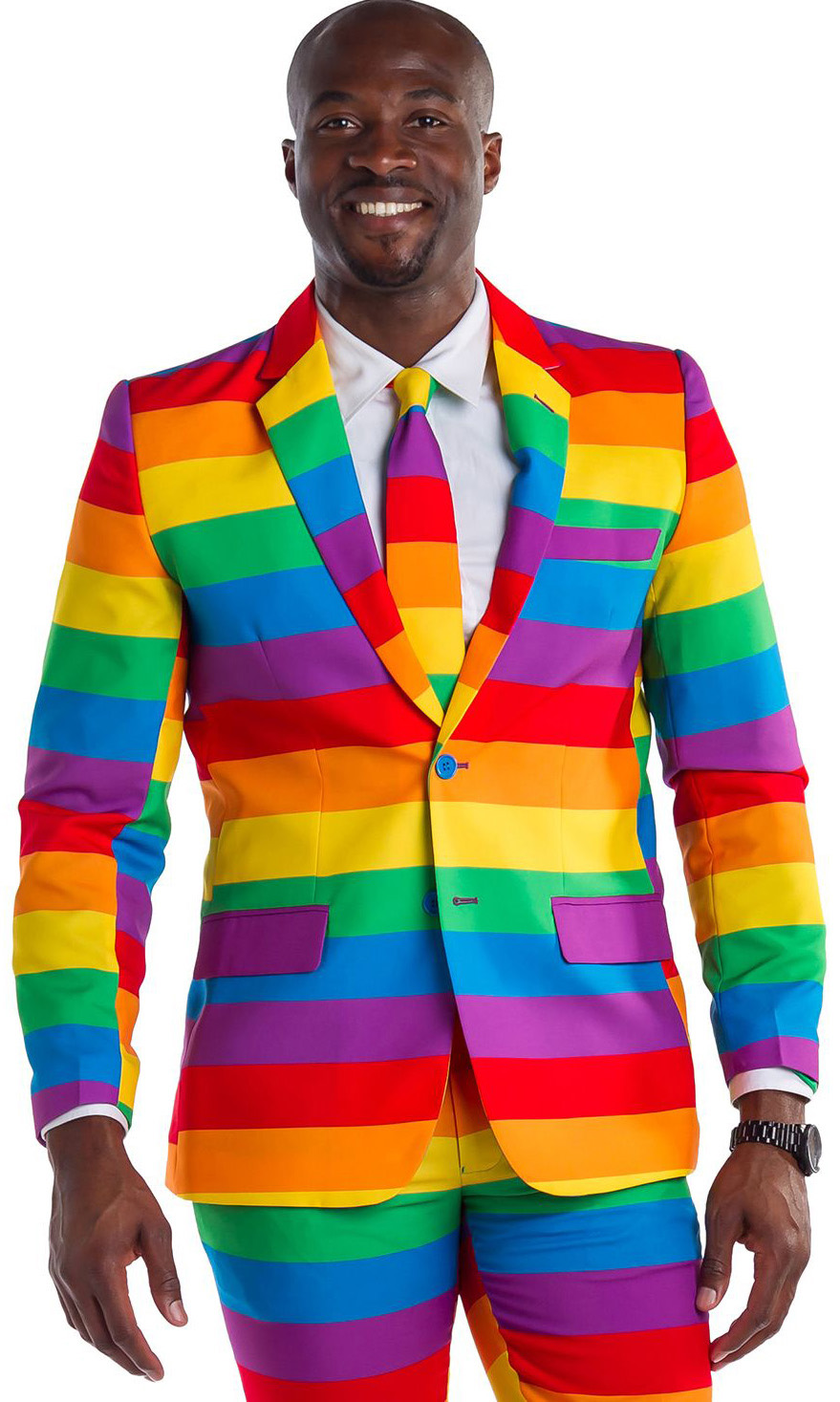
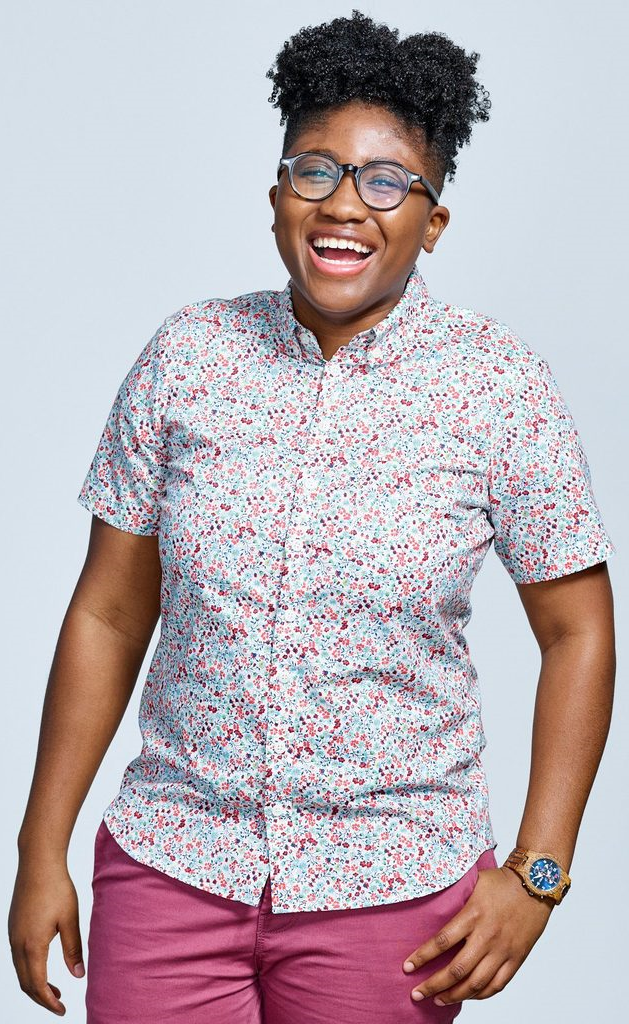
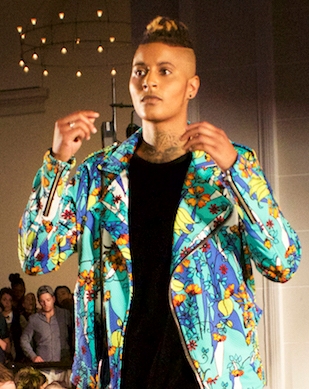
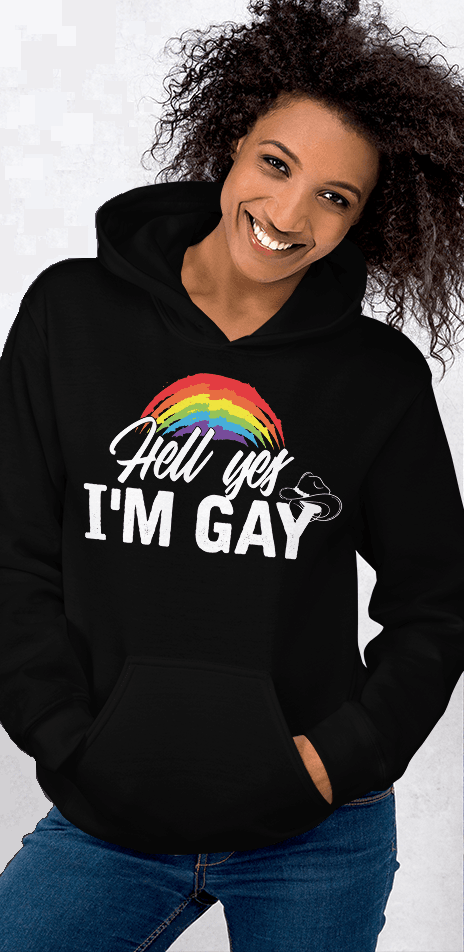
Classic LGBTQ Fashion
Designers
Giorgio
Armani
Pierre
Cardin
Christian
Dior
Domenico
Dolce
Stefano
Gabbana
Perry
Ellis
Karl
Lagerfeld
Halston
Thierry
Mugler
Isaac Mizrahi
 |
Yves Saint
Laurent
André Leon
Talley
Tom Ford
Kenneth
Nicholson
Alessandro
Trincone
Ludovic de
Saint Sernin
Patrick
Church
Gianni
Versace
Prabal
Gurung
Michael
Kors

|
Fabulous LGBTQ Owned Fashion Businesses
Tim Gunn: Future of Fashion is Non-Binary
Victoria's Secret Hires First Openly Trans Model
Info: Drag and Crossdressing
Queer Eye's Tan France: Top Shop Makeover
Fashion and Homosexuality
Black LGBTQ Fashion Designers
HuffPost: LGBTQ Fashion
Masculine Lesbian Outfit
Qwear Fashion
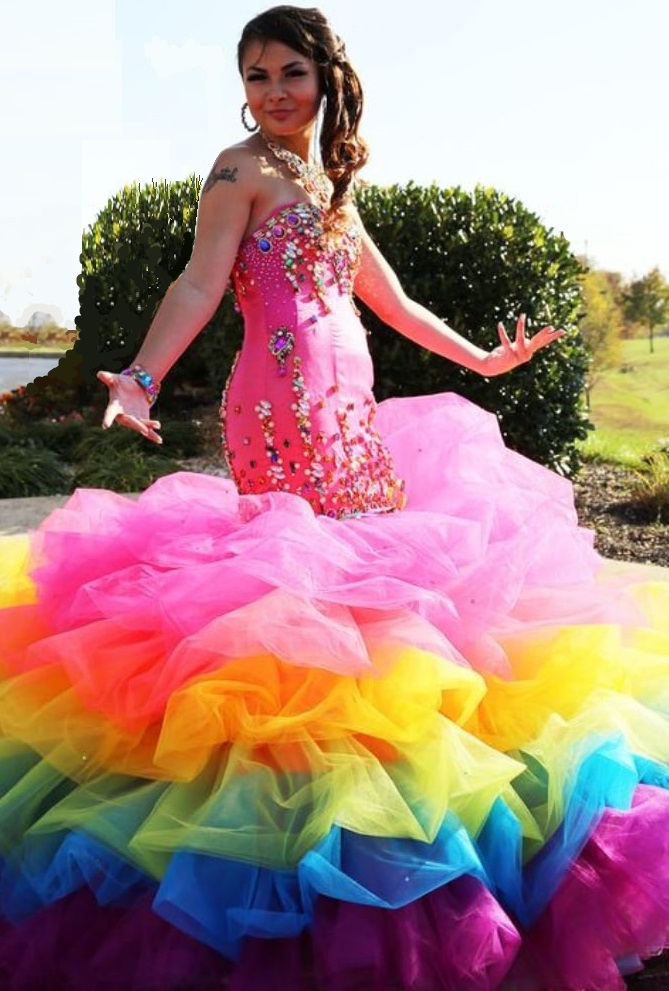

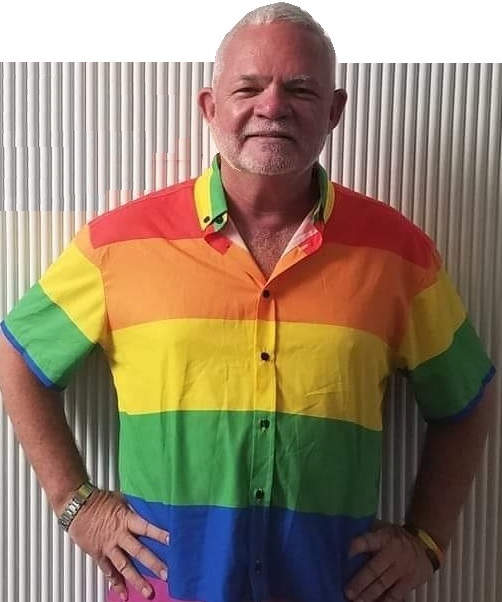
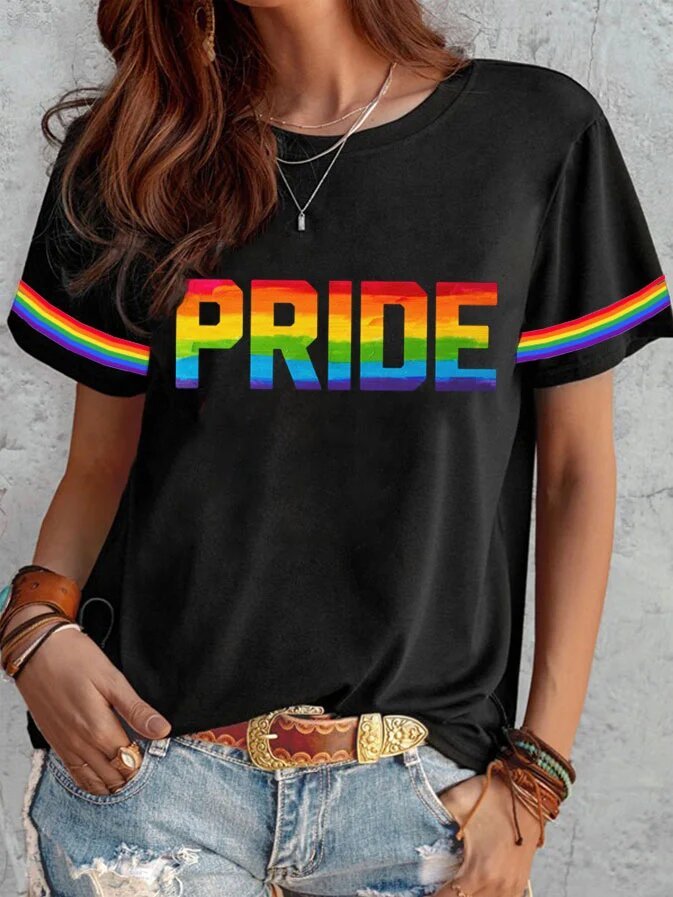
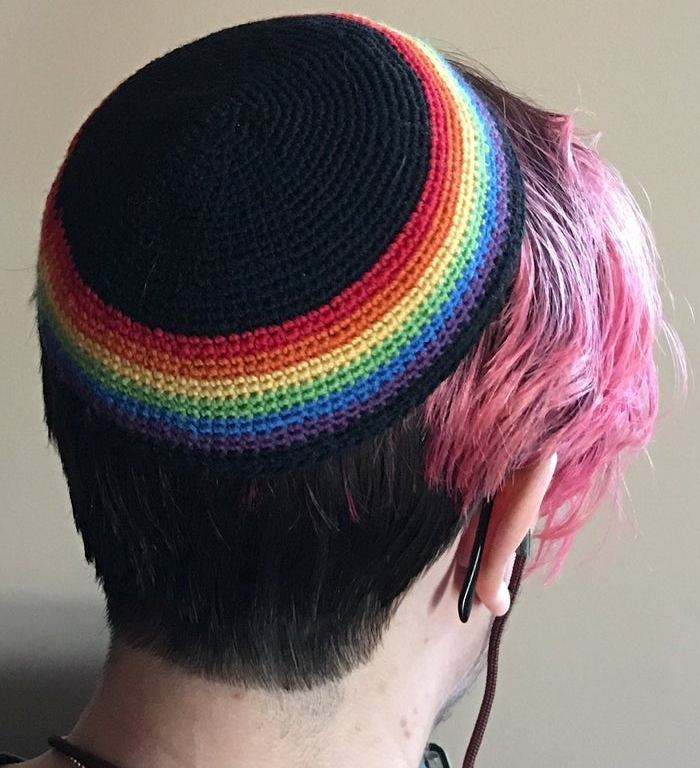
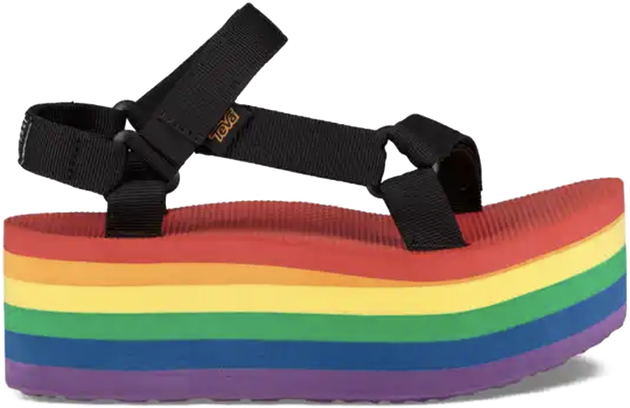
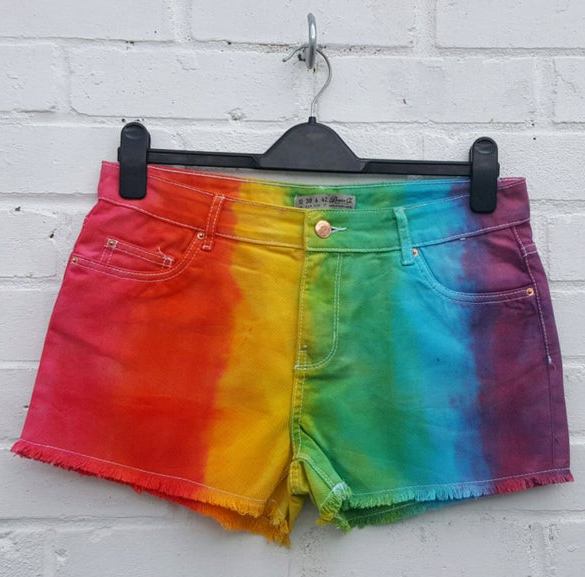
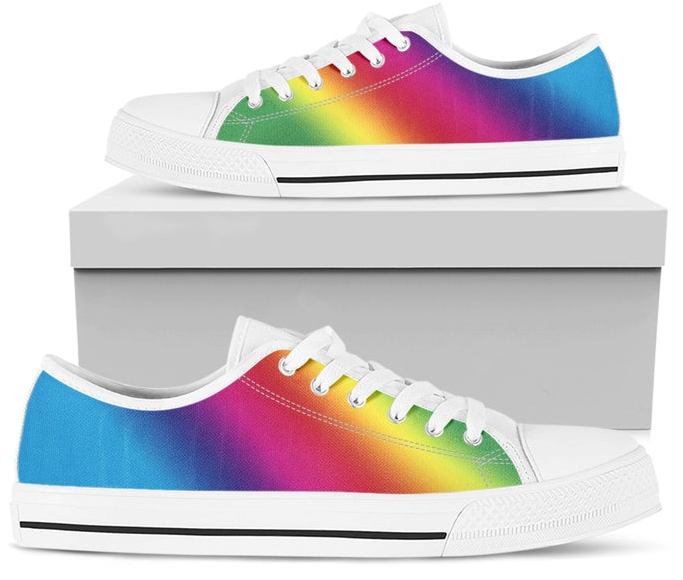


New York Fashion Week: Queer Style
Styling Hollywood: Gay Couple Balances Fashion and Love
Guissy Glam
Valentina Sampaio:
Interview With Trans Fashion Model
Style Tips for Curvy Tomboys
LGBTQ Visibility in Fashion
Autostraddle Recommends These LGBTQ Brands
Discussion Panel: Queer
Fashion
History of Fashion's
Response to the AIDS Epidemic
Ohh Clothing
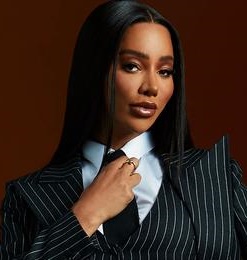
Queer Fashion
Models
|
Cara Delevingne
Rain Dove
Cory Wade
Ruby Rose
Indya
Moore
Shaun Ross
Gabby Odiele
Jack Mackenroth
Madison Paige
Yasmine Petty
Nanna Grundfeldt
Tasha Tilberg
Sara Jones
Yaya Kosikova
Megan Morris
Amanda Moore
 |
Alex Consani
Oslo Grace
Leyna Bloom
Cristi Duncan
Laith Ashley
Jessica Clark
Tess Holliday
Natalie Wrestling
Munrow Beregdorf
Buck Angel
Stella Maxwell
Freja Beha Erichsen
Kim Stoltz
Kayla Ferrel
Eden Clark
Arizona Muse
Ari Fitz
 |
Valentina Sampaio
Catherine McNeil
Elina Ivanova
Erika Linder
Svea Berlie
Becky Holladay
Aydian Dowling
Casey Legler
Milou Van Groesen
Courtney McCullogh
Godfrey Gao
Ireland Baldwin
Amber Rose
Jenny Shimizu
Heather Kemesky
Angela Bowie
Ariel Nicholson
 |
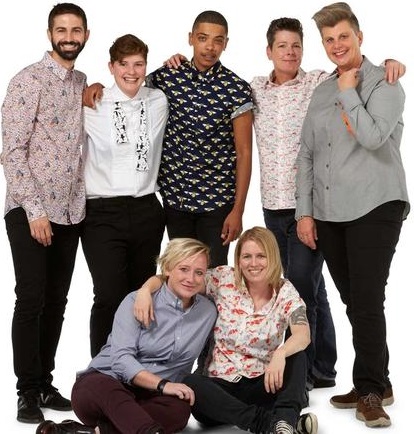
GQ Magazine:
Keith Haring Blew Up the Art and Fashion World
Masculine and Feminine Lookbook
Butch Fashion
Alex Consani Becomes First Transgender Model of the Year
at UK Fashion Awards
Fashion Remains a Leader in LGBTQ Inclusion
Rain Dove: Androgynous Fashion Model
Gay Pride Apparel
GLAAD Hosts Leading LGBTQ Fashion Icons
Timeless Flow Apparel
Best, Most Iconic Met Gala Looks by LGBTQ
Celebs Over the Years
Love Fruity
Ultimate Fashion Needed For A Stylish
Queer Vacation
Winter Fashion Ideas: Edgy Femme
Info: Art and Design
Famous LGBTQ Fashion Designers and More
Genderless Style
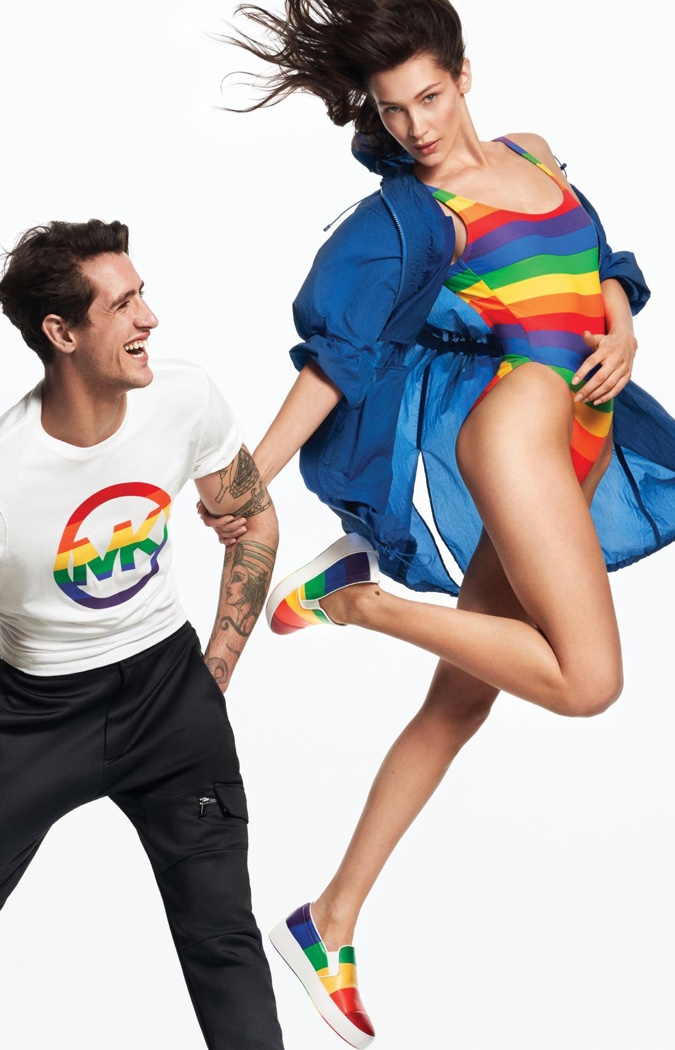
Gays Fashion
Oscar Guardiola Designs
Pride Stance
Watch: Gay Pride
Apparel
Marco Marco: High Fashion, Unique Beauty
Embracing Gender Fluidity: LGBTQ Fashion Models
Proud Me
Kyle Brincefield: Studmuffin NYC
Queering Fashion
List: LGBTQ Fashion Models
Underwear Fashion: Fran Dunaway and Naomi Gonzalez
Ohh Clothing
Pride Beyond the Binary: Embracing Fluidity in Gender
Expression in Fashion
Lidia Talavera:
High Heels for Men and Women
Designers Who are Queering the Fashion Industry
Queer Eye's Tan France Takes SNL's Pete Davidson
Shopping

HOME
QUEER CAFE
│ LGBTQ Information Network │ Established 2017 |